Women of Impact
Stories of Resilience and Change in Pastoralist Communities
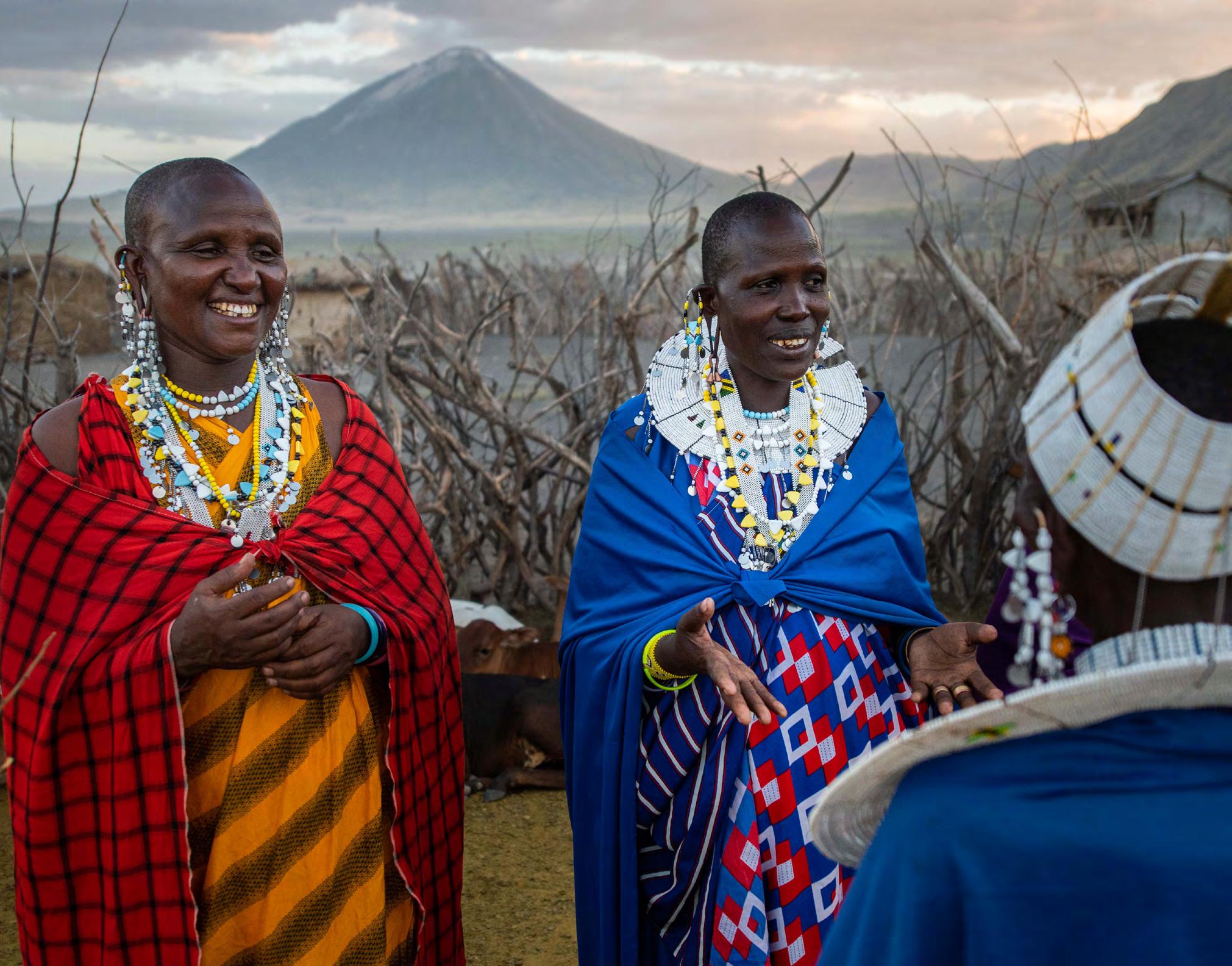
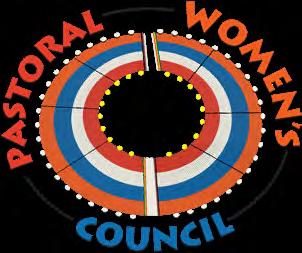



The Pastoral Women’s Council (PWC) is a proximate, membership, women-focused and women-led non-profit organization. Founded in 1997 in Northern Tanzania, PWC works at the intersection of material poverty, gender inequality, climate change, and social injustice to drive systemic change at all levels and ensure that women and girls can access their socio-economic, civic, and cultural rights. For over 25 years, PWC has supported and enabled pastoralist and agro-pastoralist women and girls, fostering economic independence, education, and civic leadership within their communities.
Rooted in pastoralist culture, PWC addresses systemic challenges such as gender inequality, lack of access to education, and economic barriers. Through initiatives such as Village Community Banks (VICOBA), Women’s Rights and Leadership Forums (WRLFs), livestock projects, and training programs, PWC enables women to achieve financial independence, access quality education and health services, and amplify their voices in decision-making spaces. Blending tradition and progress, PWC continues to create lasting change, ensuring that women and girls can thrive while preserving the cultural values of pastoralist communities.
Cover: Elizabeth Lemakanga and Esupat Ngoyasek share a moment of connection with women from their village, with Ol Doinyo Lengai — the “Mountain of God” — in the background.
























This book is a celebration of strength, resilience, and transformation.
It tells the stories of women who have redefined what is possible within their communities—women who have taken the lead in shaping their futures, reclaiming their rights and inspiring the next generation.
The Pastoral Women’s Council (PWC) has worked in partnership with these women to support their efforts; providing tools, training, and platforms to accelerate their opportunities and influence within their communities. The impact reflected in these stories is the result of each woman’s vision, grit, and drive to build a better future - not just for themselves, but for their communities.
Each page tells the story of a woman who chose to push the boundaries, reshape expectations, and become a catalyst for progress in her community. Too often, their hard work goes unseen and unrecognized, their achievements overlooked. This book is a tribute to the incredible women who make up the fabric of pastoralist communities. It honors their voices, victories, and ongoing work to ensure that the future is brighter, more equitable, and full of possibilities.
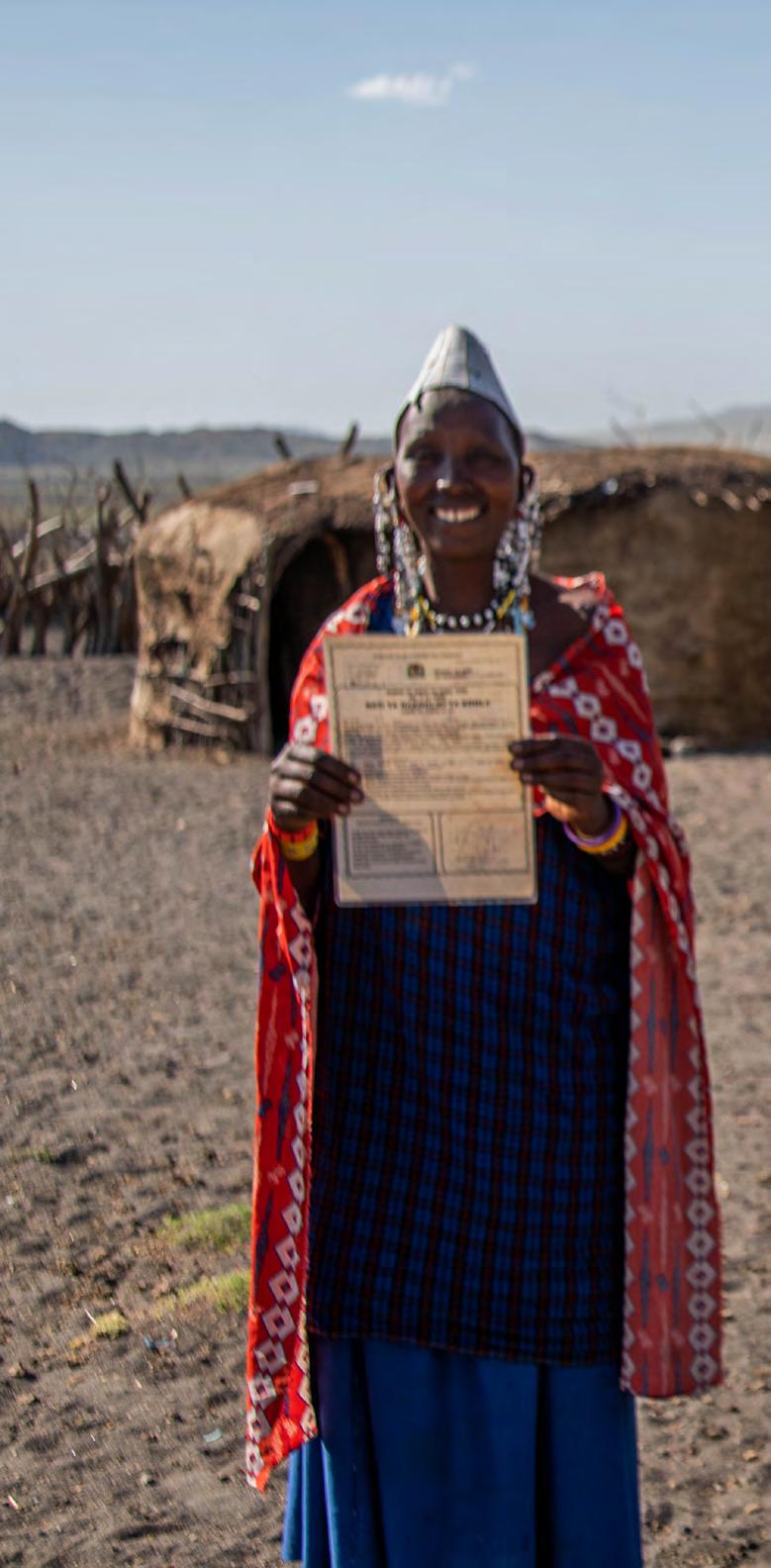
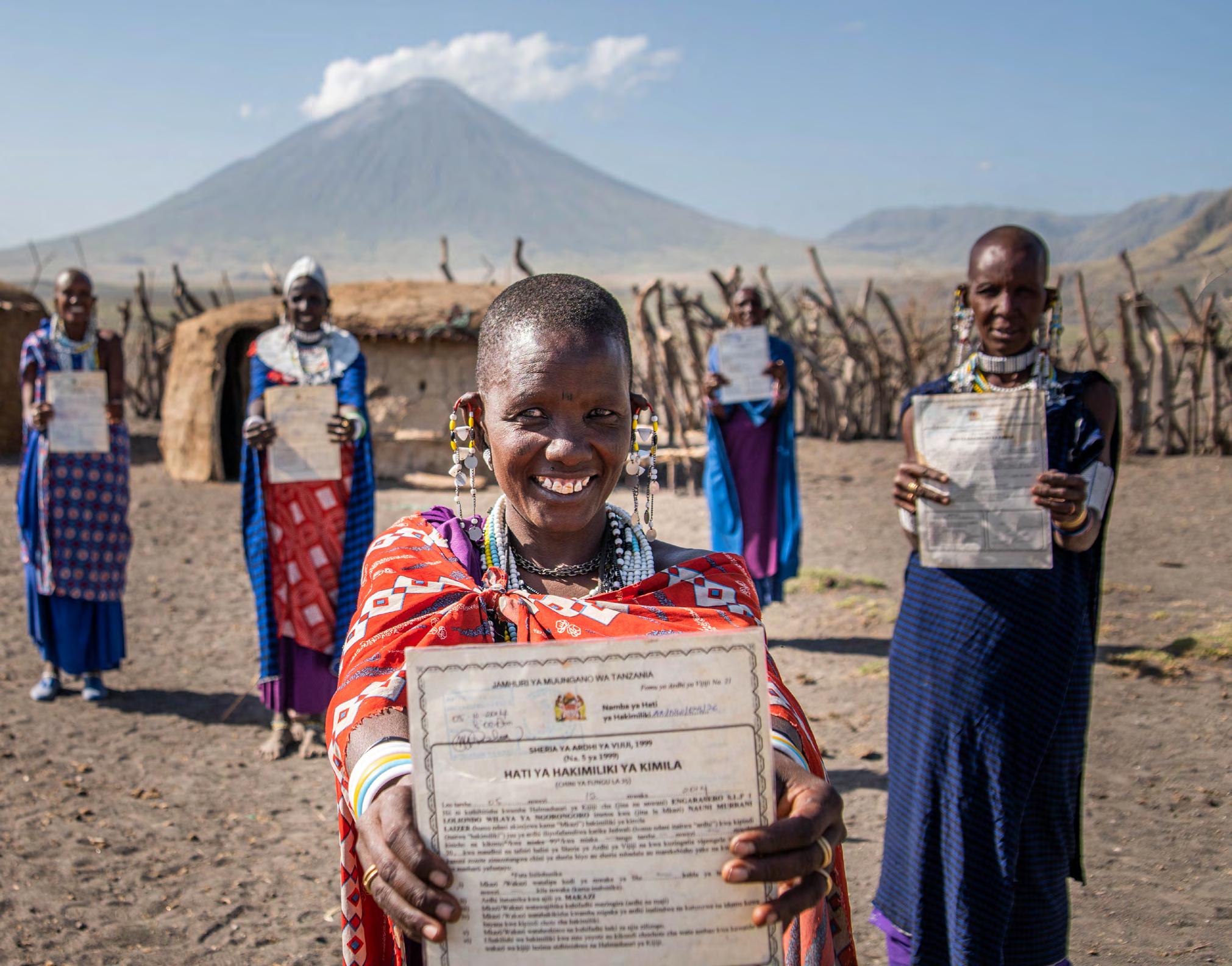
Growing up in a nomadic Maasai family, I was no stranger to hardship. I walked long distances to fetch water for our animals, often going without meals, surviving on a single cup of milk and wild fruits while herding cattle. Despite these challenges, I have fond memories of sharing meals, telling stories around the fire, and the excitement when our fathers and brothers returned home with gifts and roasted meat.
My life changed when I was chosen to go to school—a rare opportunity for girls in my village. When my friend in fifth grade was forced into marriage and publicly humiliated for resisting, I knew I could be next. Encouraged by a teacher, I was determined to say no. The pressure from my family was overwhelming, but with the advocacy of a Member of Parliament, I was able to continue my education. I later earned scholarships to study in Tanzania and Ireland before returning home to work with a human rights organization.
Still, I felt unfulfilled, and alongside ten other women, I co-founded Pastoral Women’s Council (PWC). Our goal was to support Maasai women and create a new generation of women equipped with skills, dignity, and respect.
We started with nothing—convincing parents to send their daughters to school and establishing Emanyata Secondary School, a safe haven for girls escaping child marriage. Today, PWC has reached over 25,000 women, expanding beyond education into land rights, economic empowerment, combating domestic violence, and encouraging women to take on leadership roles in politics and governance.
PWC is like a river—always flowing, always providing life. Seeing women rise as activists and leaders fuels my passion to continue. Education should not erase culture— it should strengthen it while addressing harmful practices.
I hope that as you read this book, you see how the resilience of each woman, combined with solidarity and collective action, transforms communities.
One person alone cannot create change, but together, we can shape a future where every Maasai girl has the right to learn, lead, and thrive. “

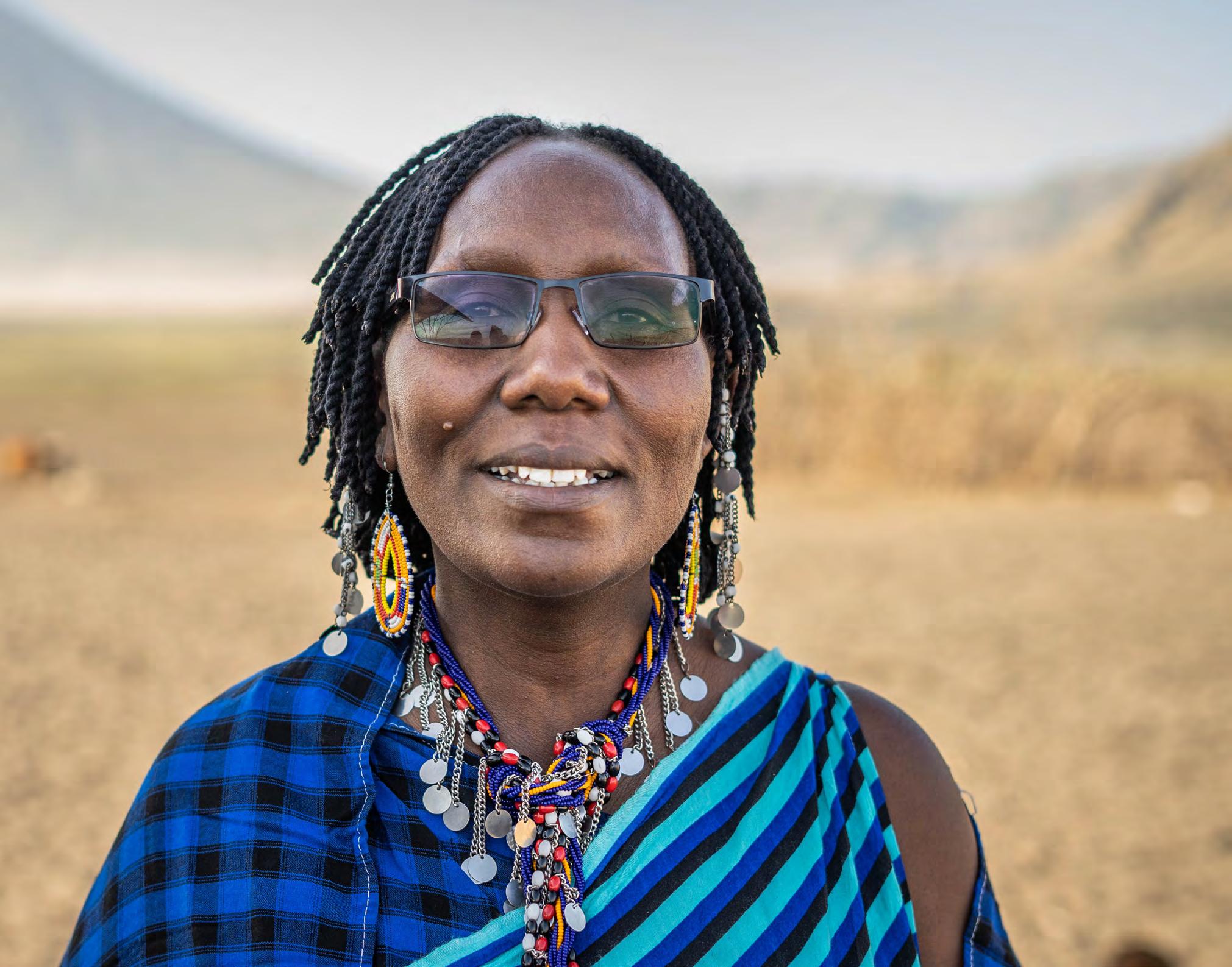


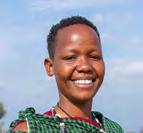
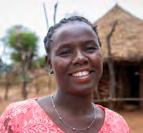
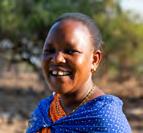
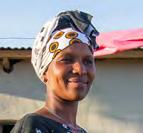
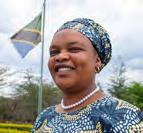
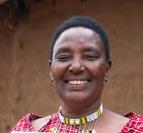
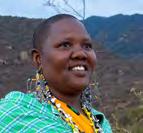

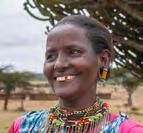
Belgina Mereso
Building Women Owned Businesses | 10
Elina Samweli Shashu Fighting for Women’s Rights and Independence | 12
Elizabeth Timotheo Leading the Charge for Education and Health Advocacy | 14
Gladness Gilole Redefining Women’s Roles Through Construction and Solar Innovation | 16
Jackline Timan Advancing Education and Equal Opportunity | 24
Jopha Kakanyi
A Legacy of Leadership for Land, Education, and Equality | 26
Kesia Simanga Turning Adversity into Advocacy | 28
Kooya Timan Encouraging Investment in Girl’s Futures | 30
Manyara Karia From Hardship to Inspiring Change in Her Community | 38
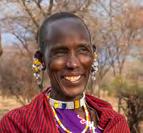
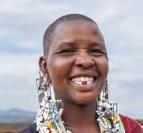

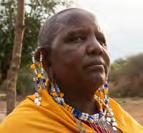

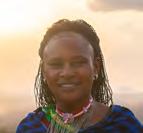
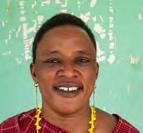
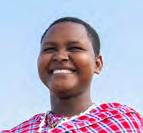
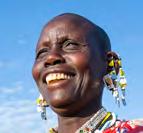
Maria Kipooni
Building Strength from the Ground Up | 40
Mbalelo Ngaay Creating Ripples of Change Through Business | 42
Nairoshi Paulo Ngoitiko Challenging Norms and Reshaping Futures | 44
Naitajewoki Kashu
Creating Financial Resilience for a Brighter Future | 52
Nambori Olenabaka Leading the Charge for Women’s Leadership in Governance | 54
Namnyak Saibulu Laizer Advocating for Girls’ Health and Rights | 56
Napiri Engidongi Mukare Inspiring a New Generation | 58
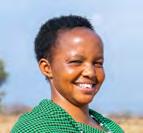
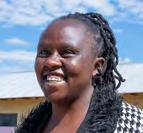
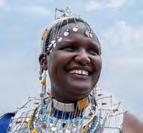

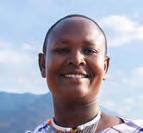
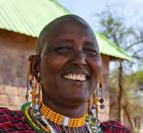
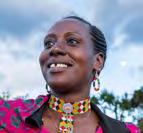
Nengai Ndeng’ere Leading Change Through Business and Resilience | 66
Noorkitoip Enole Sailuda Advocating for Land and Legacy | 68
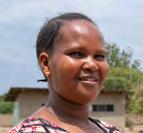
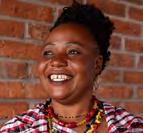
Rebeka Olteyetu
Turning Stigma into Strength | 70
Regina William Ngurumwa Teaching Beyond the Classroom | 72
Rehema Moisari Teme Raising Voices and Breaking Generational Cycles | 80
Sara Keiya Breaking Barriers at the Border | 82
Sara Lazaro Balancing Motherhood and Leadership While Championing Women’s Rights | 84
Sara Oltetia Molel Bridging Generations: Honoring the Past, Shaping the Future | 86
Sarah Toroge Ngai
A Voice for Women’s Health and Community Transformation | 94
Sijakida Nanida
Transforming Adversity into Economic Empowerment for Women | 96
Vaileth Elias Forging a New Path for Women | 98


At just 26, Belgina Mereso has established herself as a leader and advocate for women’s empowerment in Monduli. A widow and mother of two, Belgina’s journey has been shaped by her resilience and determination to create a better future for herself, her children, and her community.
After her husband’s passing, Belgina faced significant obstacles when her relatives seized her land, leaving her without financial support. Refusing to let this define her, she sought opportunities to rebuild her life. When the Pastoral Women’s Council (PWC) introduced Village Community Banks (VICOBA) in her village, Belgina saw a chance to regain control of her circumstances. She joined a savings group, attended training sessions, and took on small jobs to save what she could.
Her hard work paid off. After two years, Belgina’s VICOBA group received a grant, which she used to launch a small business. Building on this success, she trained as a Trainer of Trainees (TOT), a role that enables her to teach 10 women’s groups about savings, business development, and financial independence. Her leadership has empowered other women to take charge of their lives and achieve stability.
Today, Belgina owns her land, runs a thriving business, and has invested in livestock to secure her family’s future. Her children are receiving a good education, and she takes pride in being both a provider and a role model.
“I worked hard to rebuild my life, and now I’m helping other women realize they can do the same,” she says.
Rather than dwelling on hardship, Belgina focuses on creating opportunities and inspiring others to do the same. Her vision extends beyond her family—she envisions a future where widows and women in her community are respected, have equal opportunities, and the freedom to make their own decisions.
Her advice to young Maasai girls is a reflection of her own journey: “Work hard, stay in school, and don’t let challenges stop you. Use them as steps toward success, because nothing is impossible.”
I worked hard to rebuild my life, and now I’m helping other women realize they can do the same.
Elina Sambuli Shashui (pictured right in pink) is an advocate for women and children affected by violence and injustice. Her work is fueled by firsthand encounters with harrowing cases. She recalls tragic instances that have stayed with her—one where a woman was killed by her husband after being tortured, and another where she found a woman abandoned, beaten, and tied up.
“With the help of the sub-village chairperson, we freed her, gave her clothing, and brought her and her fouryear-old daughter to live with me,” Elina shares. Determined to help the woman rebuild her life, she provided her with 150,000 Tanzanian shillings to start a small business. The initial support was life-changing, and the woman soon joined a Village Community Bank (VICOBA) savings group, earned an income, and regained her independence.
Elina is passionate about educating women on their rights, especially in areas such as property ownership and leadership. “Women have the right to own livestock and land and share responsibilities within the family,” she explains. Using her own life as an example, she shows women how they, too, can contribute meaningfully to their households.
Her salon business supports her children’s education by providing essentials, while her husband covers their school fees. Beyond her family contributions, Elina encourages women to register for government positions, such as village chairperson or councillor, believing that leadership brings real change. However, her work is not without resistance.
“Some call me a witch because they don’t understand my prayers or the support I provide,” she shares, shrugging off the criticism.
With backing from the Pastoral Women’s Council (PWC), Elina has honed her skills in managing VICOBA savings groups. Her group now oversees around 20 million Tanzanian shillings, helping women achieve financial stability and support their families. For Elina, the goal is clear: to ensure every woman can live with dignity and independence. “I always encourage women to stand up for themselves,” she says. Through her work, Elina helps women reclaim their rights, build stronger futures, and take control of their lives.
Women have the right to own livestock and land and share responsibilities within the family. “

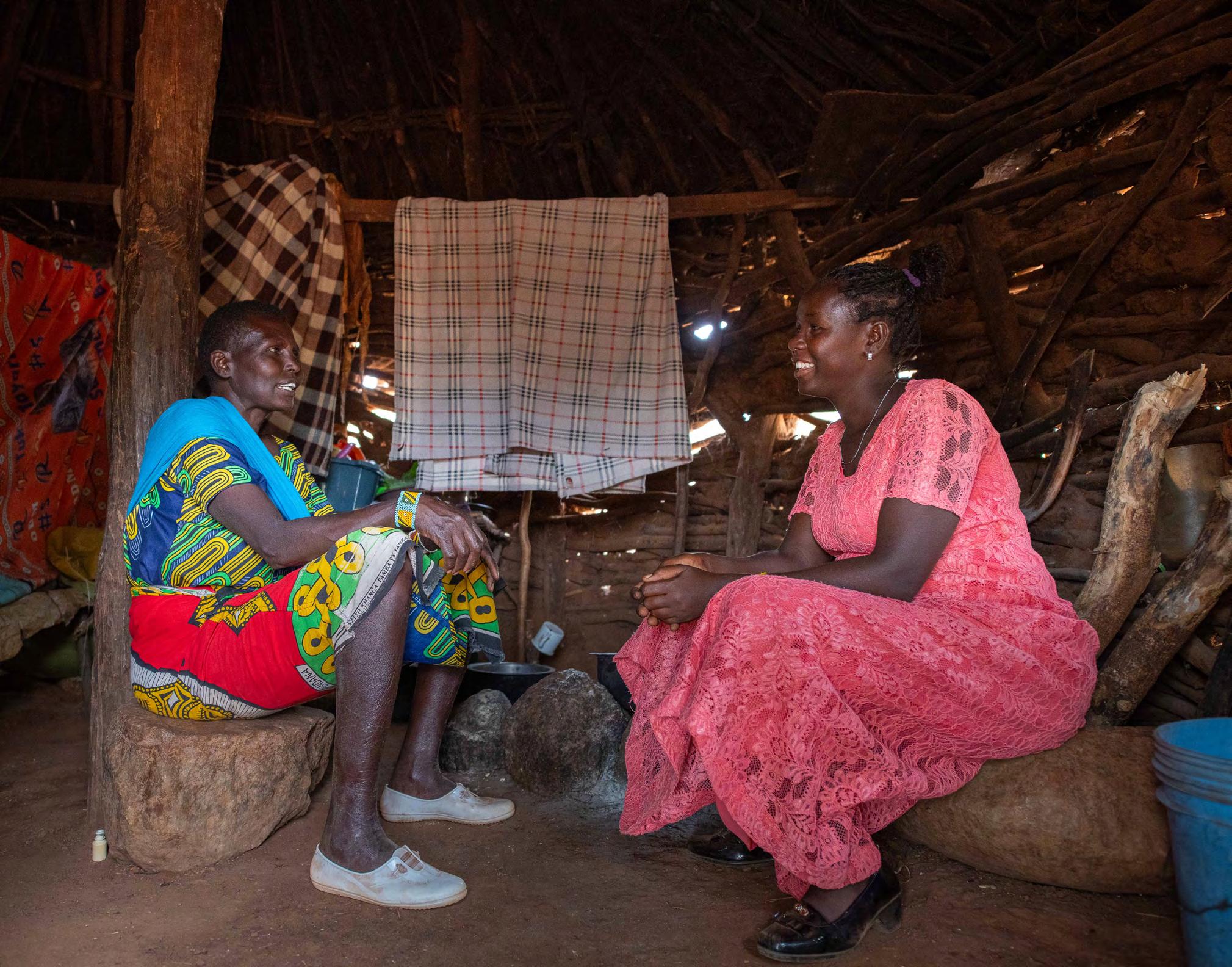
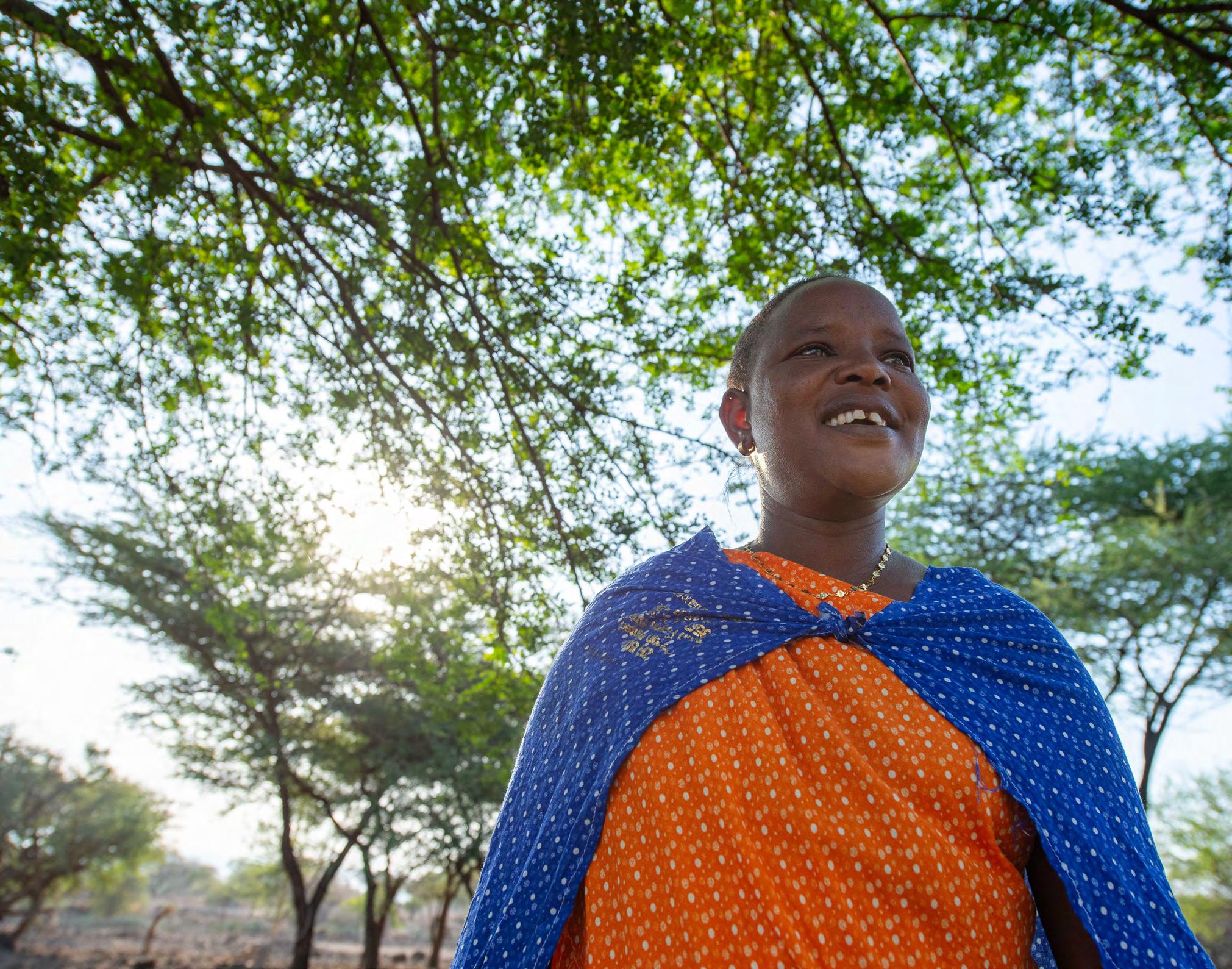

For Elizabeth Timotheo, leadership is more than a role—it is a mission to create lasting change. Since 2015, Elizabeth has served as a councillor in Ketumbeine, advocating for the rights and well-being of women and families in her community. Alongside her leadership role, she cares for her children while working to unite women, fostering a sense of collaboration and support. She has been a vocal advocate against early marriage, ensuring that more girls stay in school. To address financial barriers, she organizes fundraising events—locally known as harambees—to support families struggling to afford school fees. “When girls receive an education, the entire community benefits,” she says.
Her impact extends to economic empowerment. By providing women with skills training and access to small loans, she has helped many start businesses and improve their families’ livelihoods. Her efforts have not only strengthened individual households but have also elevated the economic standing of women across her community.
Elizabeth is equally passionate about healthcare. She has organized maternal health awareness campaigns to reduce complications during childbirth and improve access to medical care. Her initiatives through the Pastoral Women’s Council (PWC) have played a crucial role in ensuring women and families receive critical healthcare services.
She hopes to expand her leadership to a broader platform, reaching more women and girls through education and economic initiatives. For her family, she dreams of financial stability, access to quality healthcare, and educational opportunities for her children. “I want my children to grow up with values of leadership, resilience, and service,” she shares.
Her ultimate goal is to leave a lasting legacy of positive change that benefits not only her family but the entire Maasai community. Through her work, Elizabeth Timotheo is proving that one leader’s determination can uplift countless lives.
When girls receive an education, the entire community benefits. “
After her husband’s death, Gladness lost all her property to his relatives—a common challenge faced by widows—leaving her with nothing to support her family. As a single mother, she worked tirelessly to rebuild her life, providing for her children while challenging deeply ingrained societal norms in her pastoral community of Sale, Ngorongoro.
Gladness mobilizes women to join Village Community Bank (VICOBA) savings groups and encourages them to start small businesses to generate income. Her goal is clear: to reduce women’s dependence on men and challenge traditional perceptions of women’s roles. “Women need to work hard to support their families and show that we are just as capable as men,” she says.
In 2020, Gladness received training in solar installation, brickmaking, biogas production, and general business skills. She quickly put these skills to use, becoming one of the first women in her community to take on house construction and solar installation—fields traditionally dominated by men.
“When people saw me climbing to the top of a house to install solar panels or stacking bricks, it changed their thinking,” she explains. Today, she is often chosen over men for day labor jobs, earning respect for her expertise and reliability.
Her work has redefined what’s possible for women in her community. By challenging traditional gender roles, she has proven that women can excel in trades previously reserved for men. “I’ve proven that women can do the same work as men and do it just as well, if not better,” she says with a smile. Gladness has become a role model for young women, inspiring them to challenge societal expectations and pursue opportunities they once thought were out of reach. “I trust that when you put all your efforts into something, it will prosper,” she says.
Reflecting on her journey over the past five years, she sees how far she has come and uses that progress as motivation to keep moving forward. With her family depending on her, she refuses to remain idle or let challenges hold her back. “I don’t want to go back to where I came from,” Gladness explains. “There are many challenges, but I face them with courage because I am determined to give my family the best life possible.”
When people saw me climbing to the top of a house to install solar panels or stacking bricks, it changed their thinking. “

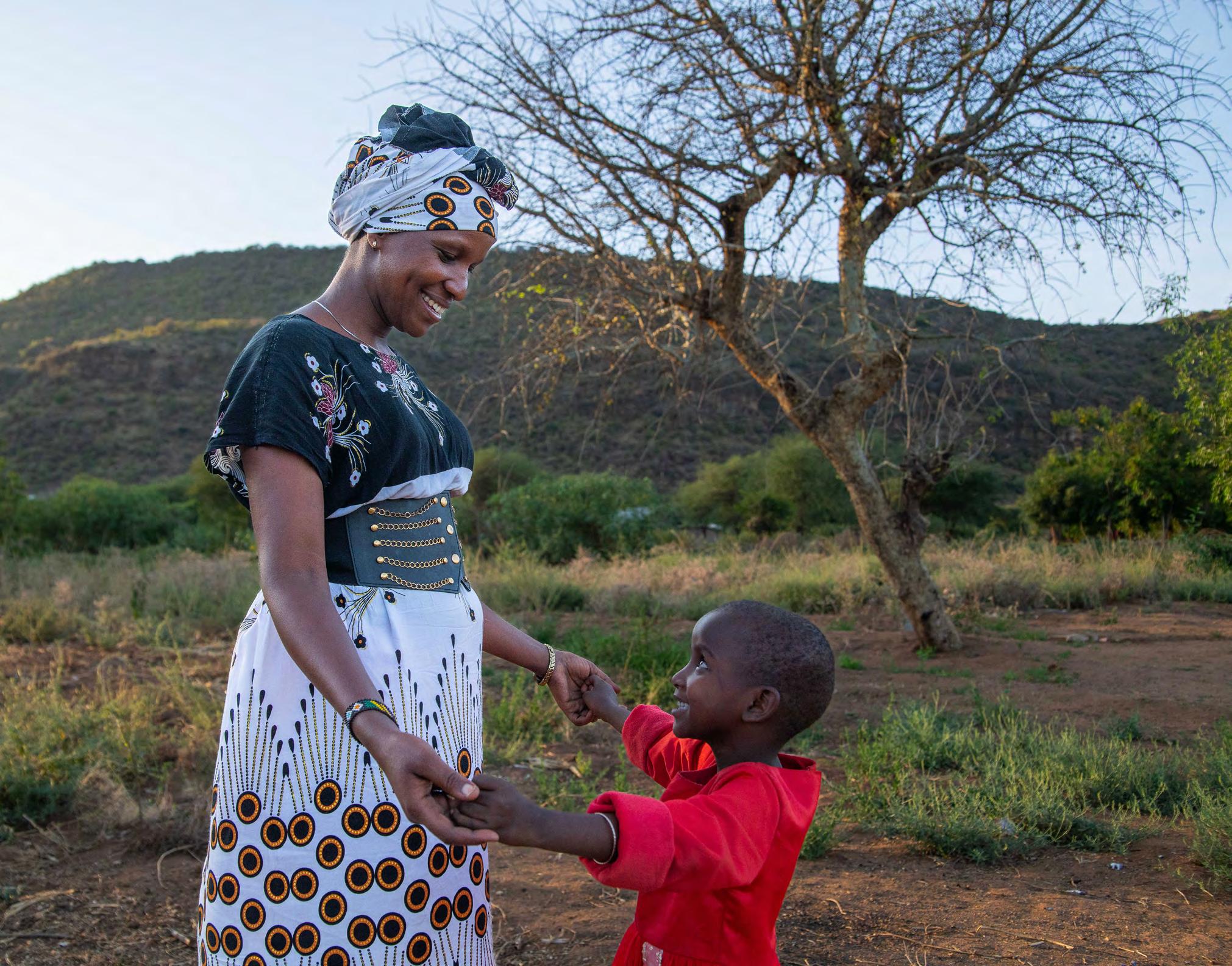

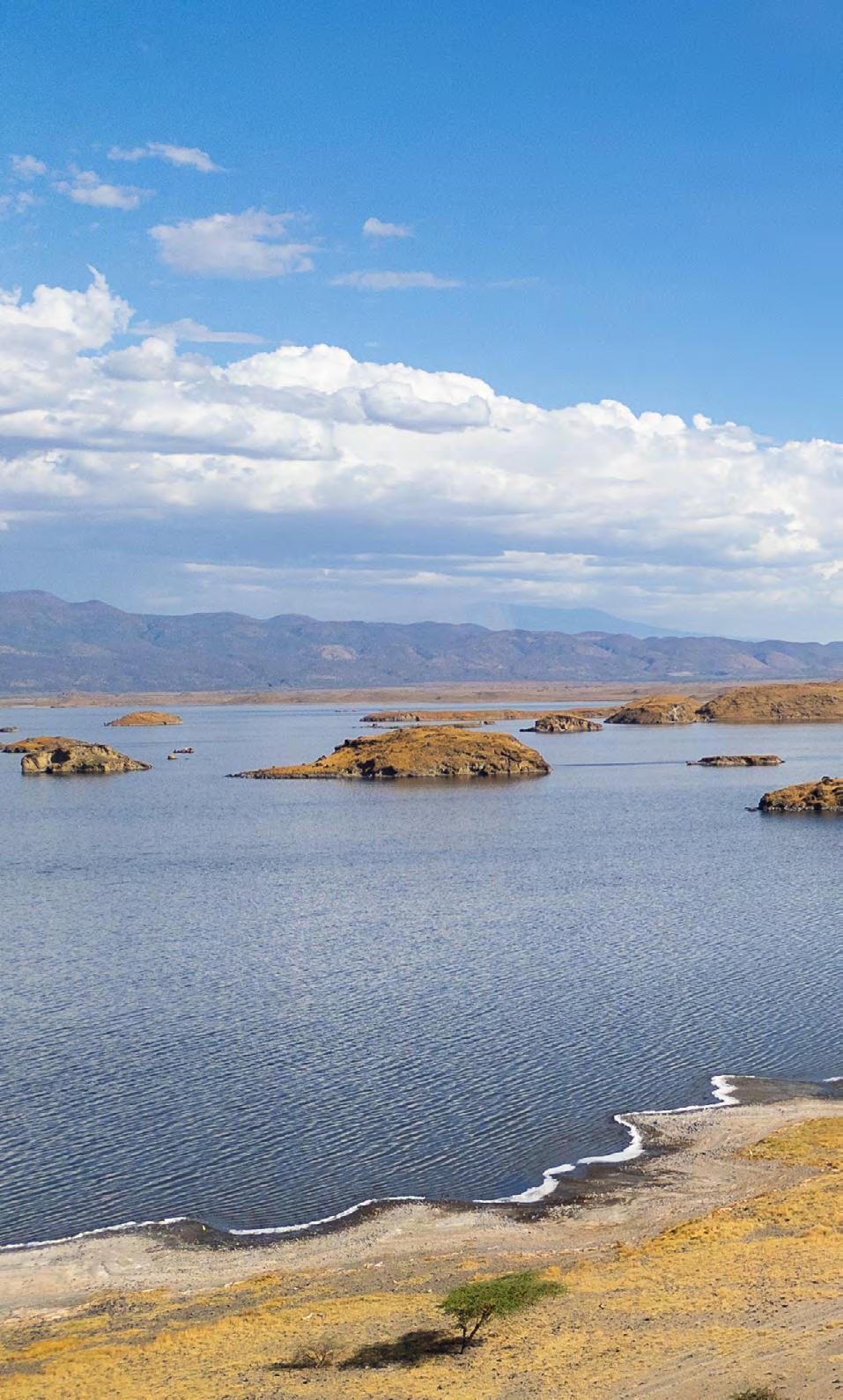
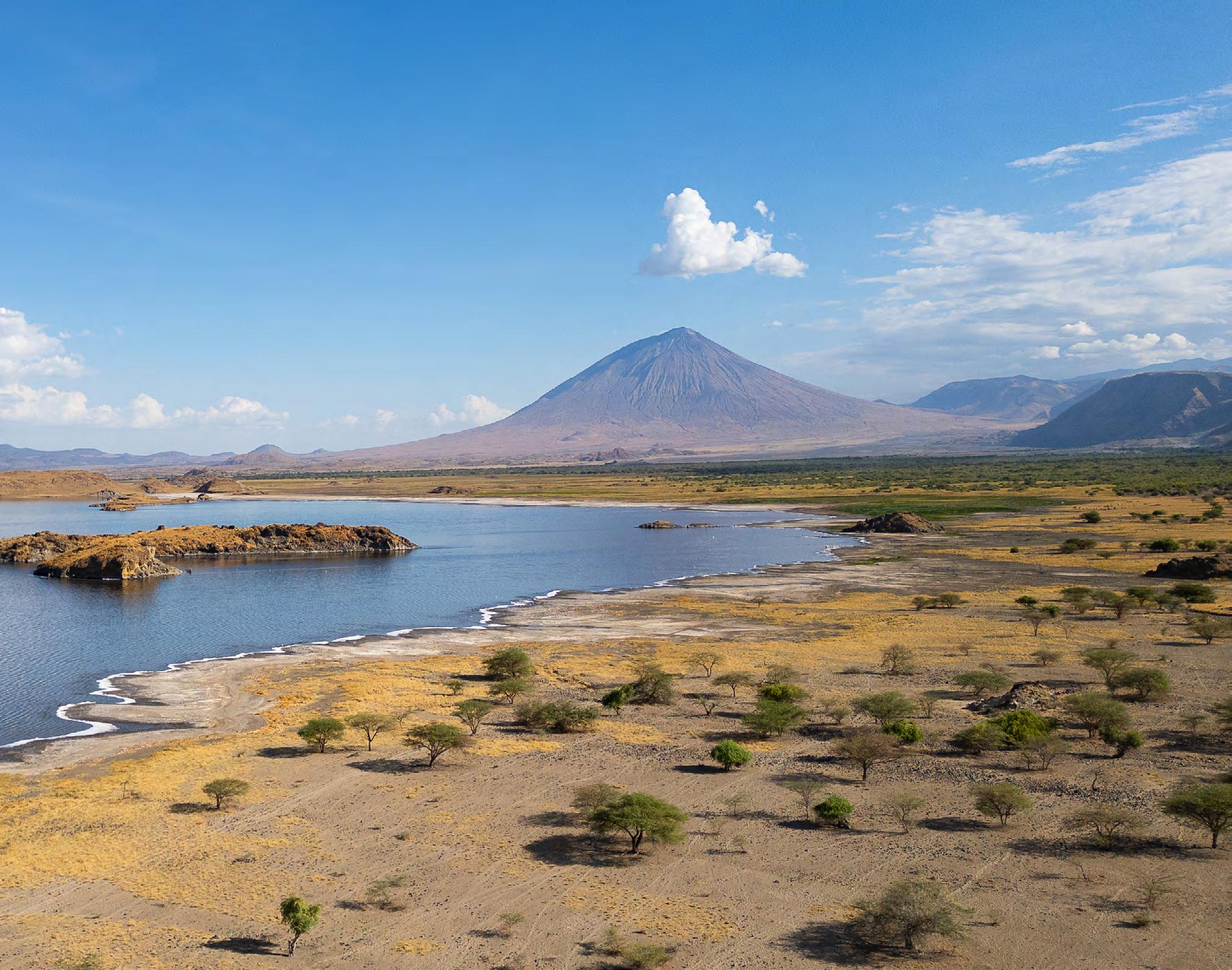
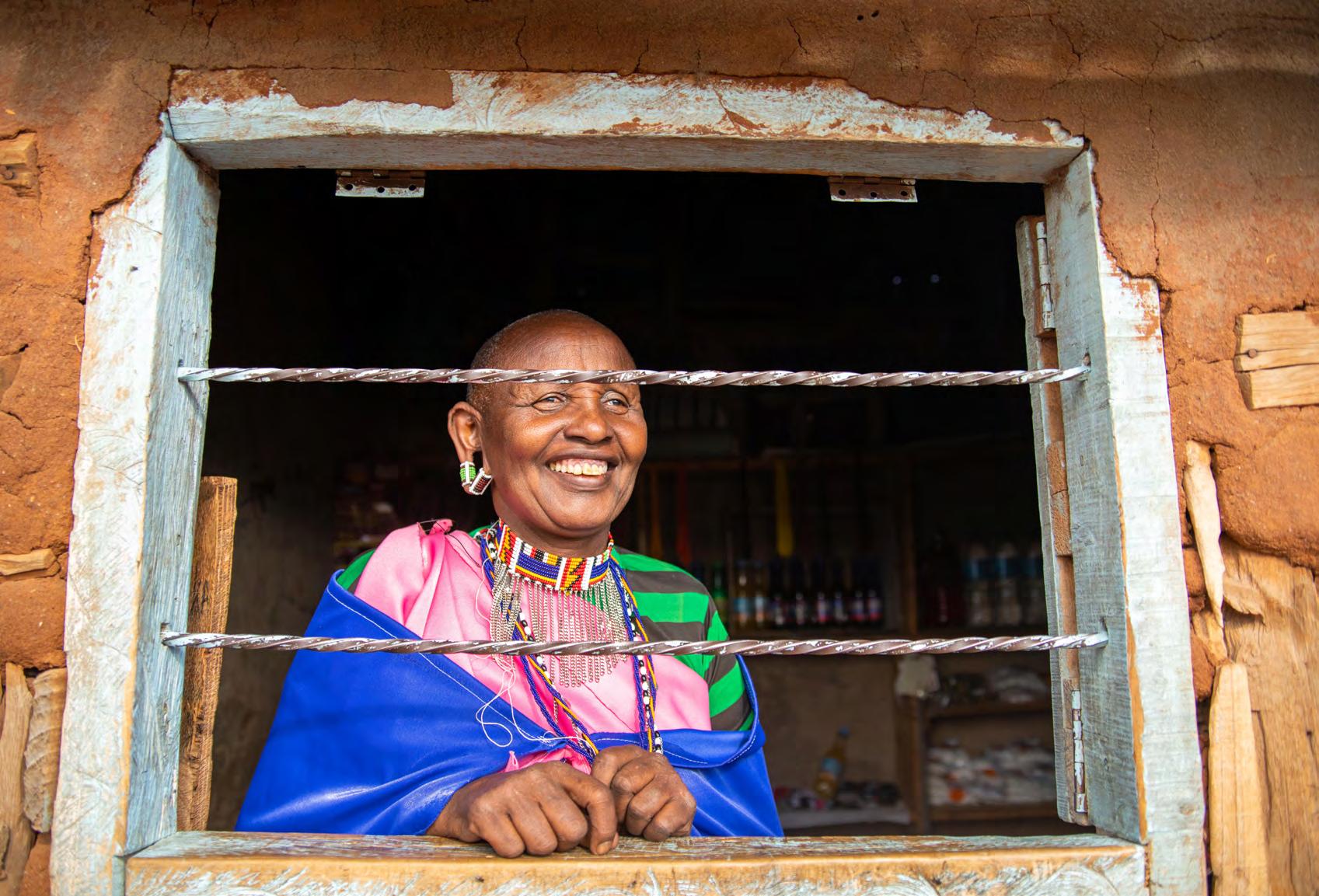

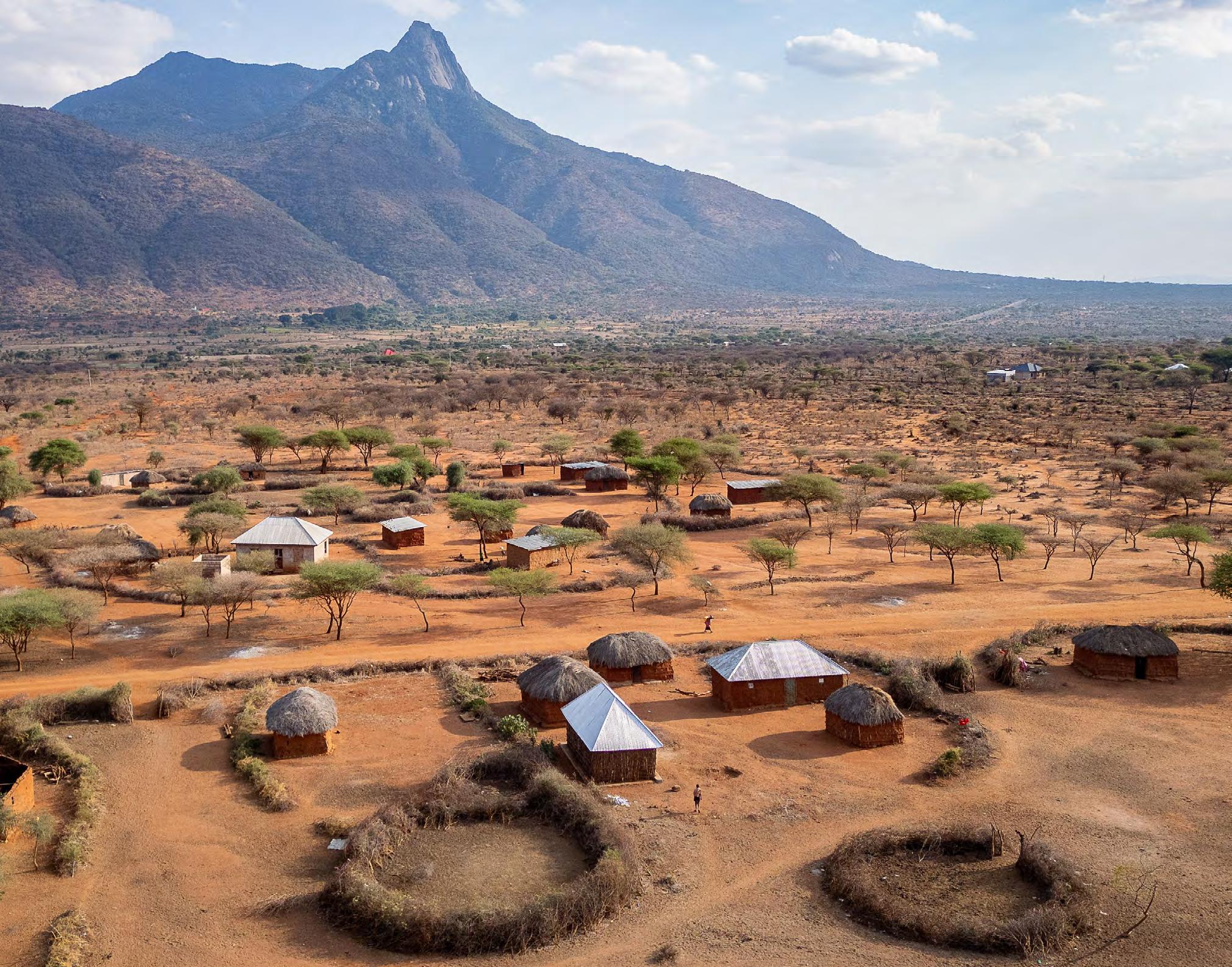
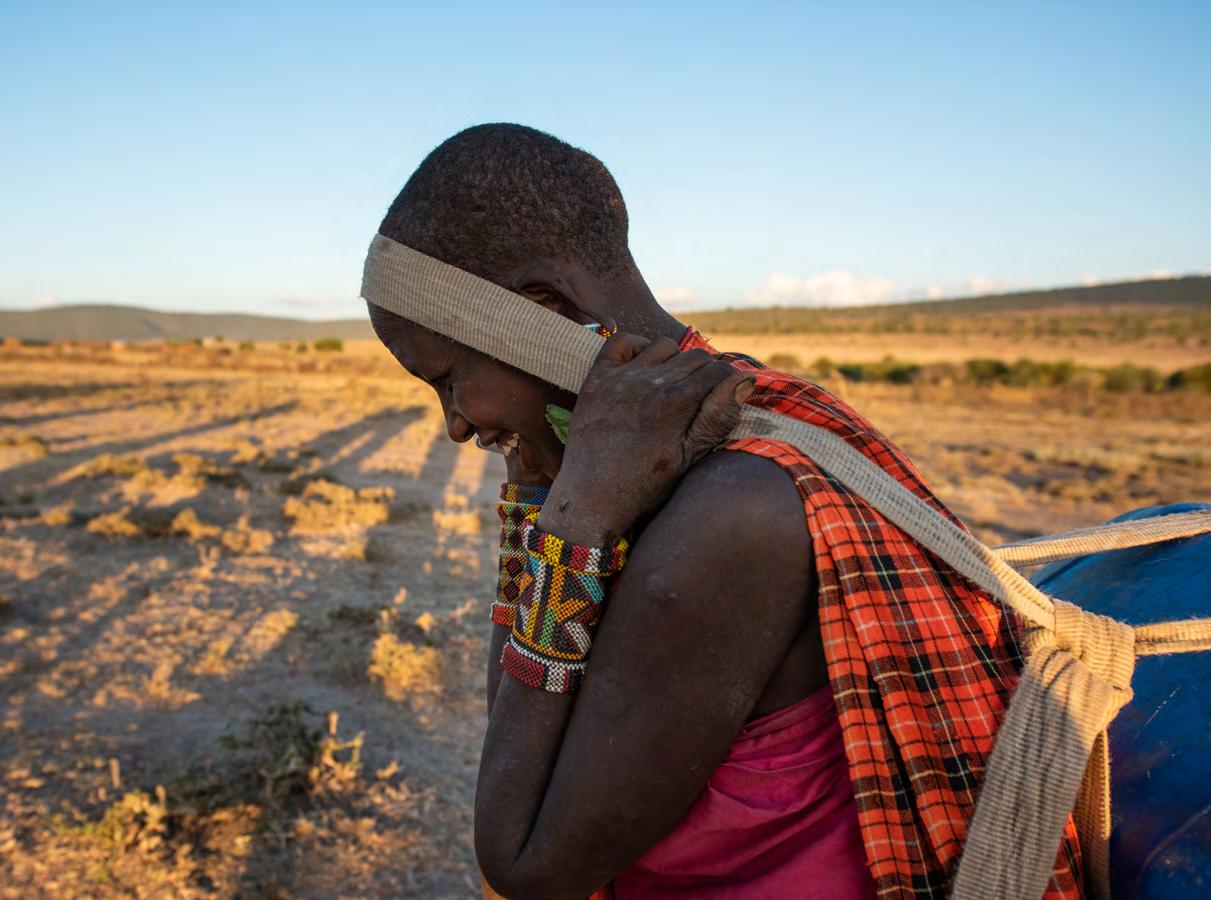
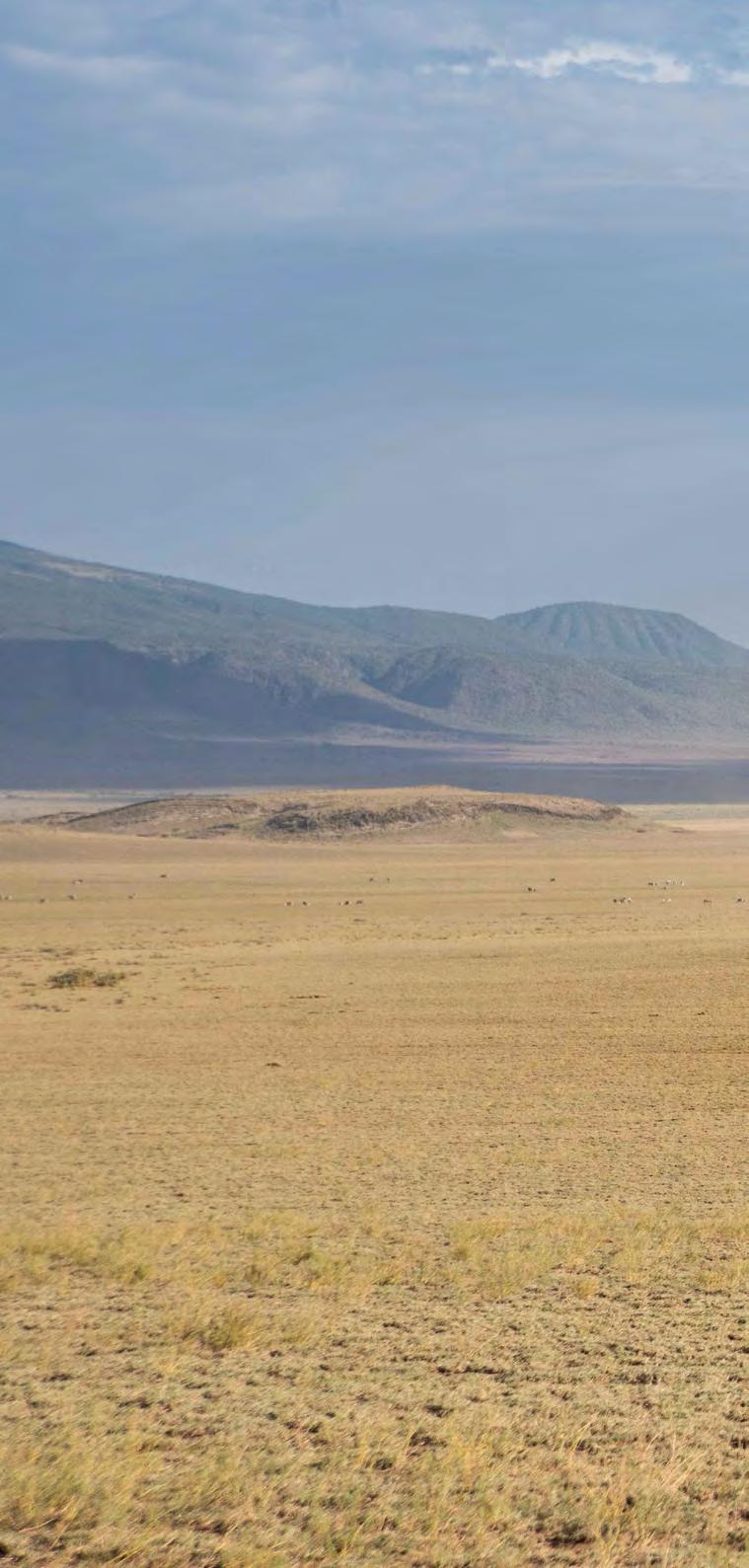
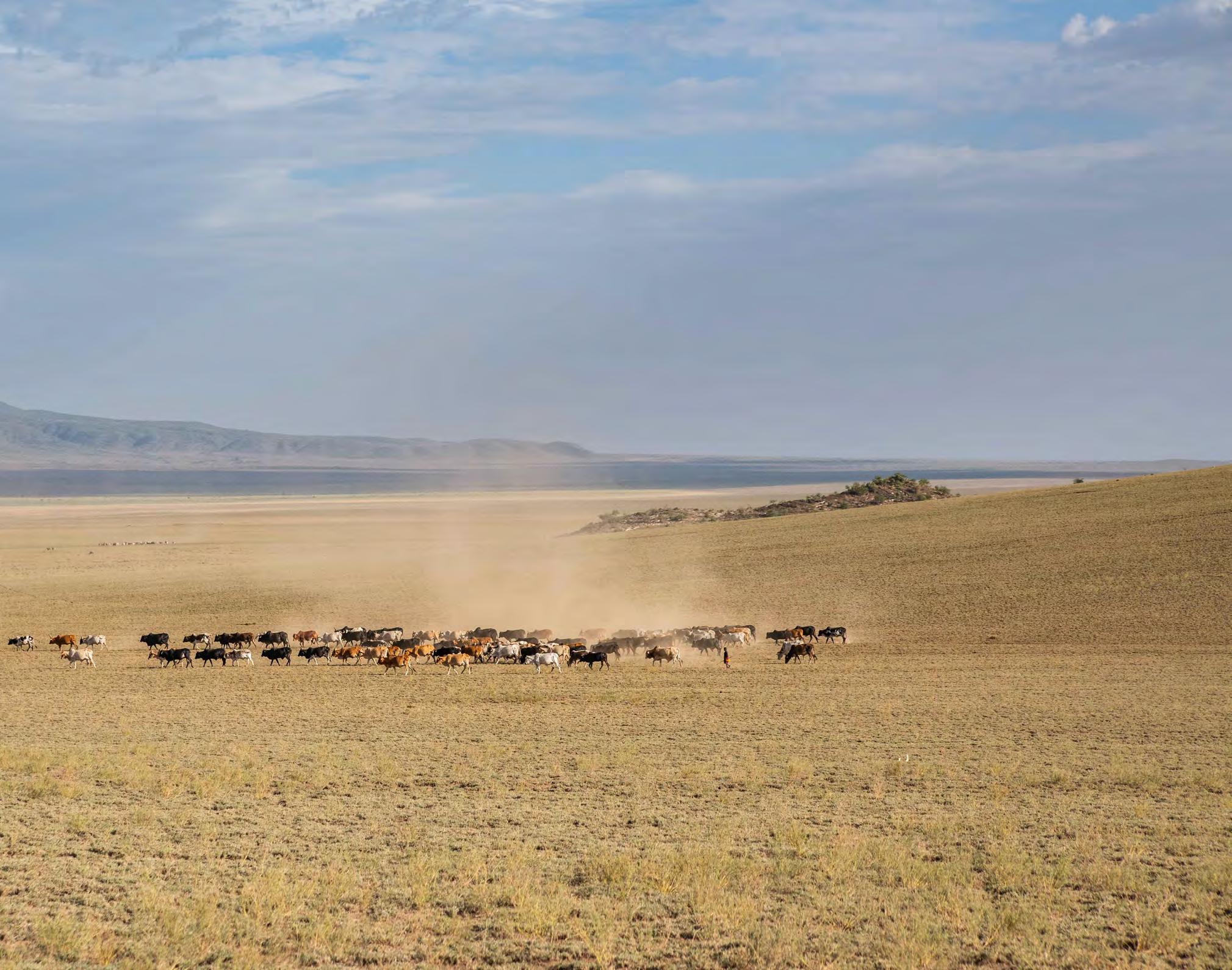
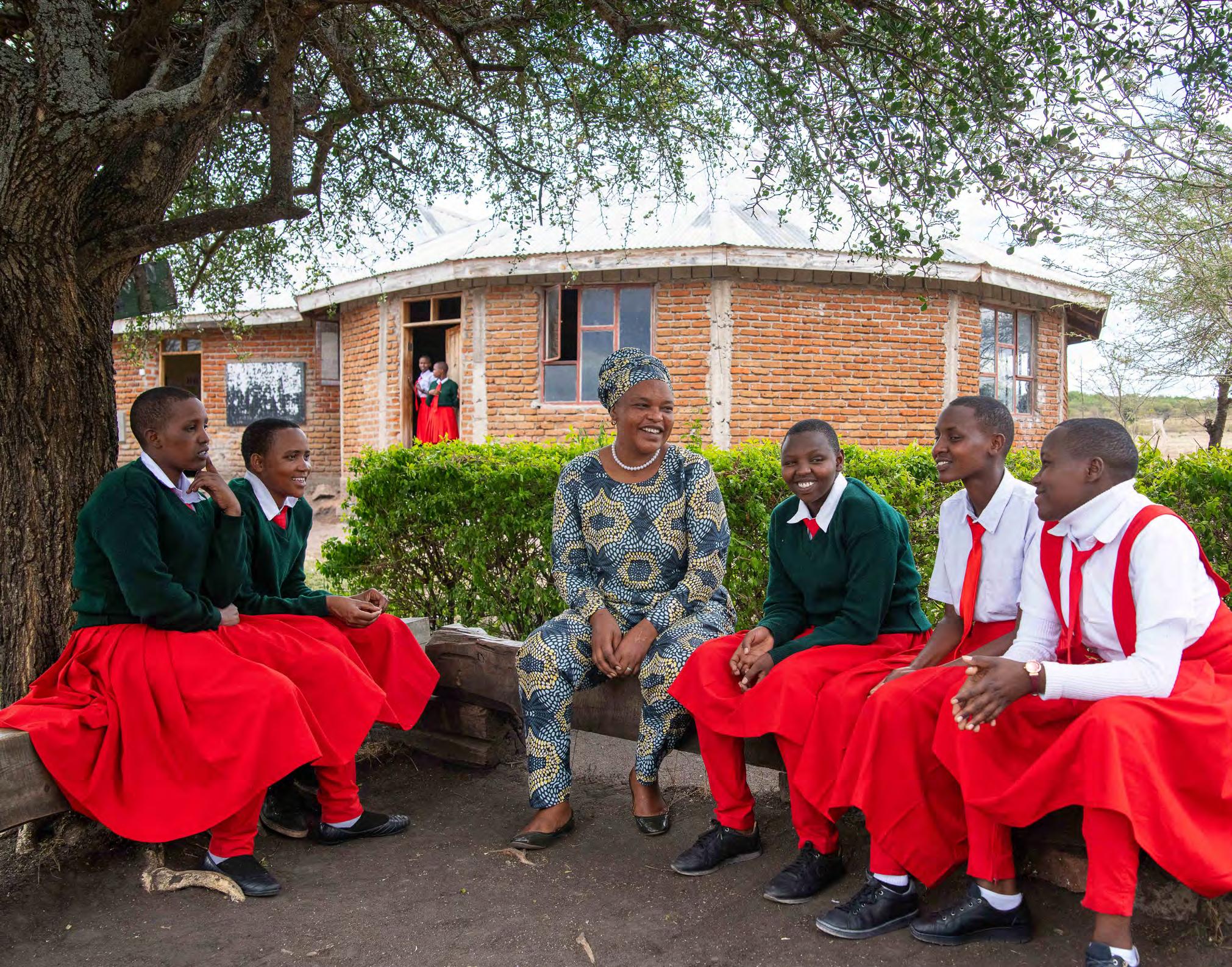

For over two decades, Jackline Timan has been a steadfast champion of education in her community. With support from the Pastoral Women’s Council (PWC), Jackline pursued her own education and returned home with a mission: to ensure that Maasai girls and boys have the opportunity to learn and reach their full potential. “I want girls in the Maasai community to have the chance to learn and achieve their dreams,” she says.
Jackline’s dedication has transformed lives. School enrollment has increased significantly, with more children— including those with disabilities—attending school. She works to raise awareness among parents about the importance of education, encouraging them to see its value for their children’s futures. Her pride shines when she speaks of students who have become nurses, doctors, and other professionals thanks to her support. “It’s incredibly rewarding to witness how much education can change lives,” she says.
In her role, Jackline supervises schools, ensures they provide a nurturing learning environment, and works closely with parents to build a culture that values both academic and practical skills. “Education lays the foundation for life,” she explains, “but children should also learn how to contribute meaningfully to their communities, even if they pursue formal jobs.”
Jackline’s work bridges Maasai traditions with progress. “Strong women are the backbone of our culture,” she emphasizes. She actively works to prevent early and forced marriages, ensuring that girls stay in school. While challenges remain—such as students dropping out due to pregnancy—Jackline continues to educate the community about these issues. “We’re making progress, but it takes time and persistence,” she notes.
Beyond education, Jackline champions women’s rights and unity. Through platforms like the Women’s Rights and Leadership Forum (WRLF), supported by PWC, she brings women together to share knowledge and build collective strength. “I’m grateful for these spaces that amplify women’s voices,” she says.
Looking ahead, Jackline envisions a future where all children have access to education and women gain independence, healthcare, and respect. “Success, to me, means ensuring Maasai women and girls have equal opportunities and support,” she explains.
Through her work, Jackline inspires girls and women to stand up for their rights, work hard, and support one another. “Everything in life requires time and effort. Success comes with respect and perseverance,” she tells her students. Jackline’s commitment continues to shape a better future for her community.
Known as a problem solver and beloved figure, Jopha is affectionately called ‘mother’ by people of all ages.
Jopha’s (pictured center) leadership journey began in 1989 when she worked with World Vision and became an HIV/AIDS advisor. Inspired by her late husband, a traditional leader, and her father, a community leader, Jopha pursued leadership roles, starting with the village council. Her deep connection to her community, combined with her political insight, earned her widespread respect and admiration.
Since joining the Pastoral Women’s Council (PWC) in 1999, she has shared her knowledge on land rights and leadership, helping 350 women obtain land certificates and fostering financial independence among women. She emphasizes how empowering women financially has strengthened families and improved household relationships.
As a mother of eight, she sees her role as uniting her family and supporting her community, drawing on her late husband’s legacy as a traditional leader. Known as a problem solver and beloved figure, she is affectionately called ‘mother’ by people of all ages. Despite retiring from her councillor role, her home remains a hub for visitors seeking advice, assistance, or support, which she gladly provides.
She recalls witnessing horrific cases of abuse, such as a woman beaten to death by her husband and a girl raped by an older man. These tragedies fueled her determination to become a leader and fight for women’s rights. Today, such cases have significantly decreased in her community due to her efforts to raise awareness and enforce accountability.
Jopha has helped 19 girls pursue higher education, some of whom are now councillors or working professionals. She has also supported boys, with three going on to become doctors and teachers. She has facilitated youth access to land and promoted women’s economic empowerment by providing women’s groups with corn-grinding and shelling machines.
Her efforts in addressing water scarcity have led to sustainable water projects in six villages. She has worked tirelessly to foster peace, dignity, and faith in her community, leaving a legacy she is proud of and believes will endure.
For Jopha, the most rewarding part of her journey is knowing that her leadership has brought justice and hope to women who were once voiceless. She remains determined to continue this work until her vision is fully realized.

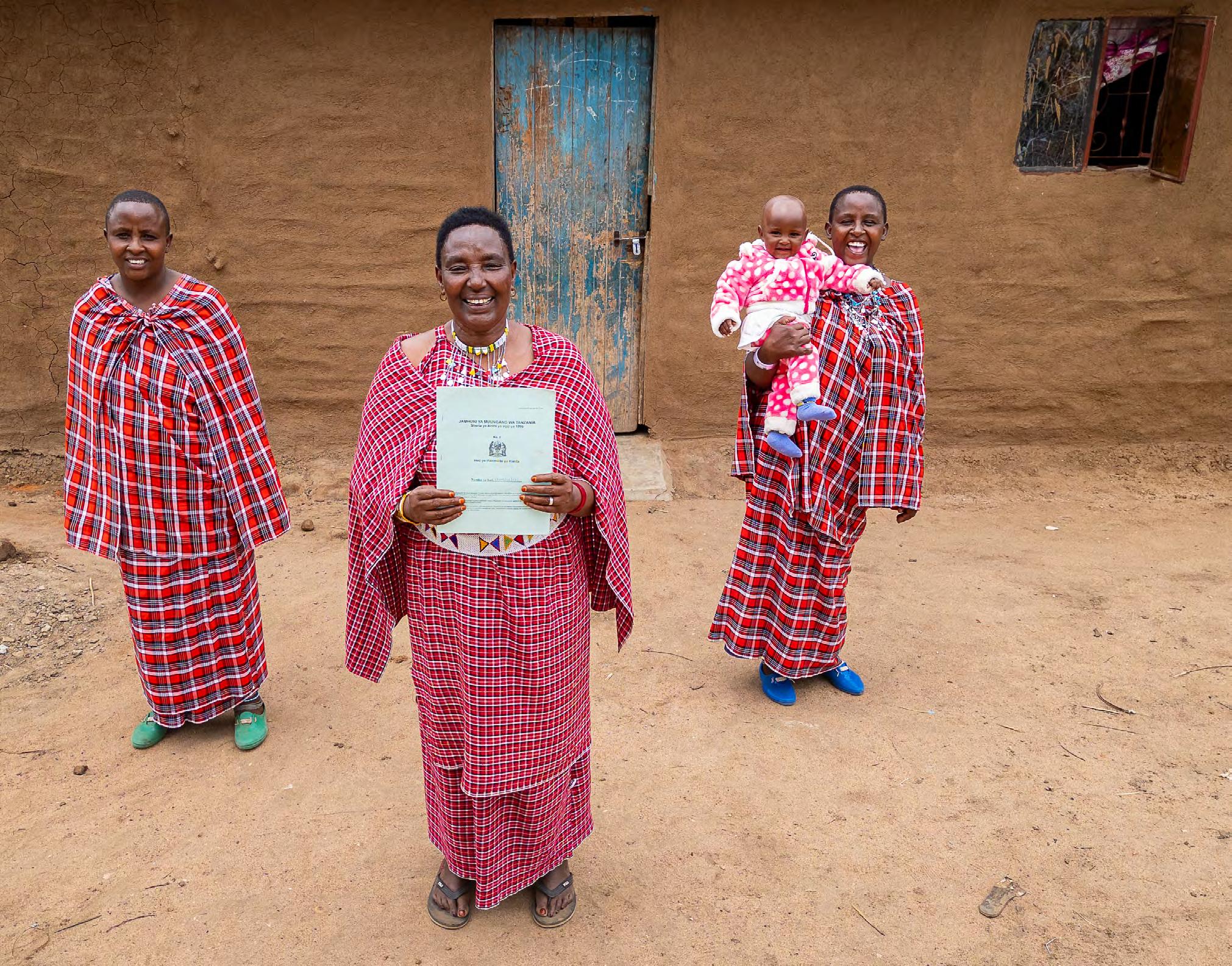
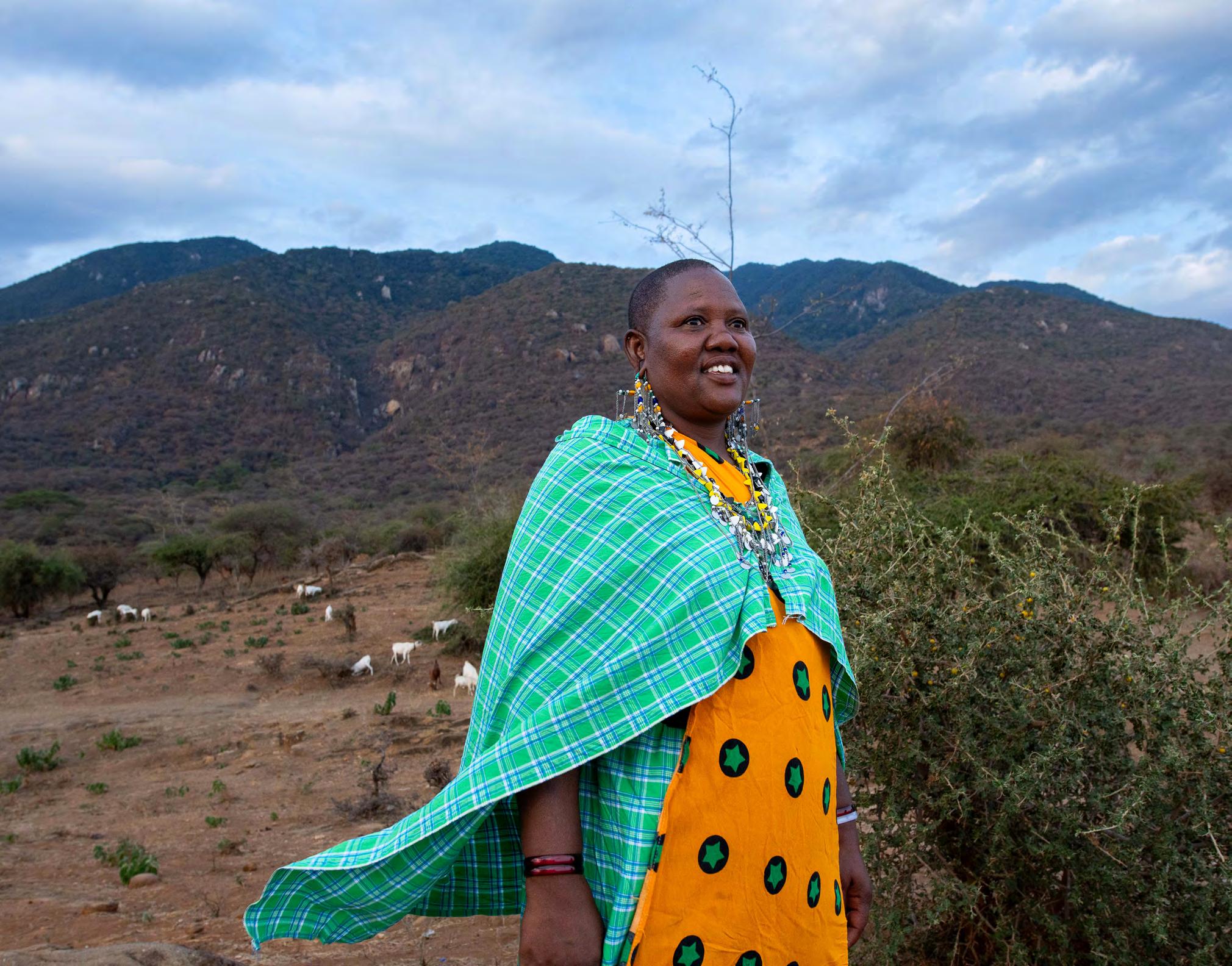

Fifteen years ago, Kesia Simanga Laizer made the difficult decision to leave her abusive husband. He would often come home drunk, beat her, and blame her for their inability to have children early in their marriage—unaware that complications from childhood circumcision had caused her health issues. Eventually, Kesia gave birth and went to live with her father.
When her husband attempted to take her back, her father refused, saying he had never valued her. After her father’s death, her husband returned with traditional leaders, but her brothers demanded that he stop drinking first. Though he tried, he relapsed after a few months, and Kesia chose not to return. Instead, she worked tirelessly to provide for her three children and meet all their needs.
As a mother, Kesia tends to her livestock and runs a small business to support her children. Beyond her family responsibilities, she is a dedicated community leader. She serves in the Leadership and Rights Forum, where she supports women facing domestic violence and helps them secure land ownership.
Kesia is also the assistant chairperson of the school leadership committee and the chairwoman of two Village Community Banks (VICOBAs), empowering women through economic opportunities and financial independence.
Kesia works to educate girls on the importance of staying in school and provides them with sanitary pads so they don’t miss classes during their periods. She also encourages boys to join VICOBAs after completing school, offering them a positive path to avoid falling into harmful habits like alcohol abuse.
Kesia is passionate about ending FGM and uses her own experience to speak out. She recalls being circumcised from morning until late afternoon, losing so much blood that she nearly died. Now, with the knowledge she has gained, she shares her story to raise awareness about the dangers of this practice and encourage others to abandon it.
I wish for women to fulfill their dreams, take on leadership roles, and never look down on themselves. They must trust and believe in their strength because they are strong and capable leaders. “
Success, to me, means ensuring Maasai women and girls have access to education, independence, healthcare, respect, and mutual support. “
Nestled on the eastern edge of Serengeti National Park, in the foothills of northern Tanzania, lies the village of Ololosokwan.
In 2005, Kooya Timan began her work as an activist with the support of the Pastoral Women’s Council (PWC). As a young girl, she had the opportunity to attend school but was forced to drop out in third grade and married off.
“Being forced to leave school felt like my future was stolen. Determined that no girl should endure the hardships I faced, I became an activist to fight for their dreams,” she explains. Today, she works to end early marriage and promote girls’ education, encouraging her Maasai community to invest in their daughters’ futures.
Kooya’s personal challenges fuel her determination. She was once criticized for sending her own children to school, but she remained steadfast, drawing strength from small victories and the support of women in her community. For her, resilience comes from the unity of women and a shared belief in a better future.
While Kooya respects Maasai traditions, she believes that strong, empowered women are essential to preserving culture. Her days begin early—tending livestock, preparing meals, and supporting her children’s education—but her work extends far beyond her home. She attends community meetings—invited or not—to ensure women’s voices are heard, challenges harmful practices like early marriage, and helps women gain access to land and business opportunities.
“In the years to come, I want to help more Maasai women understand their rights, expand my business, and ensure my children grow up with the knowledge to build better lives,” Kooya says.

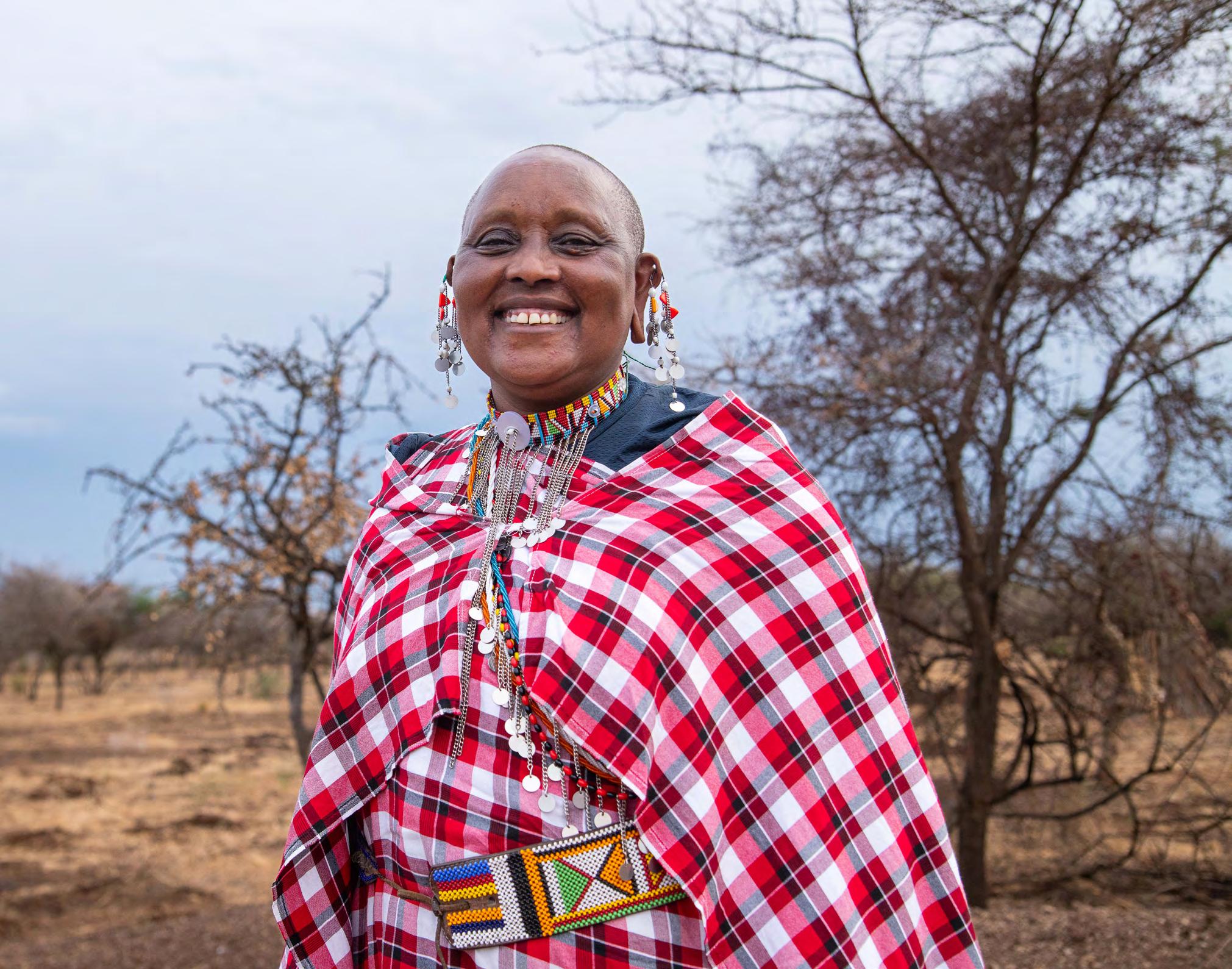

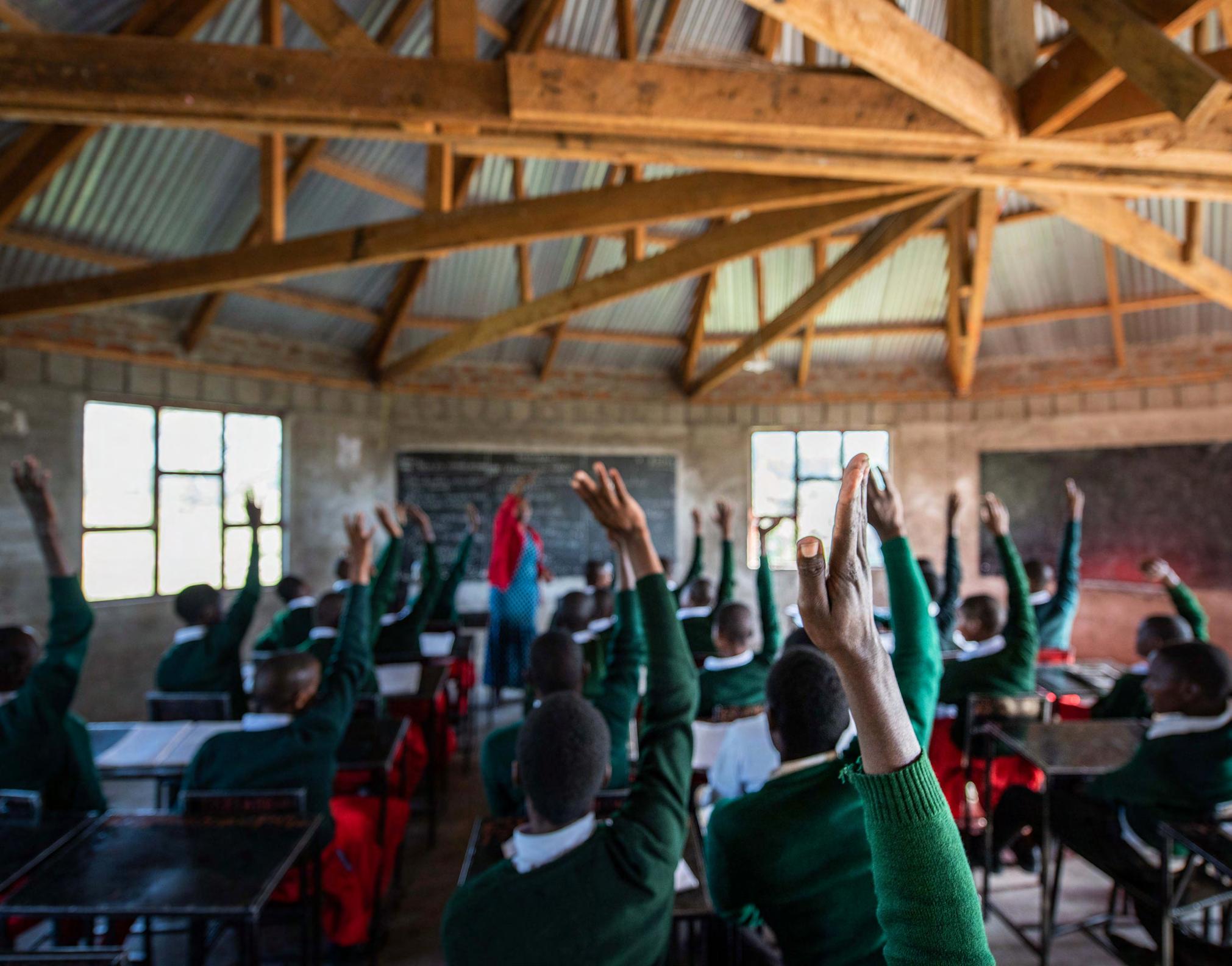
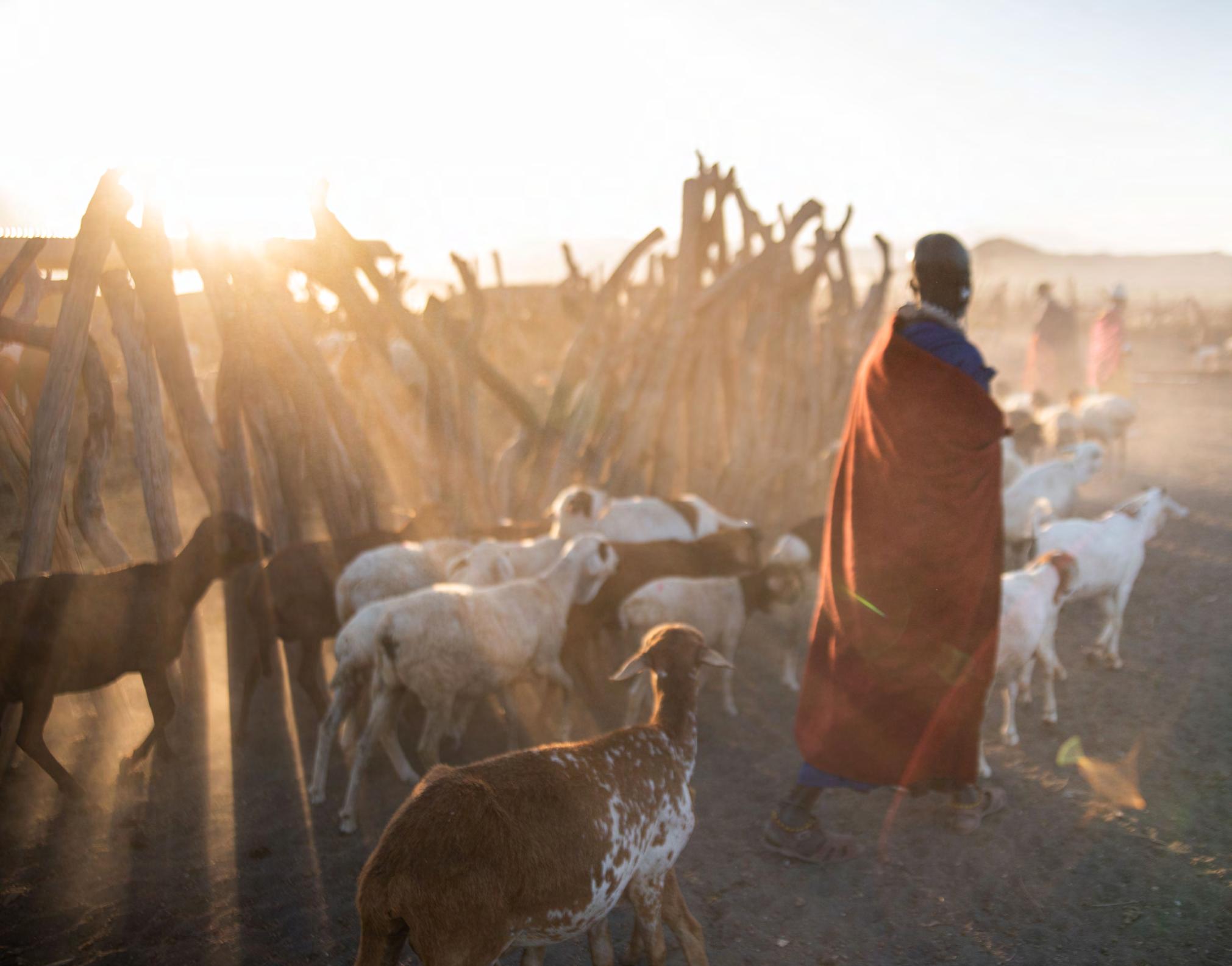
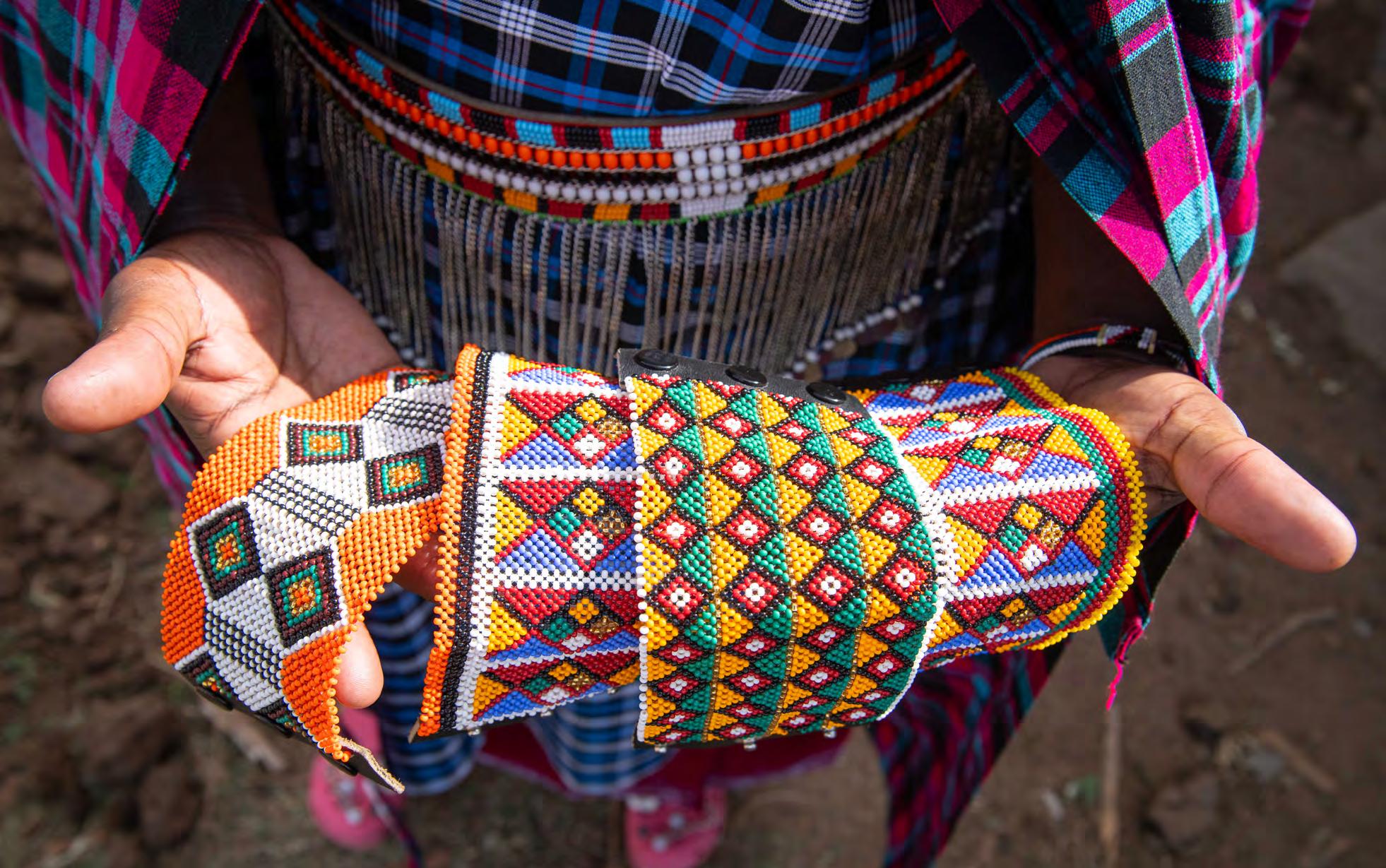
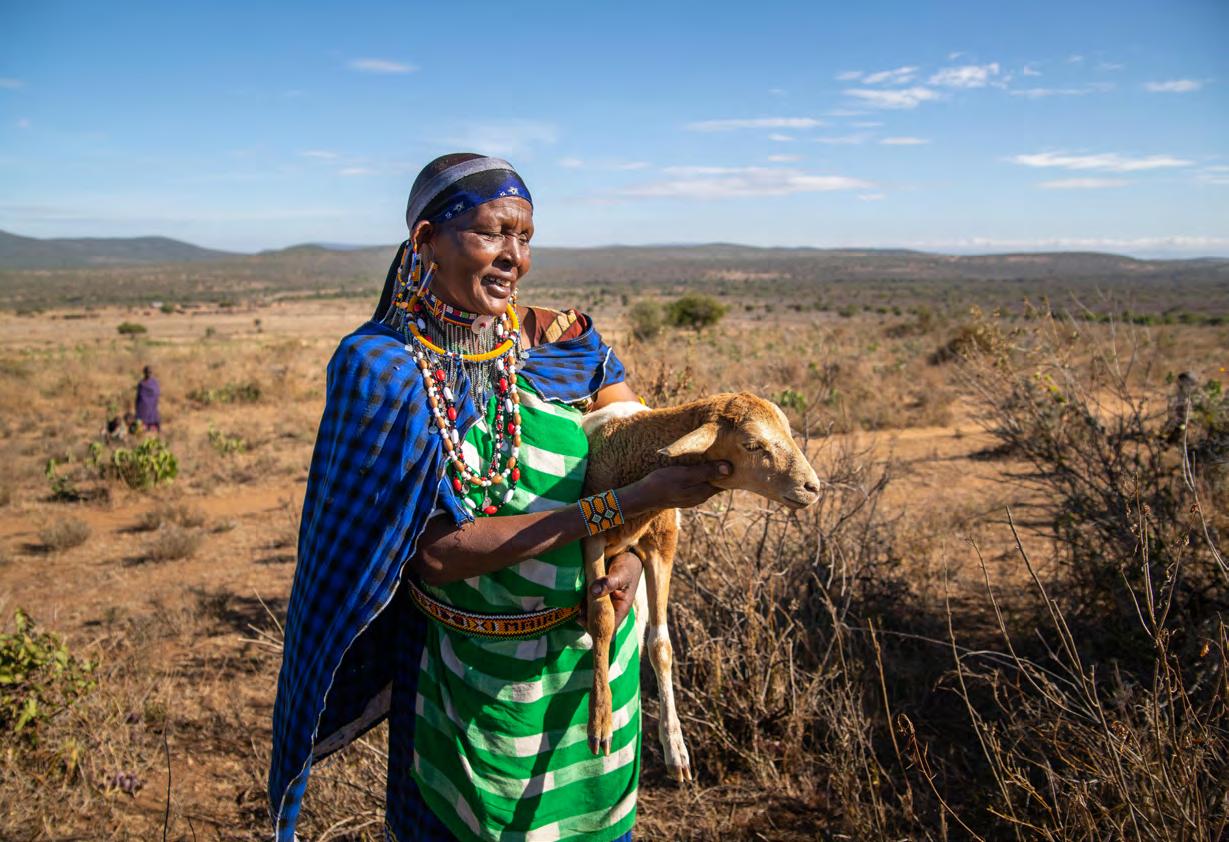

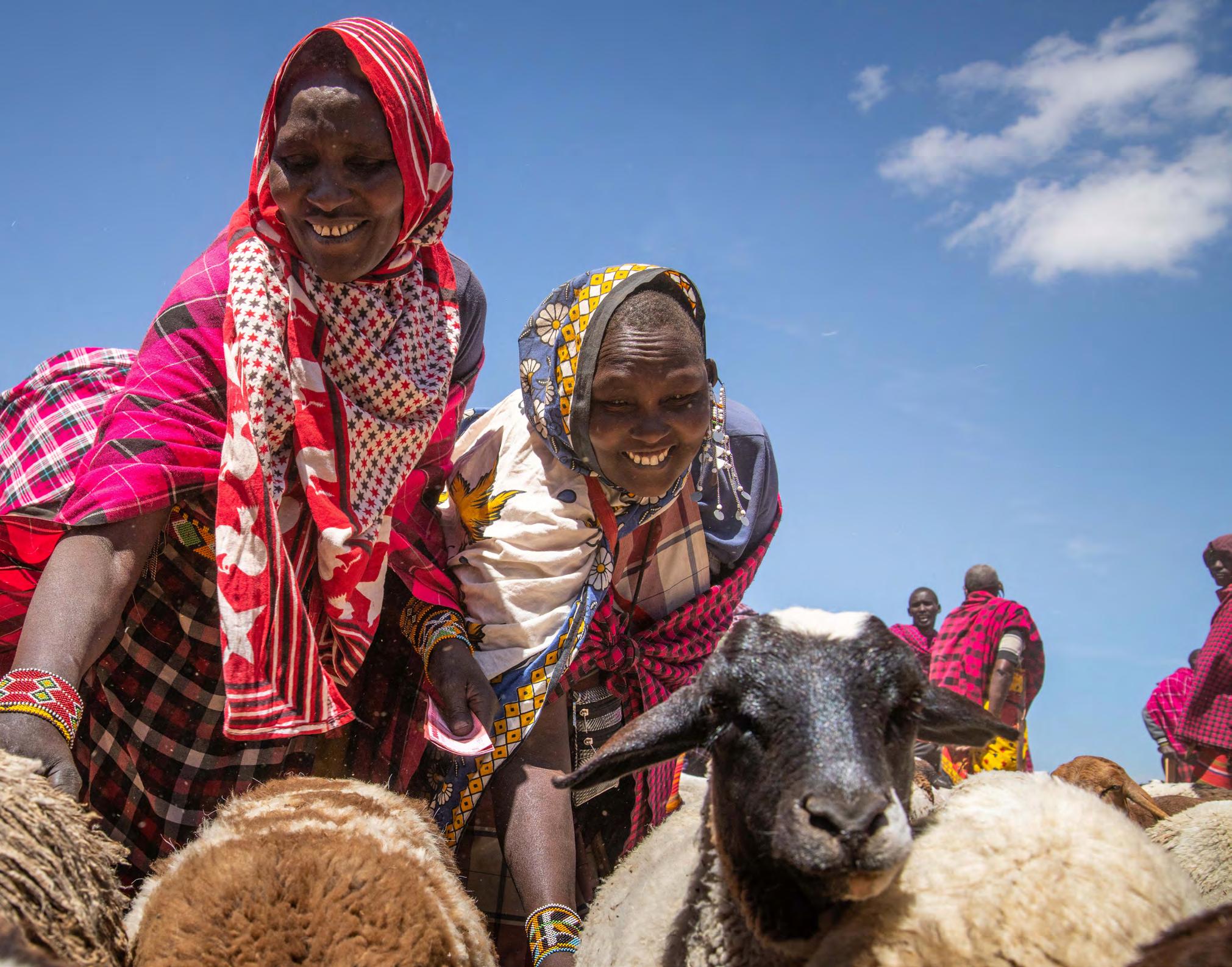


After losing her husband, Manyara Karia found herself solely responsible for her family, relying on a few cattle and occasional support from relatives. Faced with hardship, she chose not to retreat but to act. She began attending community meetings, becoming a strong advocate for girls’ education, women’s rights, and economic empowerment.
Manyara encouraged women to form Village Community Banks (VICOBAs), creating spaces where they could support one another and achieve financial independence. Through VICOBA, women in her community have gained confidence, financial literacy, and the ability to provide for their families. Manyara’s leadership empowers others to recognize their own potential. “When women work together, they can achieve incredible things,” she says.
Balancing her roles as a mother, caregiver, and advocate, Manyara dedicates herself to amplifying the voices of pastoralist women in the Maasai community, where representation is often limited. She leads by example, ensuring that women’s rights are not only recognized but protected. She inspires women to embrace their potential—both within their homes and in the wider community.
Manyara is especially passionate about girls’ rights, recalling a time when young girls were forced out of their families and denied opportunities. Now, she sees progress,
with more parents recognizing the importance of education for their daughters. She has also supported women in becoming financially independent through training programs, helping to strengthen families and instill the confidence to stand up for their rights.
“My hope is to see families where men and women make decisions together, fostering solidarity within the home,” she says. Manyara’s dedication to standing up for others defines her leadership. “I am committed to ensuring that no one’s rights are violated. Anyone who knows me understands that I stand firmly for people’s rights,” she says with pride. Manyara’s story is one of transformation— not just her own, but that of the women she continues to inspire every day.
Always remember where you come from and give back to your community. When you succeed, never forget to support those in need. “
I honor Maasai traditions and respect our elders while balancing my advocacy with cultural values. I believe empowering women strengthens our community without compromising our identity. “
After the death of her husband, Maria Kipoon was left to care for their children with only a small number of cattle to her name. The situation worsened when her in-laws took everything, leaving her with no means to support her family. There were moments when Maria had to rely on the kindness of others for essentials, including clothes for her children. Seeking a fresh start, Maria made her way to Makuyuni village and turned to the village council for help. Their support provided her with a place to live and a foundation to rebuild her life.
“In the Maasai community, women’s voices are often unheard, and they lack representation. When my husband died, my in-laws sold our cattle, leaving me with nothing. That experience gave me the strength to fight for the rights of women facing similar injustices and violence.” With support from the Pastoral Women’s Council (PWC), Maria joined a Village Community Bank (VICOBA), where she began saving, taking small loans, and gradually rebuilding her financial independence.
With the help of her daughter-in-law, they joined additional groups and worked together to purchase a motorcycle, which now provides a steady income for the family.
The seminars and training sessions from PWC not only gave them practical skills but also opened their eyes to new opportunities, transforming Maria’s outlook and equipping her with the tools to build a better future.
Maria is a dedicated advocate for girls’ education, ensuring that her own daughters, who are in fourth and sixth grade, have the opportunity to learn. She actively participates in savings groups that empower women economically, using the benefits to support her children’s education and strengthen her family’s financial stability. Committed to creating lasting change, Maria encourages women to join support groups, prioritize girls’ education, and foster unity within their families.

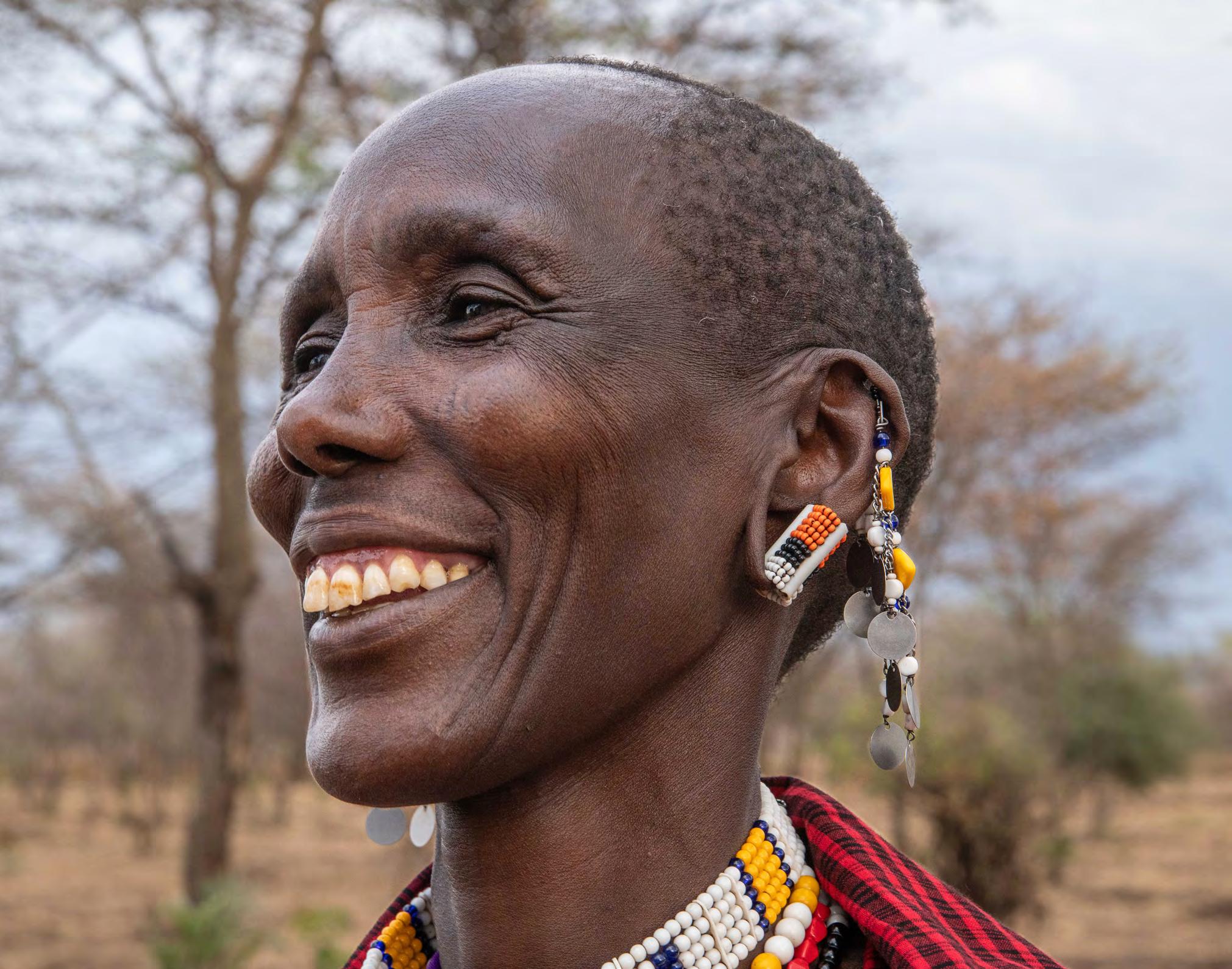
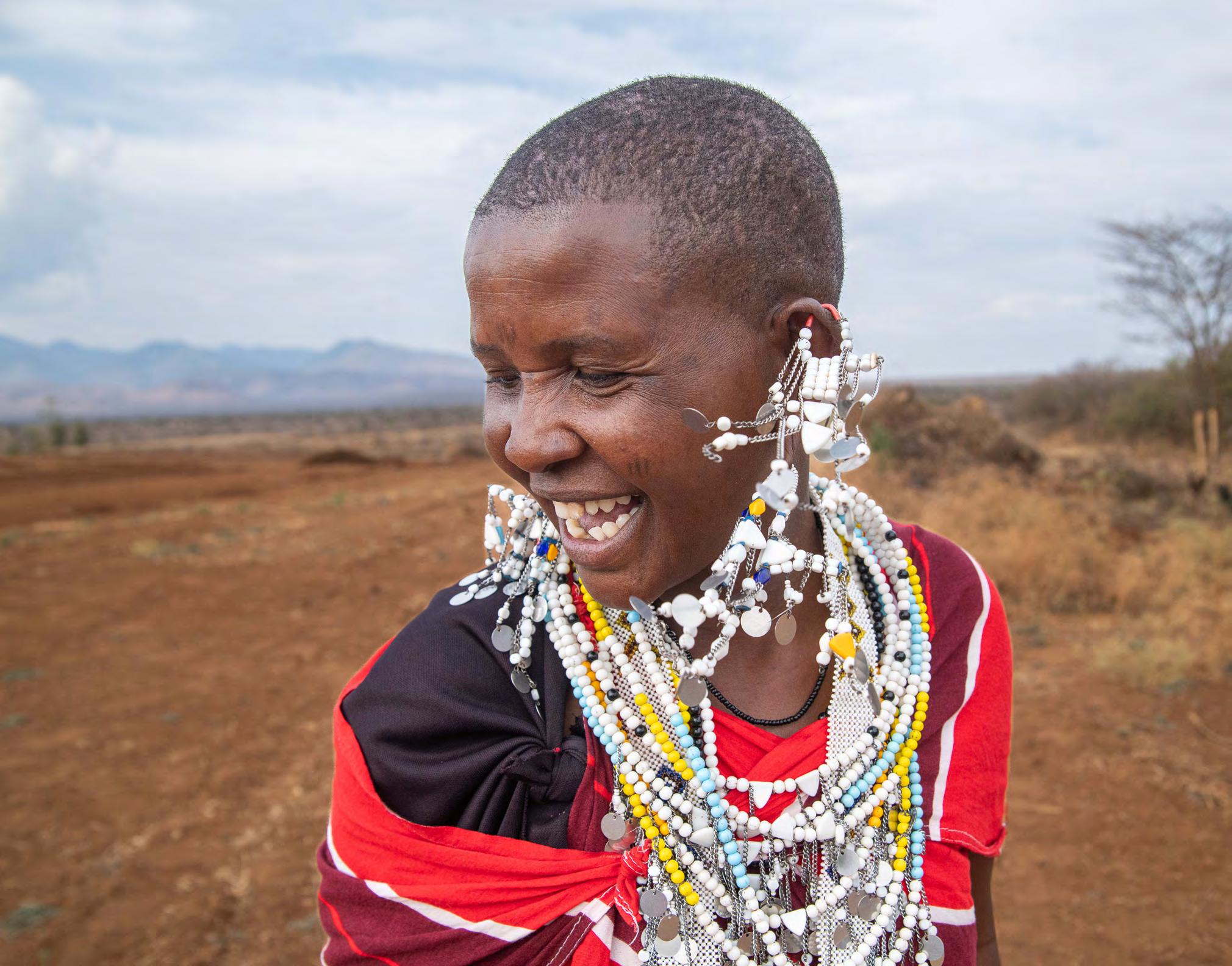

“Inspired by my own journey, I have encouraged many other women to join VICOBA groups and start small businesses. It is fulfilling to know that my success has motivated others. Now, many of us sell crafts and beads and even collaborate on market days. My efforts have sparked a chain reaction, and more women are viewing business as a path to financial independence.”
In 2022, Mbalelo Ngaay took a bold step to support her six children after her divorce by joining a Village Community Bank (VICOBA) group. This decision was transformative, allowing her to start saving and access loans to grow her own business.
Mbalelo is the sole provider for her family—both financially and emotionally—a responsibility she does not take lightly. “Living as a single mother has not been without its hardships. However, my dedication to seeing my children grow up healthy and happy keeps me motivated every day.”
As an artist, Mbalelo sells handmade Maasai beaded bracelets as well as food crops like maize and beans, allowing her to balance culture and tradition with progress and independence.
My efforts have sparked a chain reaction, and more women are viewing business as a path to financial independence. “
120 kilometers from the Ngorongoro Crater—the largest intact volcanic caldera in the world—lies the village of Kirtalo. Here, Nairoshi Paulo Ngoitiko’s life began on a path that seemed predetermined. At just fourteen, her family arranged for her to marry a much older man, with the dowry paid and preparations underway. But fate took a different turn. Through the intervention of PWC, Nairoshi was rescued from early marriage and enrolled in school. She completed her secondary education and earned a business certificate. “That rescue was the turning point of my life,” she recalls. “Without PWC, I wouldn’t have gone to school, become a leader, or had the chance to fight for other girls like me.”
Now 36 and a mother of five, Nairoshi has transformed into a powerful advocate for women and girls in the Maasai community. As a women’s representative councillor, her mission is to challenge cultural norms and fight for gender equity. Her leadership journey began in 2016 when she participated in PWC’s training programs. These sessions, focusing on leadership and entrepreneurship, gave her the confidence to mobilize women in her community. She successfully established Village Community Bank (VICOBA) groups across five villages, empowering women to save money, access loans, and start businesses.
But her impact goes far beyond economics. Nairoshi has rescued countless girls at risk of early marriage, connecting them to education opportunities through PWC and the Ngorongoro District Council. She has also championed the rights of married women and widows, advocating for their access to property and resources—a fight against profoundly ingrained cultural practices.
Her journey has not been without challenges. As one of the first women in her community to step into leadership, she faced resistance and skepticism. Yet, her unwavering determination paid off. She earned respect and trust by organizing women, promoting education, and securing second place in the election for a women’s representative seat in Loliondo Division—competing against 36 aspirants.
“Seeing women and girls take control of their lives and step into leadership roles motivates me,” she says.
Today, Nairoshi is a symbol of hope and change in her community. Shaped by her escape from early marriage and rise to leadership, her story inspires others to challenge societal norms and strive for a better future. “The moment I was rescued was the most pivotal part of my life,” she reflects. “It gave me the chance to become the person I am today—a leader, a fighter for women’s rights, and a voice for change.”

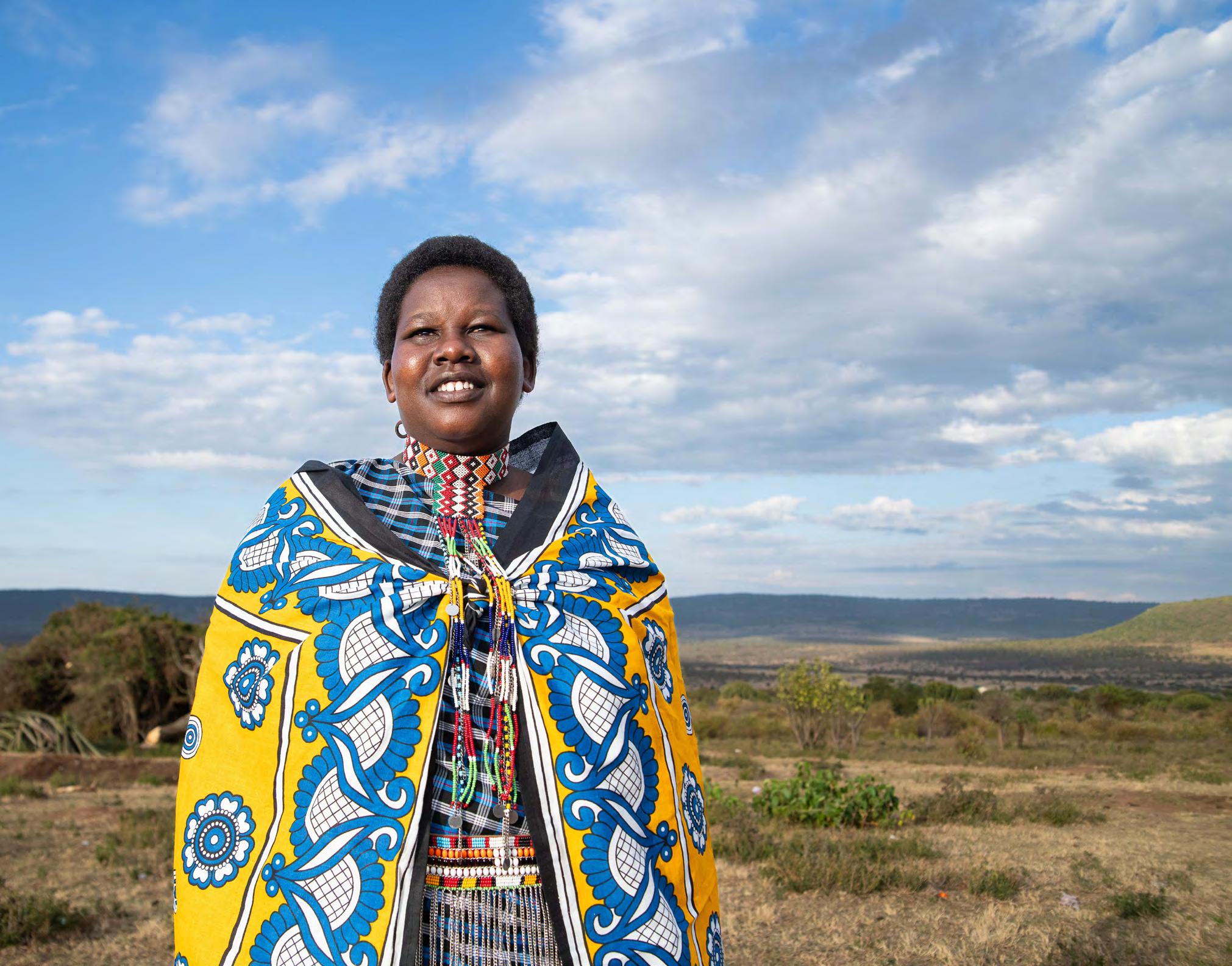
Seeing women and girls taking control of their lives and stepping into leadership roles motivates me. “
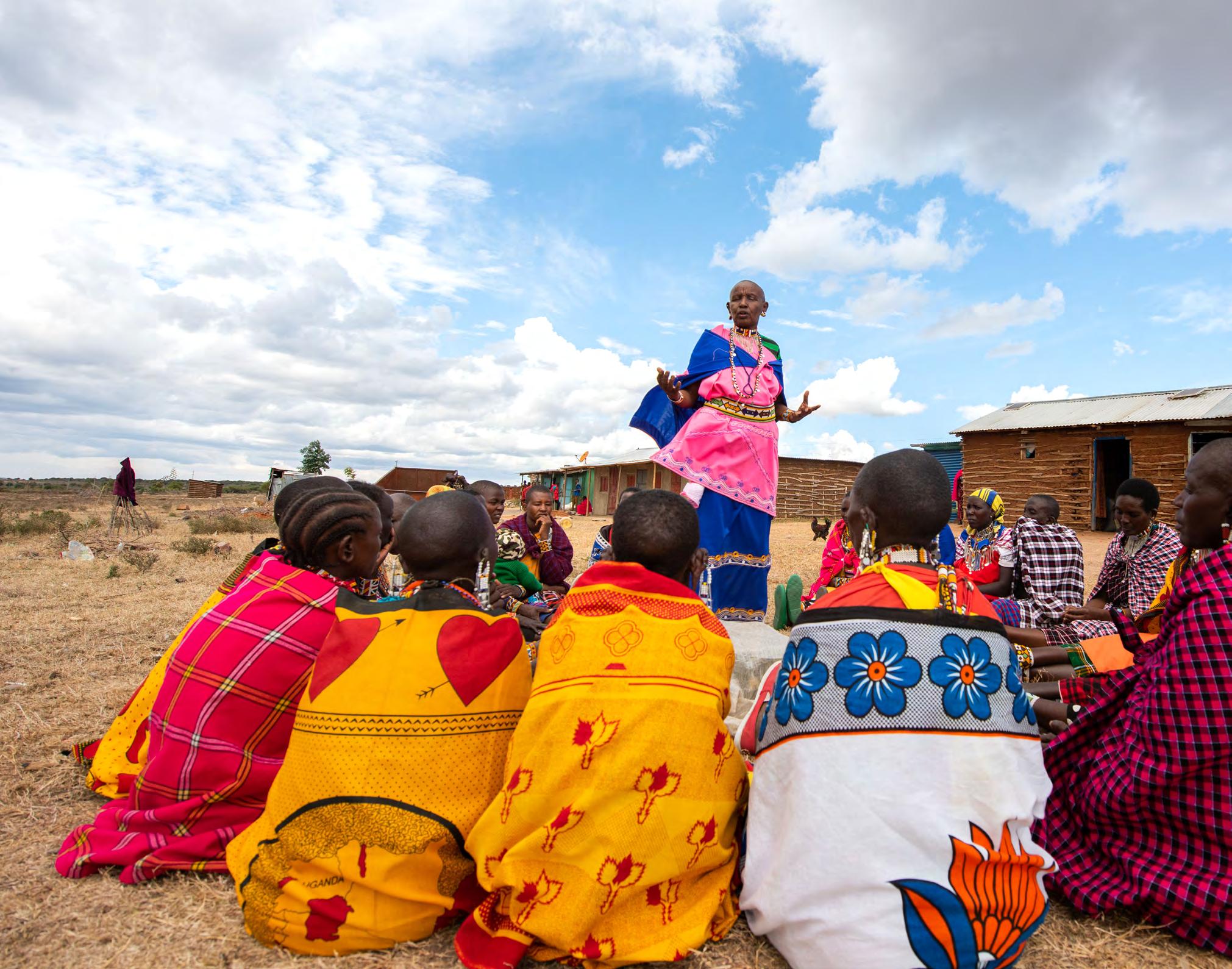


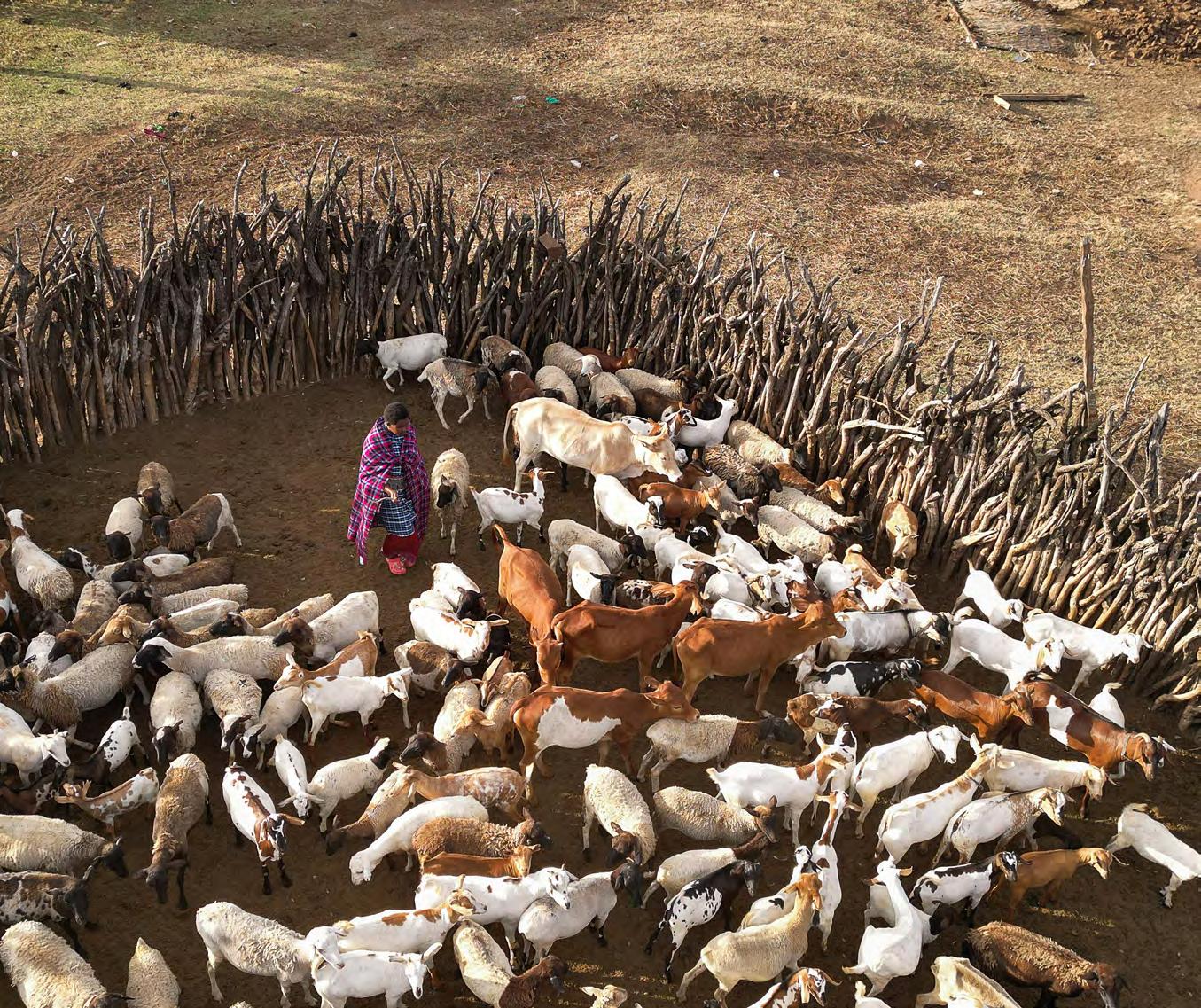

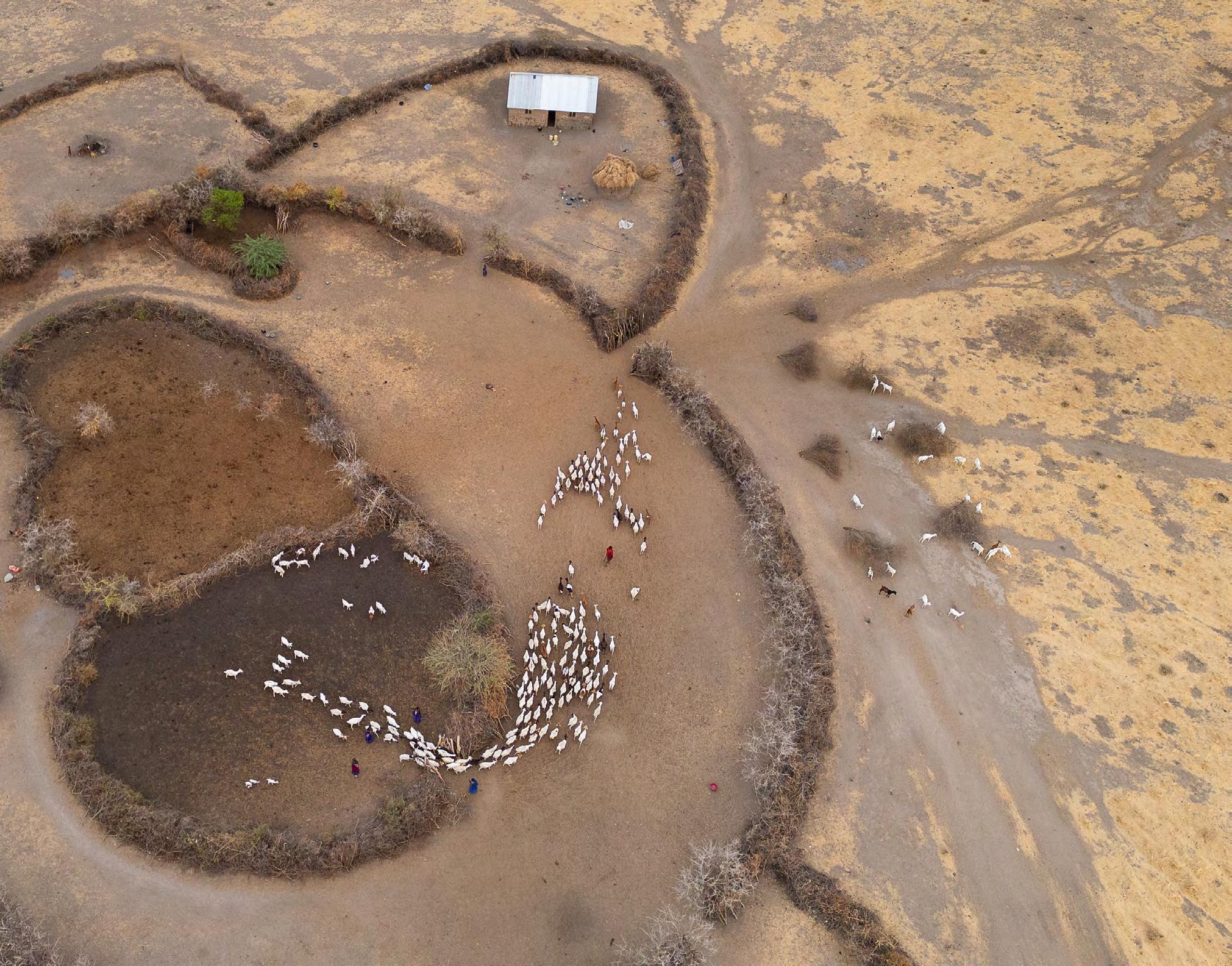



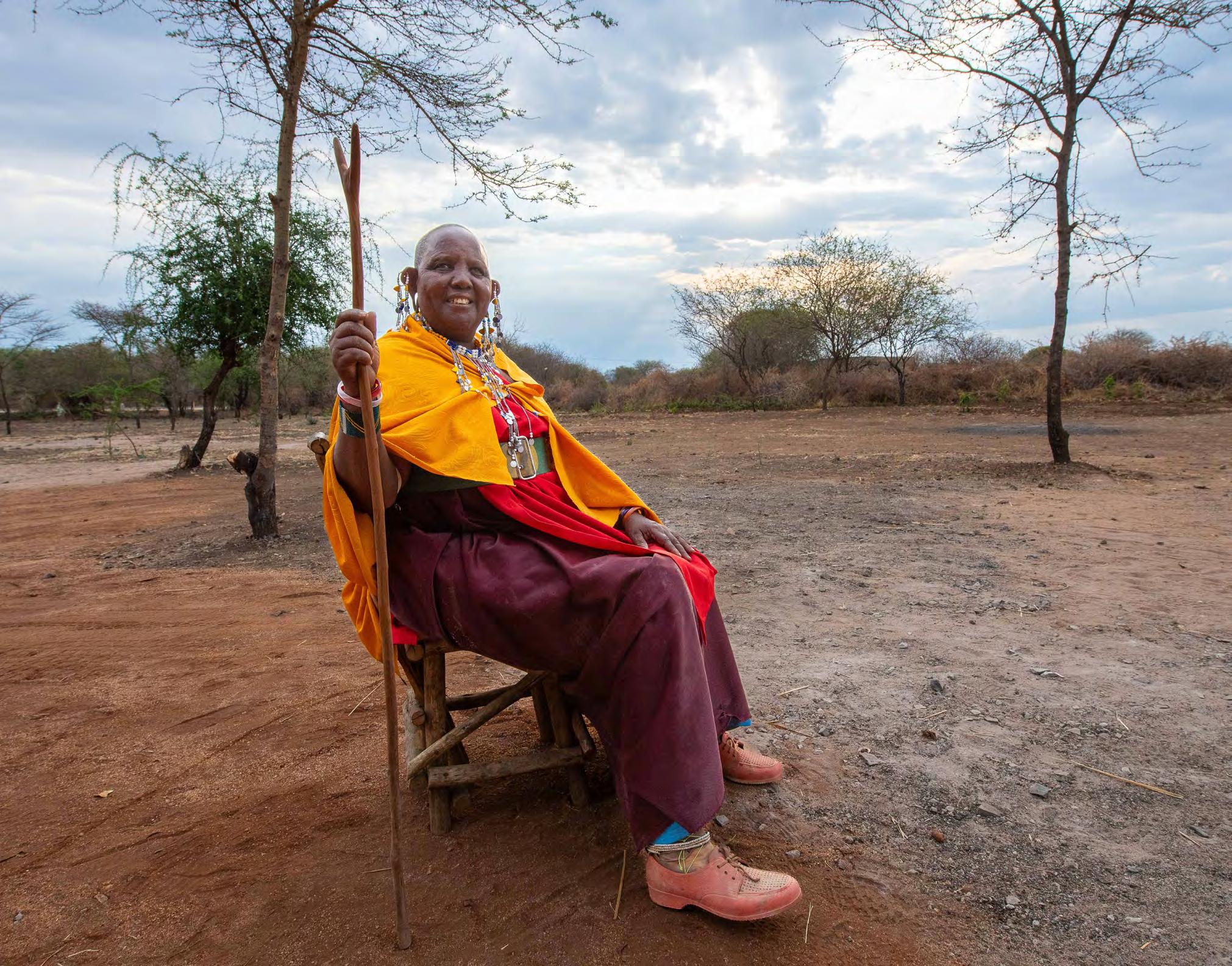

Bordering the arid landscape of Lake Natron lies the heart of northern Maasai communities. In the shadow of Ol Doniyo Lengai (the Mountain of God), Naitajewoki Kashu’s day begins like many of her neighbors’—tending livestock, fetching water, and preparing meals for her nine children. But beyond these daily routines, she steps into a role that sets her apart: Chairperson of the Women’s Rights and Leadership Forum. Through this role, she has become a powerful advocate for education, economic independence, and women’s rights, working tirelessly to mobilize her community.
“I organize community fundraisers that directly benefit women and girls,” she explains. From covering school fees for girls to assisting widows and older women, we’re building a network of support to create better lives for ourselves and our families.”
In 2022, Naitajewoki began receiving small loans through Engishon, a financial initiative that distributes loans to groups and individuals from the pastoral community. With these funds, she launched a small business that allowed her to overcome significant challenges, including affording medical care for a leg injury and covering her children’s school fees. For Naitajewoki, this support was a lifeline, transforming her life and inspiring her to help others find financial stability.
“Financial support has been a lifeline, helping me become more self-reliant and resilient. Before Engishon’s assistance, I faced severe hardships—not only struggling to provide for my school-going children but also to afford basic medical treatment. Today, with Engishon’s support, I’ve managed to overcome some of these challenges and work towards a more secure future for my family.”
Naitajewoki draws strength from the unity she cultivates within her community—through Village Community Bank (VICOBA) groups and the shared cultural traditions that bring them together. She is driven by the hope that their collective efforts will build a brighter future for their children. Her vision is clear: to see young girls in her community embrace education, honor their culture, and support one another with courage and pride.
I organize community fundraisers that directly benefit women and girls.
In the heart of her community, Nambori Olenabaka embodies this call to action.Nambori has been a steadfast advocate for women’s rights and empowerment with a decade of service as the Chairwoman of the Ward Council and another ten years as a member of the village government.
Her influence as a traditional leader, or Engaganani, has been instrumental in pushing for greater representation of women in decision-making spaces.
Now campaigning for the position of Village Chairwoman, Nambori is determined to amplify women’s voices further. Her goal is to increase the number of reserved seats for women in the village government from seven to at least fifteen. “Only by elevating women into leadership roles can we address the challenges they face and lay the groundwork for lasting progress.”
After the loss of her husband, she bore the full responsibility of supporting her household while finding ways to empower other women in similar circumstances. Guided by her faith and fueled by her resilience, she has continually overcome challenges that once seemed insurmountable.
The skills she gained through PWC’s training on women’s rights have been pivotal. After her husband’s passing, Nambori used her knowledge to secure a plot of land—no small feat in a society where women face significant barriers to property ownership. Her advocacy didn’t stop there. When a widow in her community lost her farm to land confiscation, Nambori stepped in, leveraging her understanding of legal rights to help the widow reclaim her land.
Looking to the future, Nambori envisions a community transformed by female leadership. Over the next decade, she plans to train women to understand and assert their rights, safeguard local land ownership, and champion the eradication of harmful practices like female genital mutilation (FGM)—a tradition that continues to affect many Maasai women.
As she works to inspire a new generation of women leaders, she remains steadfast in her mission: creating a future where women are involved in leadership at every level of government and society.
Women and girls must step forward into leadership roles to address women’s rights issues themselves. “


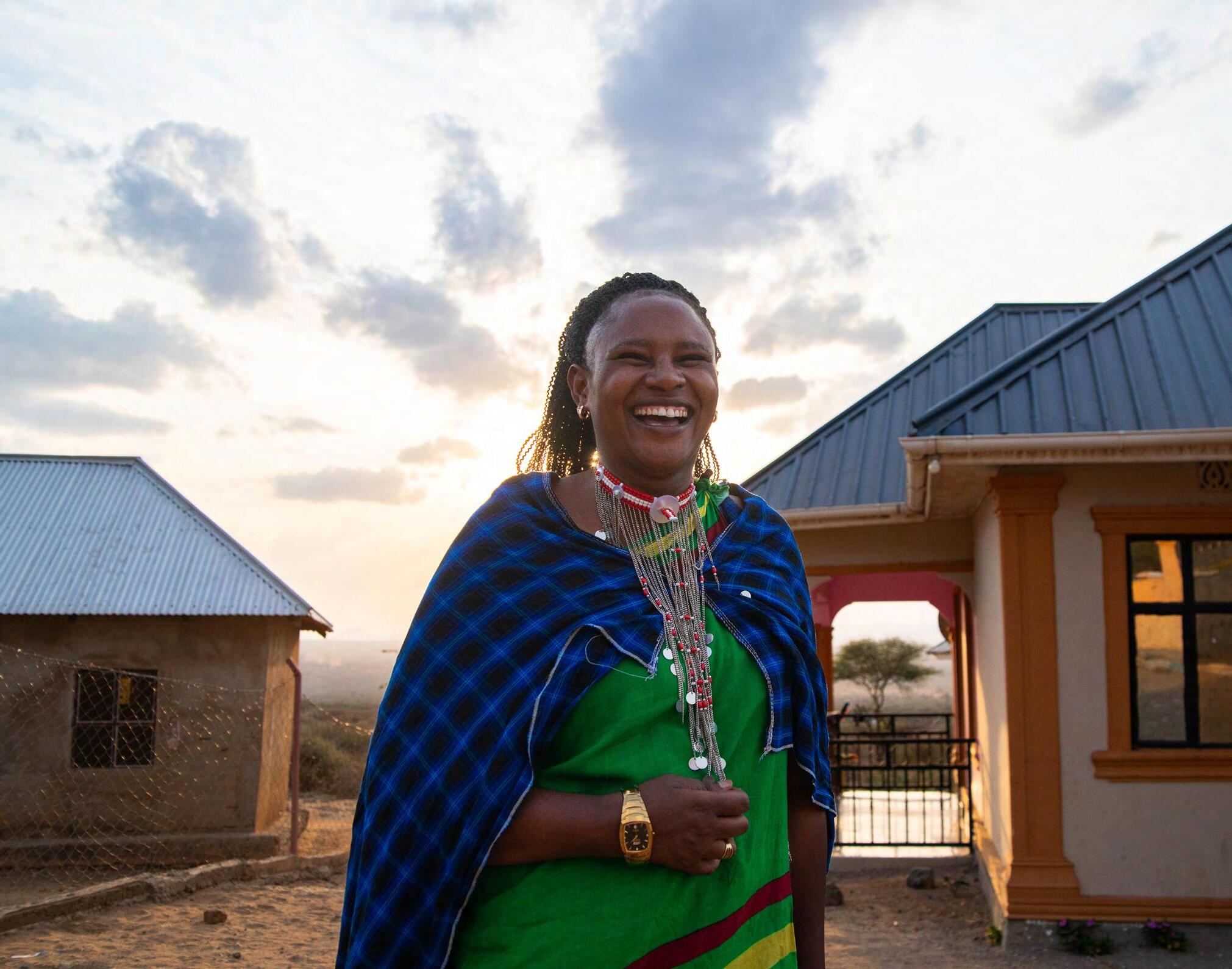
If a woman can lead a family, why not a community? “

Namnyak is a passionate leader dedicated to empowering women and girls in her community through education and advocacy. Her mission focuses on two pressing issues: personal hygiene education and combating the long-term harm caused by female genital mutilation (FGM). Over the past three years, she has tirelessly championed these causes, beginning with educational programs in local schools.
Namnyak’s school initiatives include distributing soap and sanitary pads, training girls on their proper use, and emphasizing the importance of cleanliness. Through these sessions, she discovered a heartbreaking reality: many girls in her community lack access to basic hygiene products. Determined to help, she began seeking ways to provide ongoing support to those in need.
Beyond the classroom, Namnyak has boldly confronted harmful cultural practices head-on. She has reported cases of FGM, inspiring others in her community to follow suit. Recognizing the dangers of early marriages, she has engaged traditional leaders in dialogue, urging them to take action to end the practice. She highlights how these marriages often leave young girls widowed and vulnerable, leading to lifelong struggles, including substance abuse.
To ensure lasting change, Namnyak organizes workshops during school holidays, continuing to educate girls and raise awareness within the broader community. Her efforts are building a more informed and equitable future for women and girls.
Namnyak’s determination stems from her own struggles. After finishing seventh grade, her brothers tried to force her into marriage, resorting to violence when she refused. They demanded her obedience, but Namnyak prayed for strength. Defiant, she excelled in school and was accepted to Maasai Girls Secondary School without any support from her family. They tried again to marry her off, but she stood firm, completing her education under hardship. Today, she not only supports herself but also her family, and her brothers—once her greatest challengers—now take pride in her achievements.
What drives Namnyak is the deep pain she feels when witnessing the struggles of young girls in her community. Seeing a pregnant 14-year-old at the hospital reminds her of her own child, motivating her to protect and guide these girls as if they were her own.
Namnyak dreams of freeing women and girls from the restrictive ‘cage’ of societal norms. She envisions a future where women fully understand the dangers of FGM, recognize their potential, and embrace their ability to lead. “If a woman can lead a family,” she says, “why not a community?” Her work is dedicated to breaking these barriers and empowering women to build better futures for themselves and their communities.
In the heart of Selela, Monduli, Napiri Engidongi Mukare has emerged as a leader and changemaker, balancing her roles as a pastoralist, mother of five, and advocate for women’s rights. With a deep commitment to her community, Napiri serves as a councillor (a district representative) and as the chairwoman of the Pastoral Women’s Council (PWC) board. Through these roles, she empowers women, promotes education, and challenges harmful traditions that hold back advancement.
Over the past year, Napiri identified 15 children who were not in school and helped them enroll, providing them with the resources they needed to attend. “Education is the foundation for change,” she says. “Every child deserves the chance to learn.”
As a young woman, Napiri was married off to an older man she had not chosen. After her husband passed away, her brothers pressured her to remarry a man of their choosing. Napiri refused to be forced into a marriage she didn’t want. “That experience made me strong,” she reflects. “It shaped my determination to fight for women’s autonomy and rights.”
She recognizes that some deeply rooted traditions can harm women’s well-being. Her goal is to help her community embrace positive change while respecting their cultural heritage. “Harmful practices must be left behind,” she explains. “We need to build a future where women and girls can thrive.”
For Napiri, the most rewarding part of her journey is seeing children thriving in school, women standing up for their rights, and a community slowly transforming.
Finish your education, stand up for what is right, and bring change to your community. “

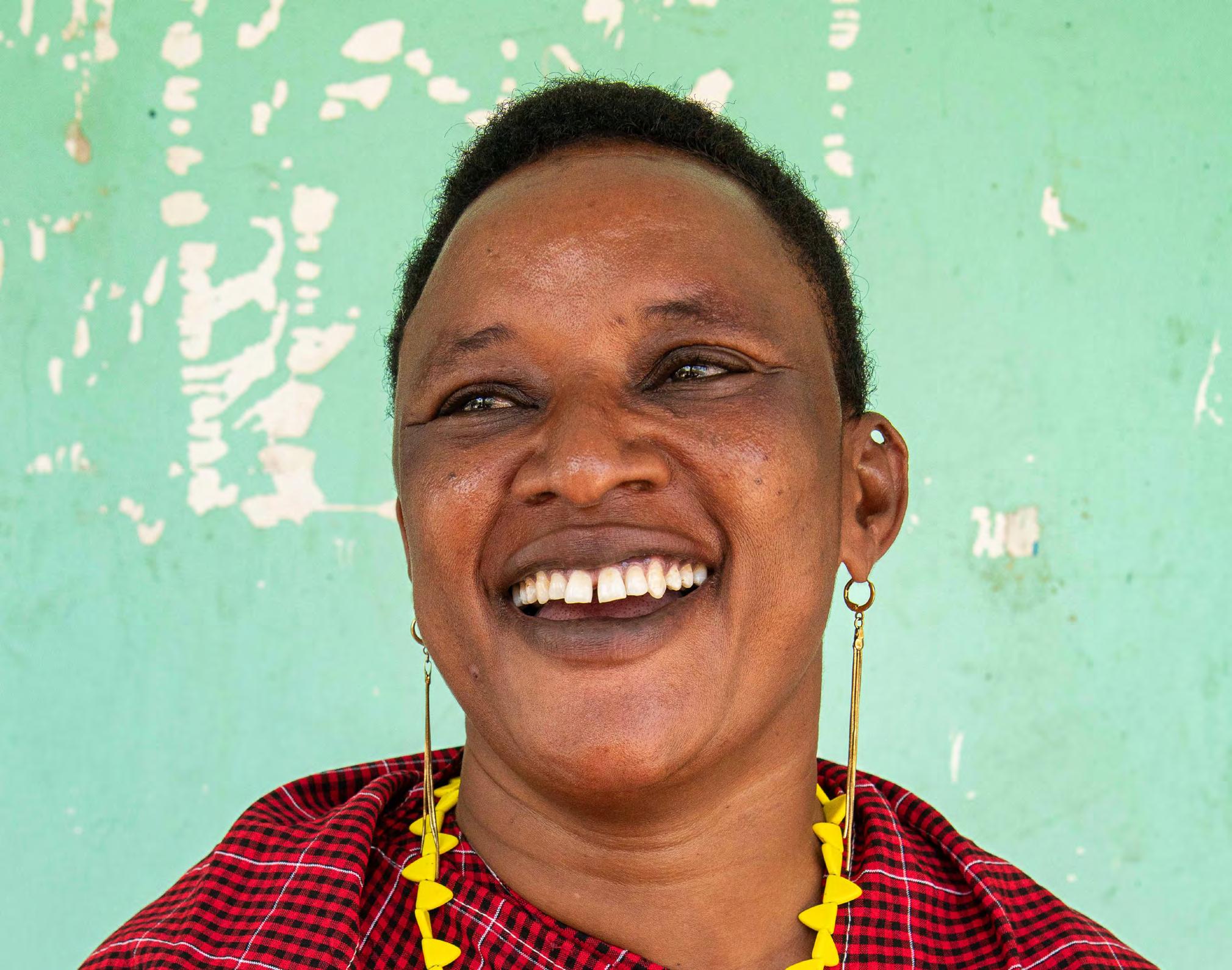
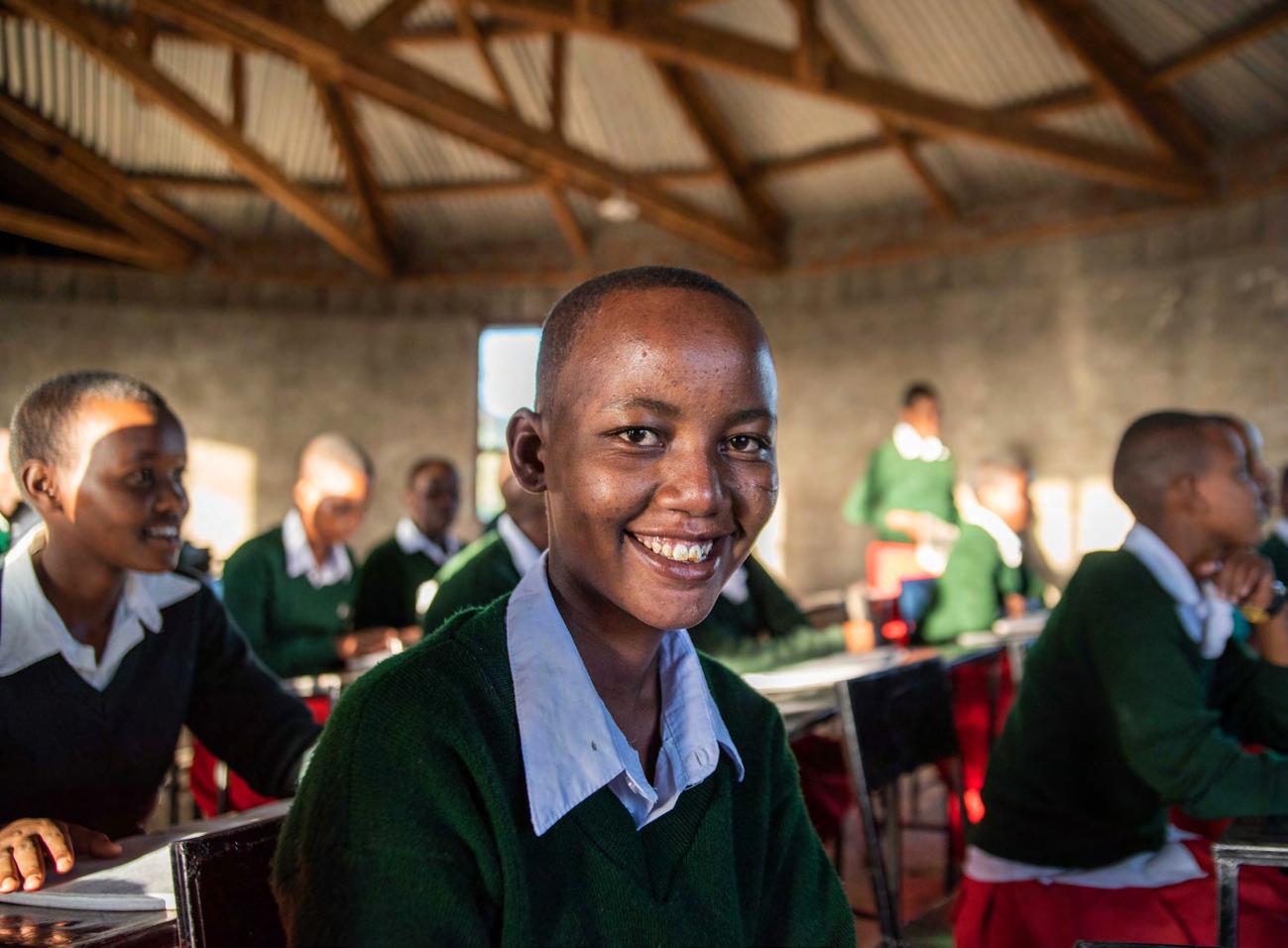
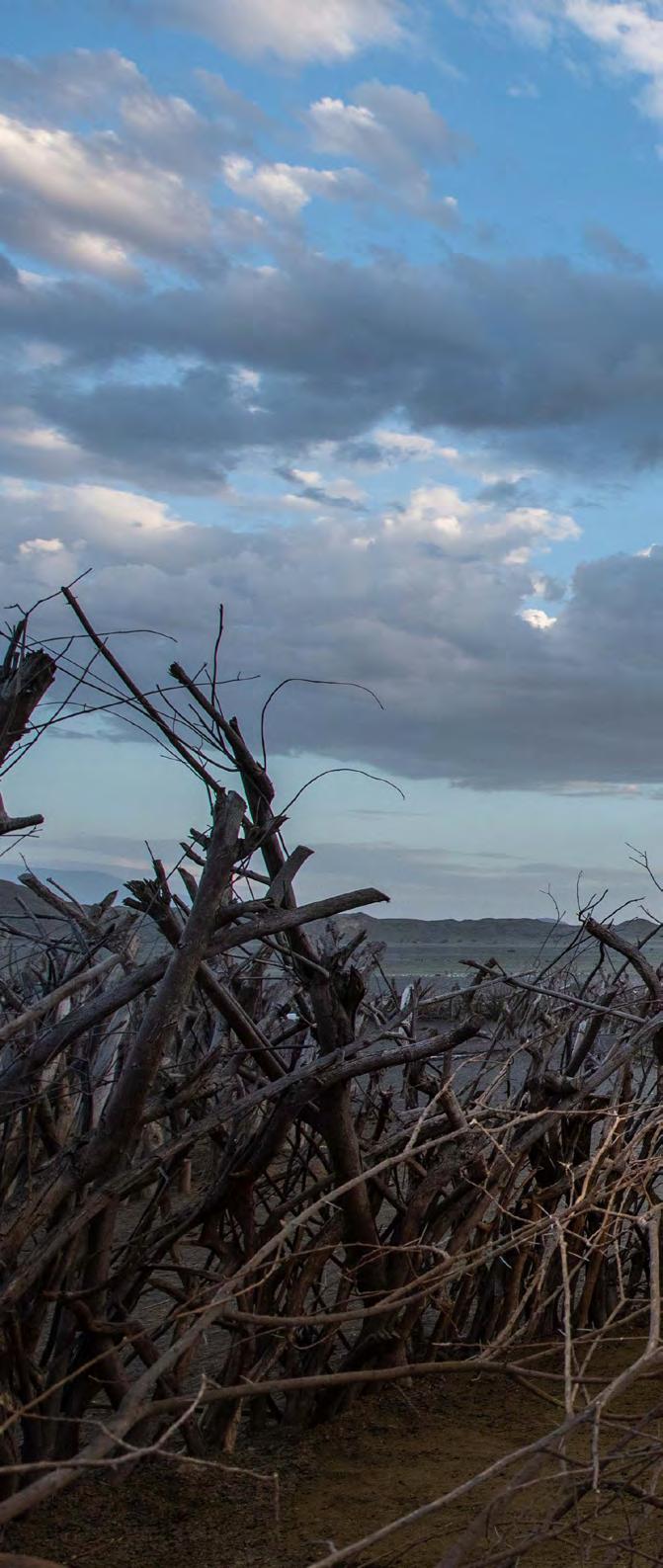
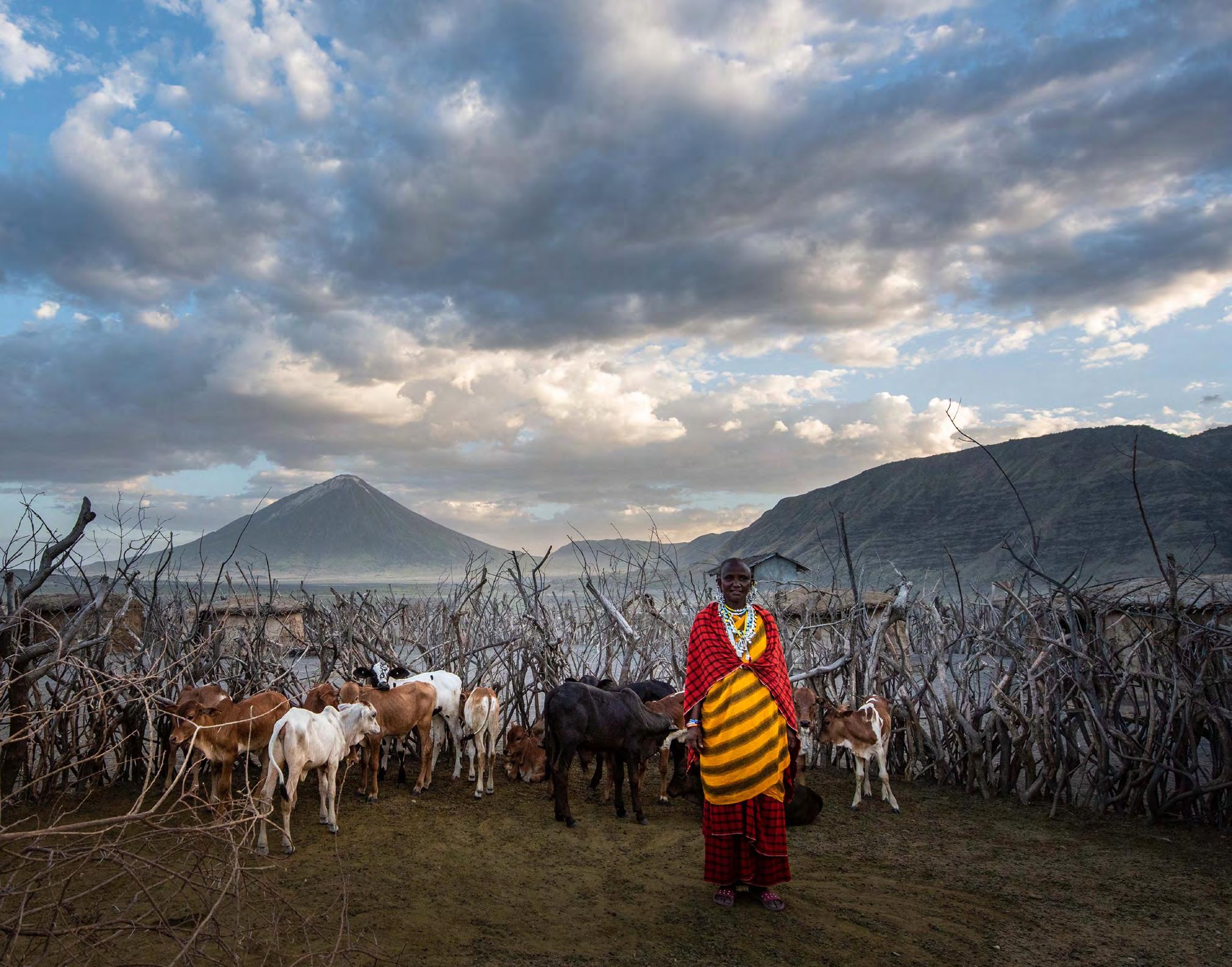
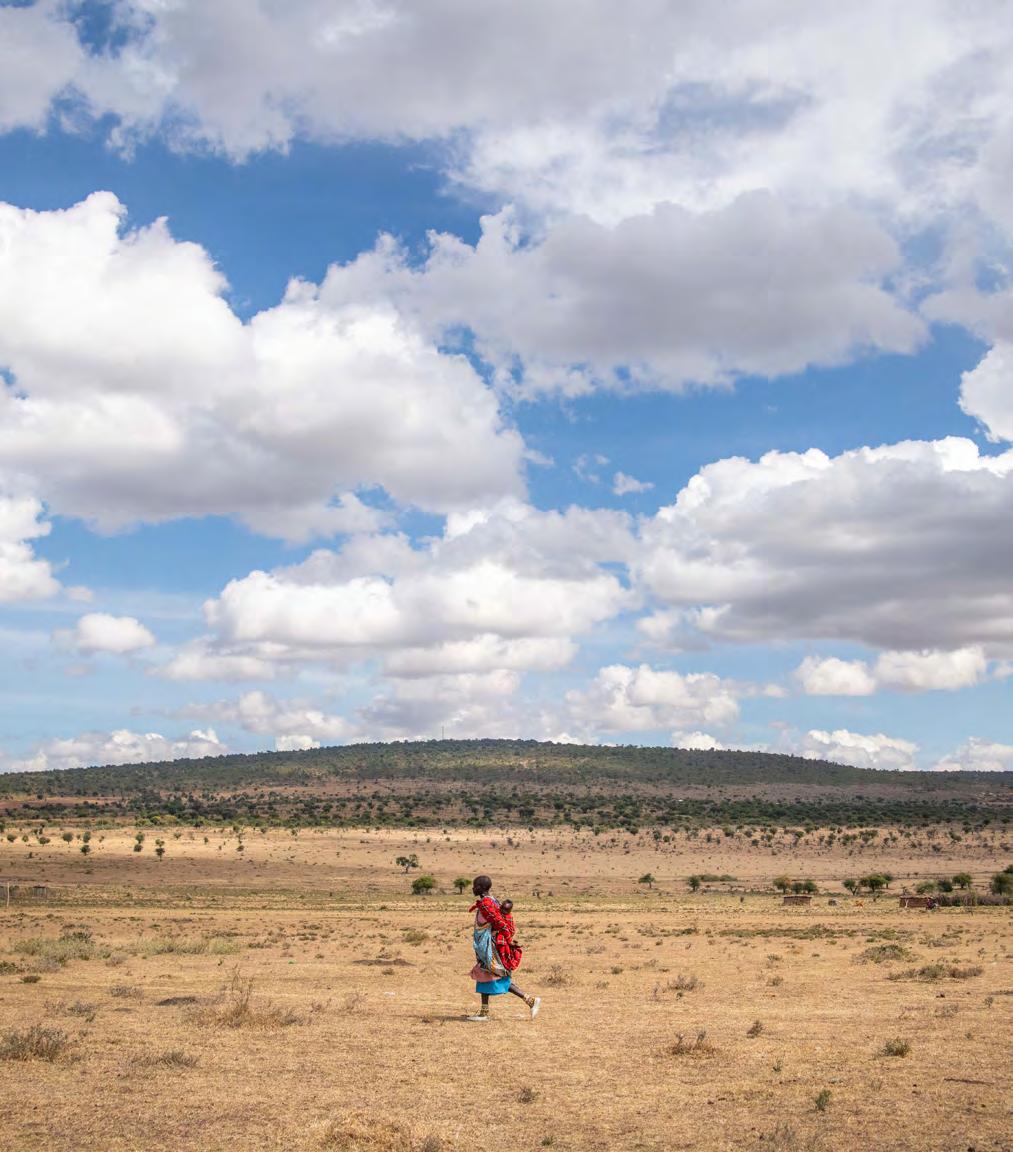
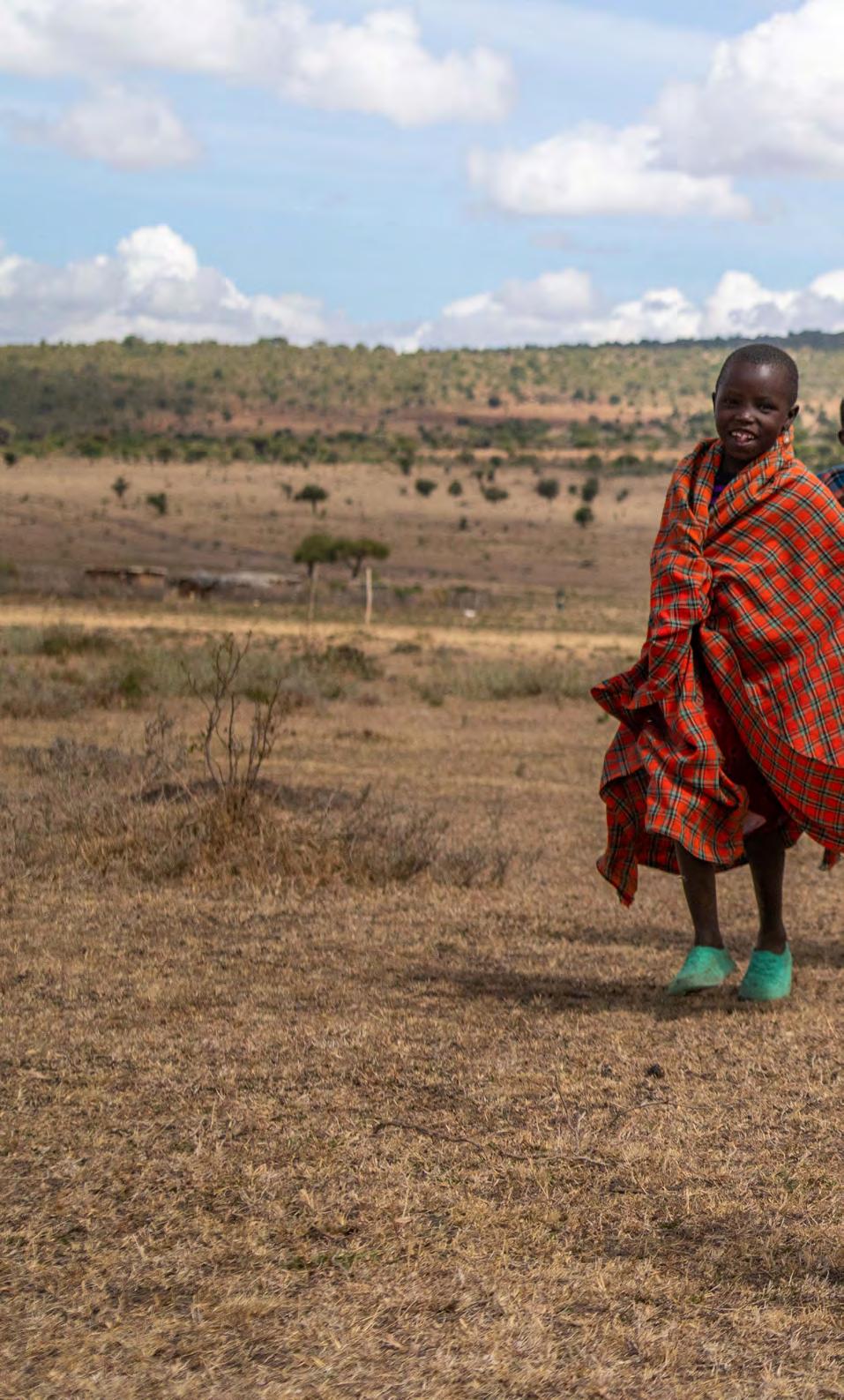
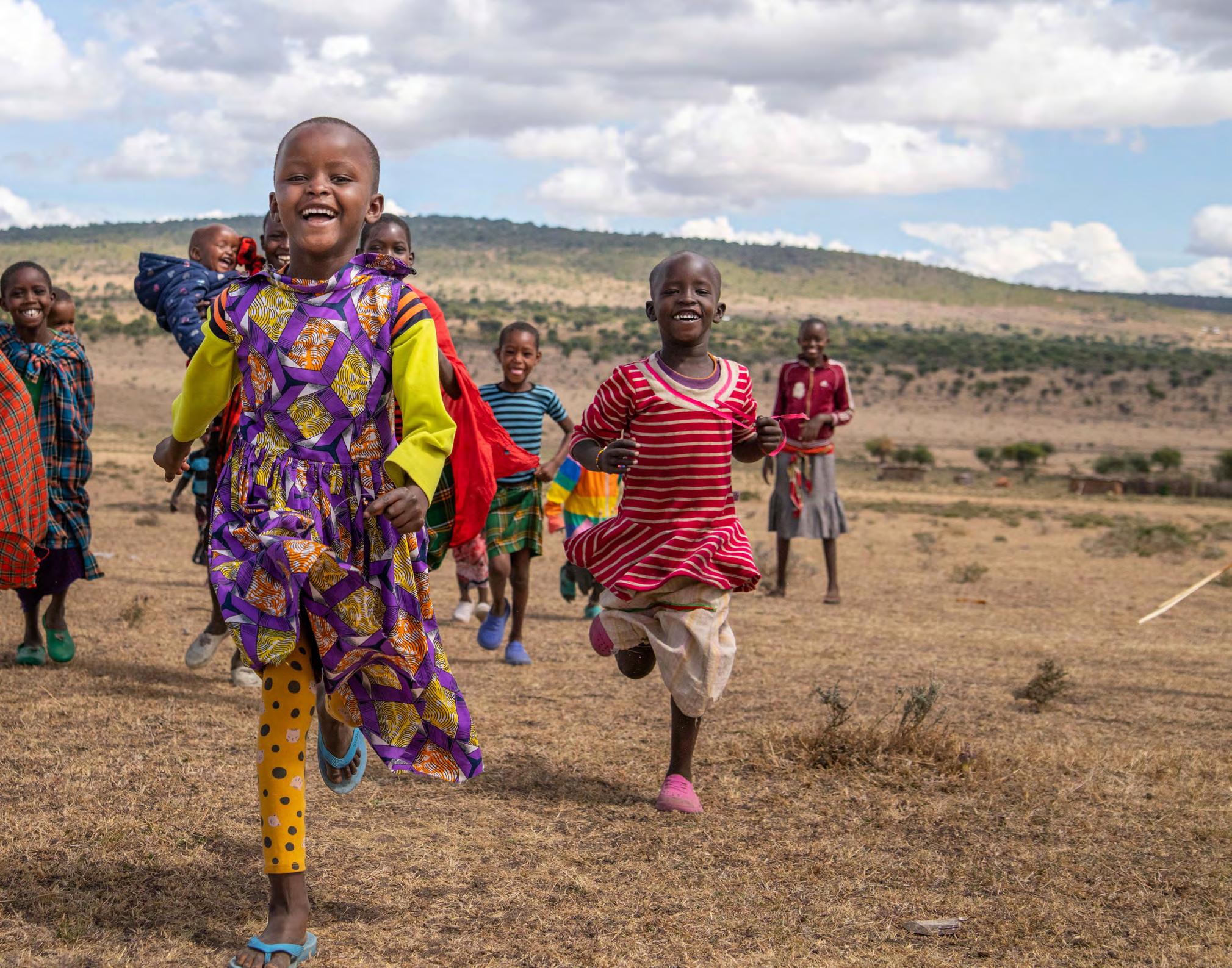

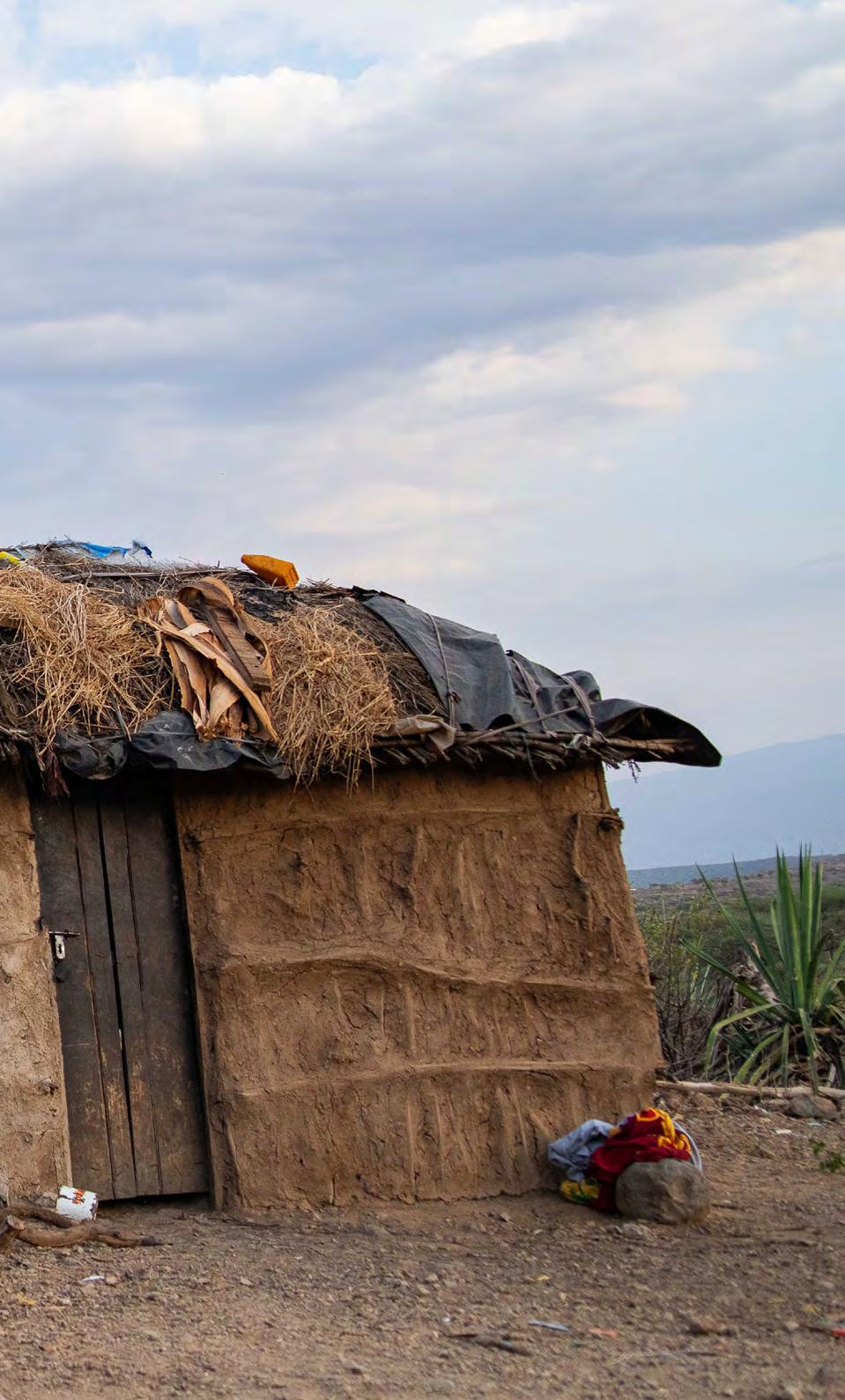
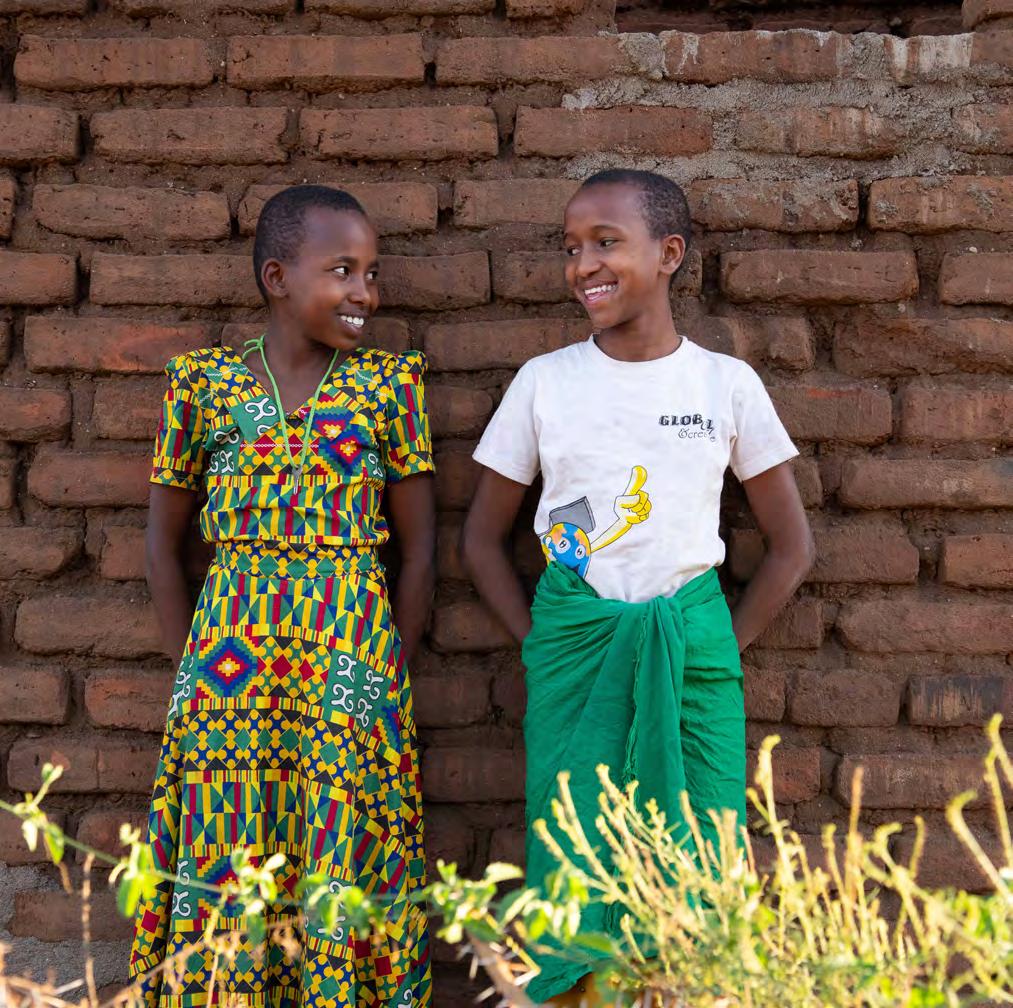
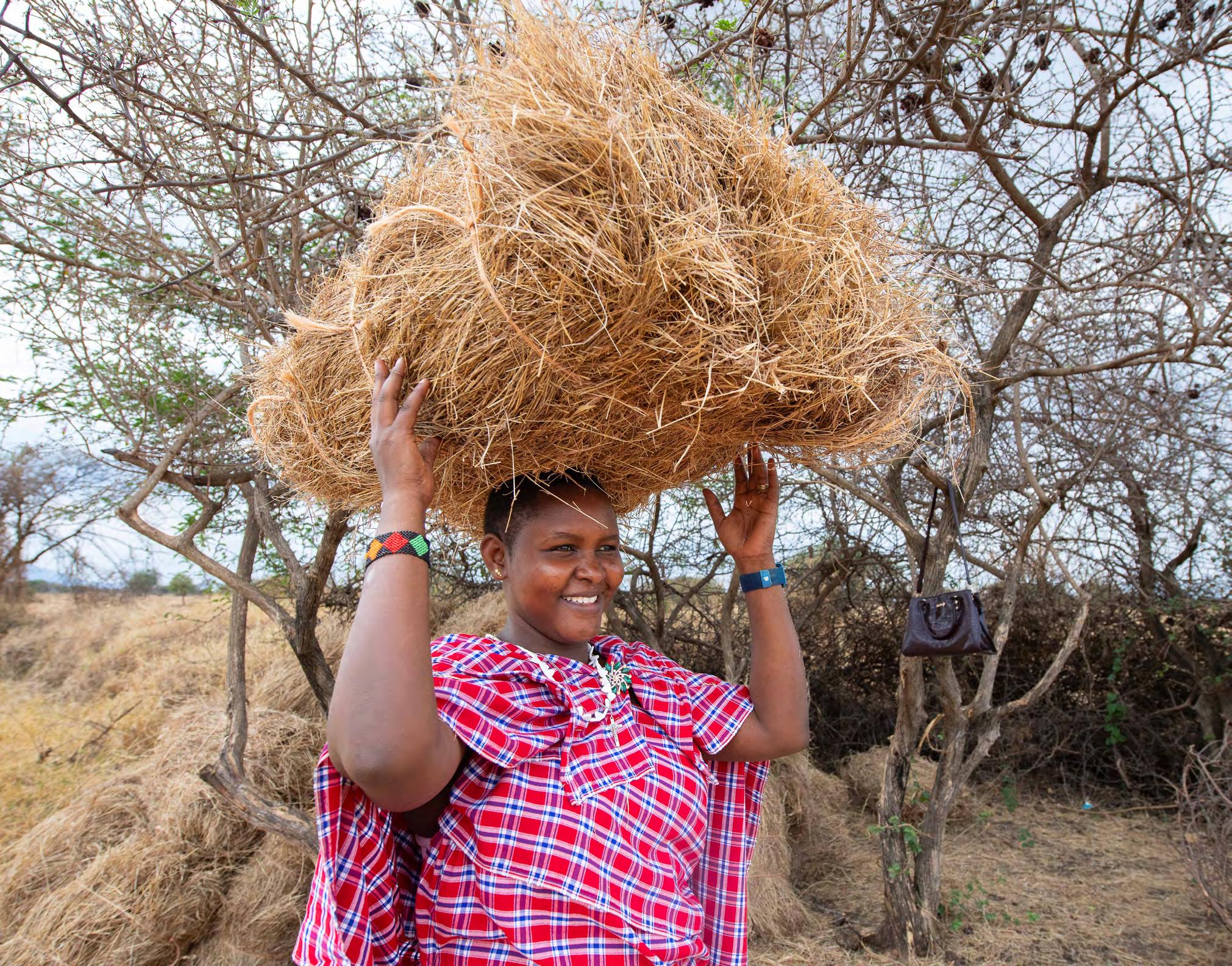

When Nengai’s husband was unable to buy their children clothing, she decided to take matters into her own hands and secretly sold milk and sugar to earn money. Her business became so successful that when she showed her husband how much she had saved, he was so proud that he built her a shop to expand her business.
Empowered by her success, Nengai started other business ventures, including training women on seed banks and grass cultivation. Grass is critical to Maasai culture as it provides essential grazing for livestock. By selling seeds, women can earn an income while also preventing overgrazing and protecting the land.
“I witnessed so many women go from staying at home to taking charge of their finances. They are now working, joining the Village Community Bank (VICOBA), and starting businesses—all without dependence on their husbands,” Nengai said.
After participating in PWC’s training on Village Community Banks (VICOBA), Nengai has been able to help other women start businesses and contribute to the economic health of their community.
When Nengai first introduced the seed bank, much of the community was against it. However, the women persisted and worked hard to make it a success. “Now everyone wants to join, which motivates me to persevere and ignore all of the negativity,” she said.
At just twenty-four years old, Nengai has become an entrepreneur and a leader in her community. Her advice to other women: “Aim to be respected within your community, but before that, value yourself and work towards positions of leadership.”
“
On an average day, before the sun rises, Noorkitoip begins her morning by preparing breakfast for her family and tending to her livestock. Once everyone is fed and her animals are cared for, she heads out to meet with women in her village, discussing land rights and ways to support one another. Afternoons often find her visiting neighbors or teaching women about their legal rights to land—a mission that drives her. As the day ends, she returns to her boma (a traditional Maasai homestead) to prepare dinner and reflect on what’s been accomplished, always holding hope for a better tomorrow.
As one of the few women on the Village Land Committee, Noorkitoip navigates a male-dominated system to advocate for women’s land rights. Women in her community often face barriers, such as cultural norms that prioritize men’s control over land. These challenges leave women with few resources and little influence over decisions affecting their families.
“I have helped ensure that land is shared fairly among our people and that women receive their rightful share,” she says. “It’s not just about land—it’s about giving women a voice and a way to build their future.”
Through her work with the Pastoral Women’s Council (PWC), Noorkitoip has raised awareness about women’s rights to land and natural resources. By encouraging women to share their stories and advocate for themselves, she has helped foster a sense of unity and resilience in her community.
This work is deeply personal for Noorkitoip. “I never had the chance to go to school, and it broke my heart,” she shares. Determined to break the cycle, she ensured that all six of her children received an education. “Their education is my legacy,” she says, her pride evident.
Looking ahead, she dreams of a future where Maasai women hold leadership roles, girls are empowered through education, and harmful practices like land discrimination are left behind. Her advice to young girls is simple yet powerful: “Embrace education, respect your traditions, and never give up. You can lead and create change.”
For Noorkitoip, the most rewarding moments come from seeing her children thrive in school and witnessing women in her community gain land ownership. “When I see these changes, I know our efforts are creating a legacy of strength and opportunity,” she says. Rooted in tradition yet perpetually pushing for progress, Noorkitoip remains a steadfast advocate for her community, proving that unity and determination can overcome even the greatest obstacles.
It’s not just about land—it’s about giving women a voice and a way to build their future. “

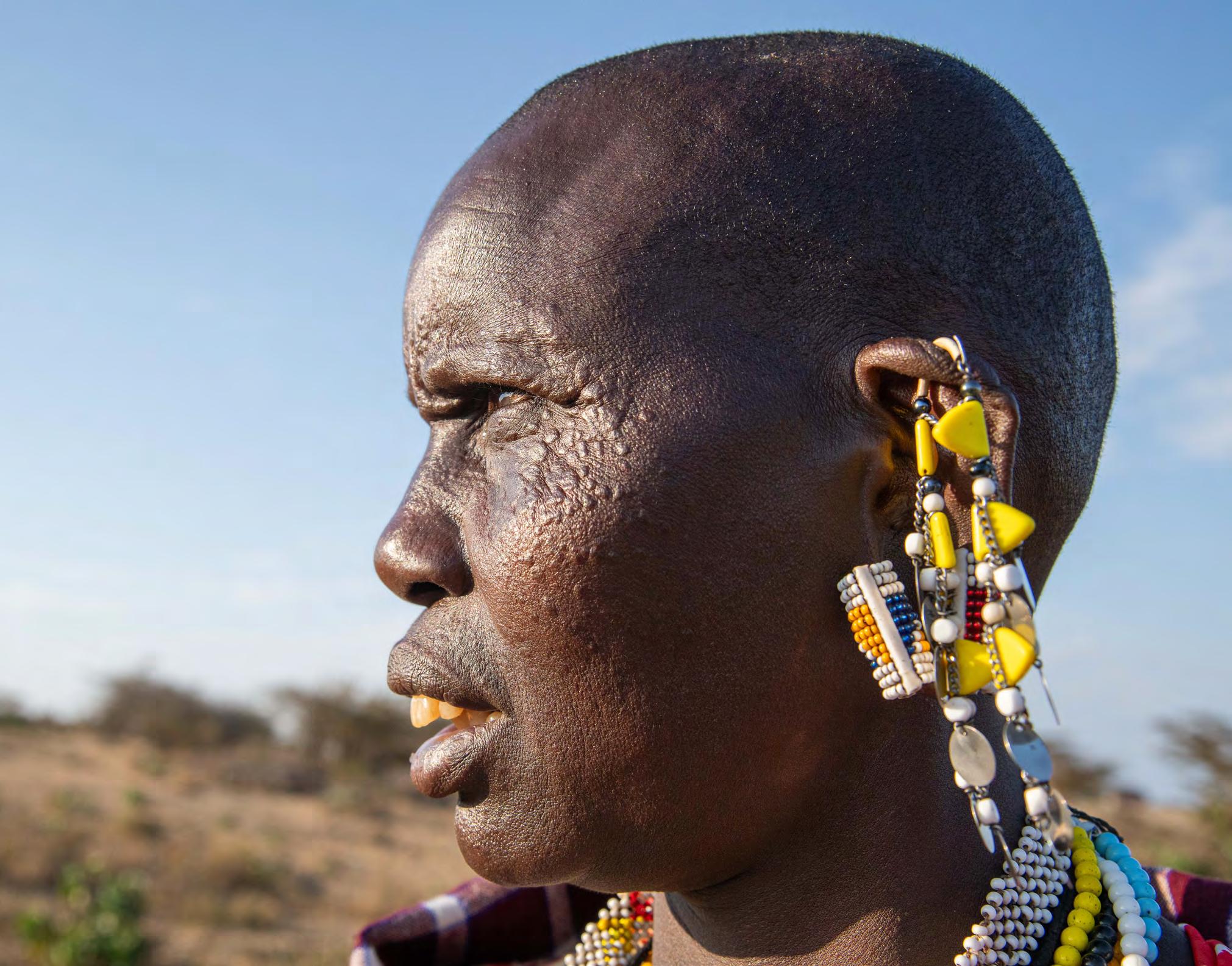


A nurse by profession and a leader by conviction, Rebeka Olteyetu dedicates her days to supporting Maasai women and girls in claiming their rights, gaining independence, and challenging harmful traditions. Rebeka’s journey into advocacy was born out of personal struggle. When her husband divorced her, leaving her in a vulnerable position, Rebeka faced immense societal stigma. In Maasai culture, women are often expected to depend on men for stability, and she was no exception. However, with the support of PWC, she found the strength to rebuild her life.
“The challenge I faced during that time became my biggest motivation,” she shares. “PWC showed me that every problem has a solution, and I want other women to see that too.”
Rebeka has been instrumental in driving change within her village through her leadership of the Losirwa Council. She has helped create opportunities for women to participate in decision-making and strengthened the Olosirwa Women’s Council with the support of the Pastoral Women’s Council (PWC). “When women unite, we can accomplish so much more,” she explains.
Rebeka’s motivation comes not just from her own challenges but also from the successes she has witnessed in her community. One story that defines her mission is the fight to keep her younger sister in school. When her family arranged her sister’s marriage before she finished her education, Rebeka stepped in, ensuring that her sister could continue learning.
“That was a turning point for me,” she says. “It showed me how one action can change a life—and a community.”
For Rebeka, the impact of her work is clear in the lives she touches. From young girls continuing their education to women achieving financial independence, these moments reaffirm her commitment to making a difference.
Every step forward gives me hope. Together, we are creating a future where women’s voices are heard, and their rights are respected. “
In Soit-Sambu village, a small school stands as a testament to one woman’s belief in the power of education. Regina William Ngurumwa left her secure government teaching job to bring education to her community. “I wanted to work with my community and touch many lives. It was my passion and my dream, and I began by building a school so that children could receive a quality education.”
She faced skepticism from her family and ridicule from her community, who couldn’t understand why a university graduate would give up a stable job to sell pumpkins in order to raise money to build a school.
Regina works alongside the Village Community Bank (VICOBA) to support those who cannot afford school fees by providing scholarships. She has also partnered with Kafika House, an NGO that provides rehabilitative surgery and healthcare for children with physical disabilities. To date, she has connected 25 children to Kafika House, where they receive treatment and specialized care.
Regina’s school is far from finished. Her ambition is evident in her plans to build dormitories and facilities to accommodate children with disabilities, creating a truly inclusive learning environment.
As a mother herself, Regina says she “hopes that, as parents in the community, we can ensure that all children go to school without facing discrimination— whether they are Maasai girls or children with disabilities. They can attend school; it is only a matter of supporting them.”
When I look back on all that I went through—I know I went through it in order to help others. “

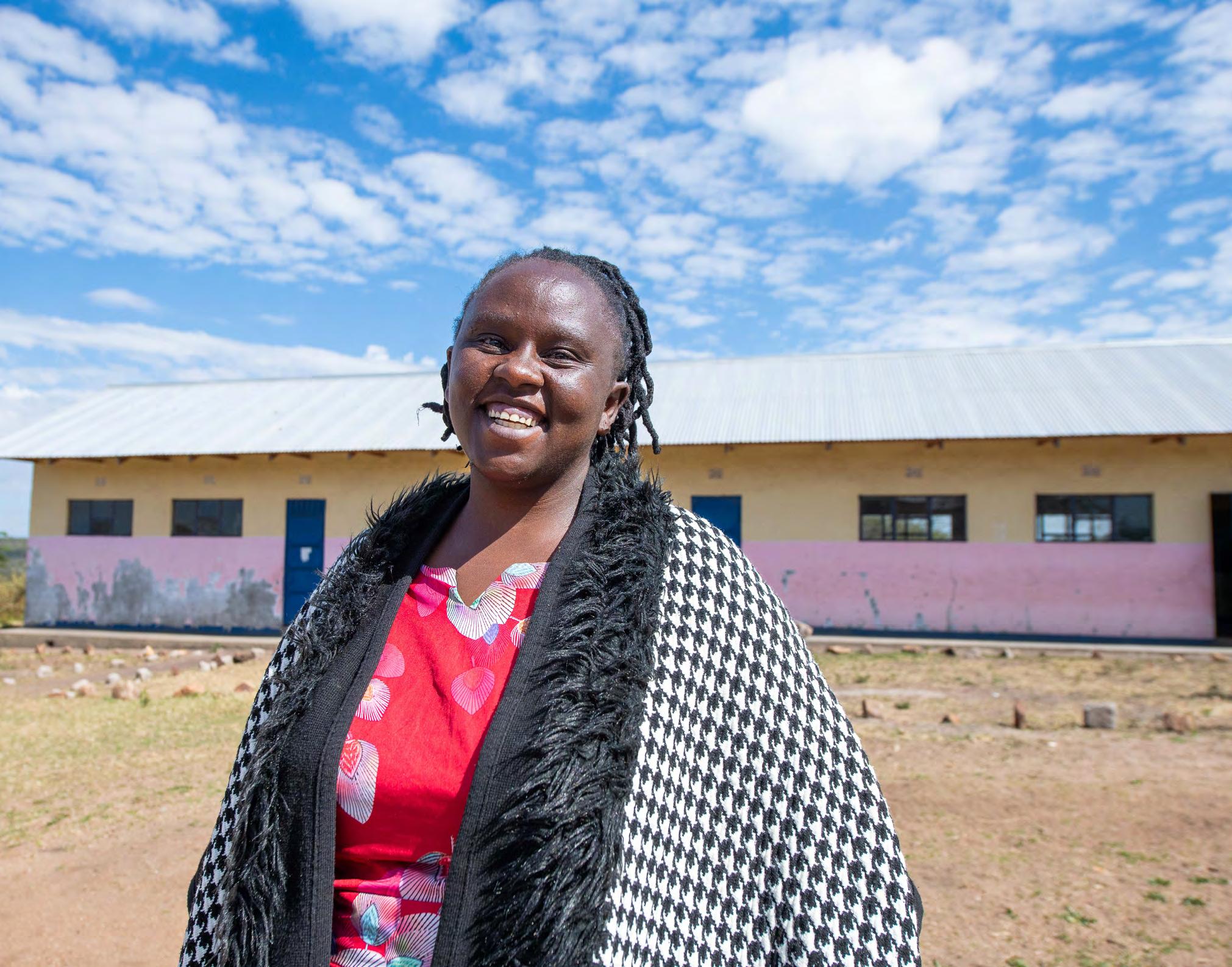
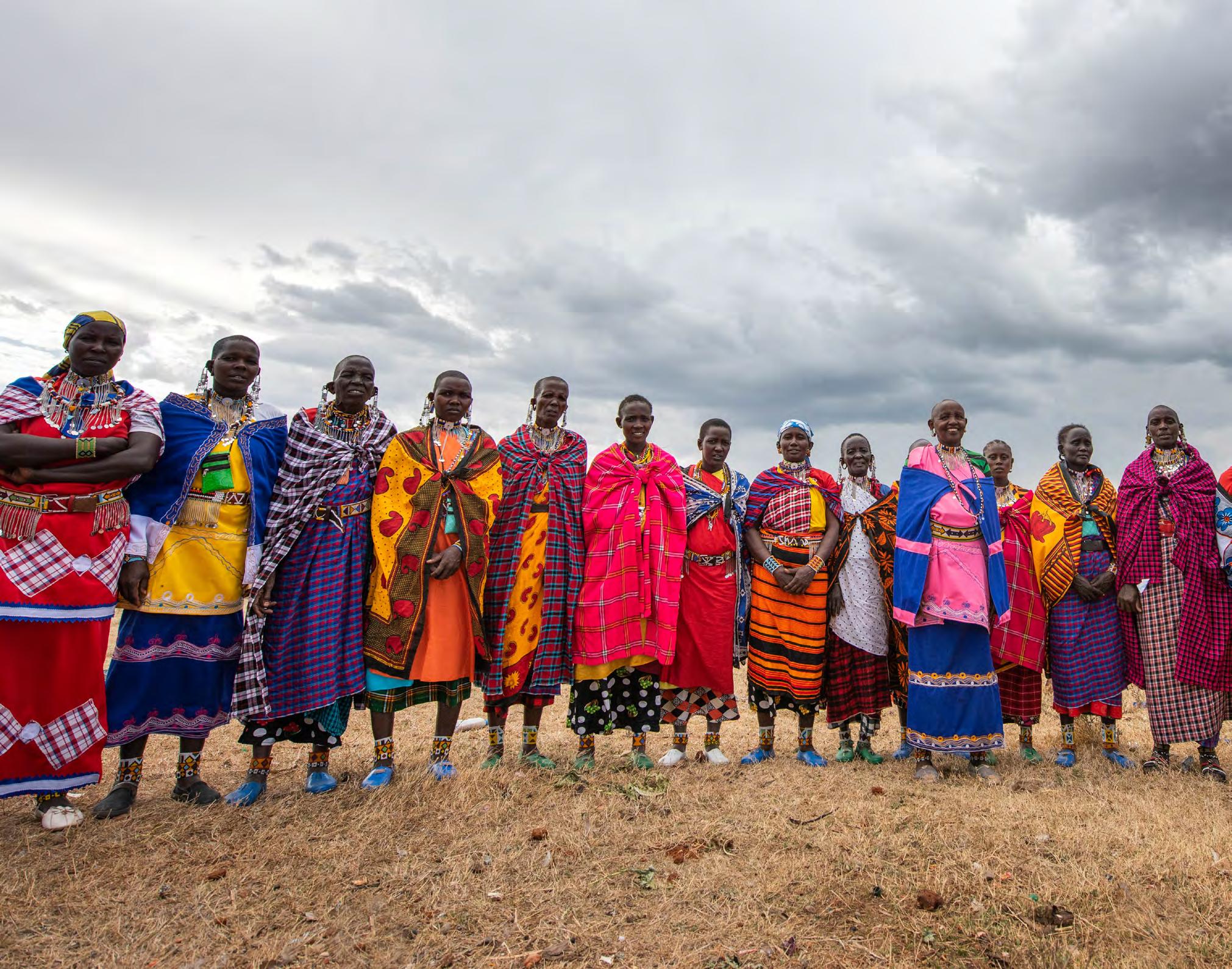
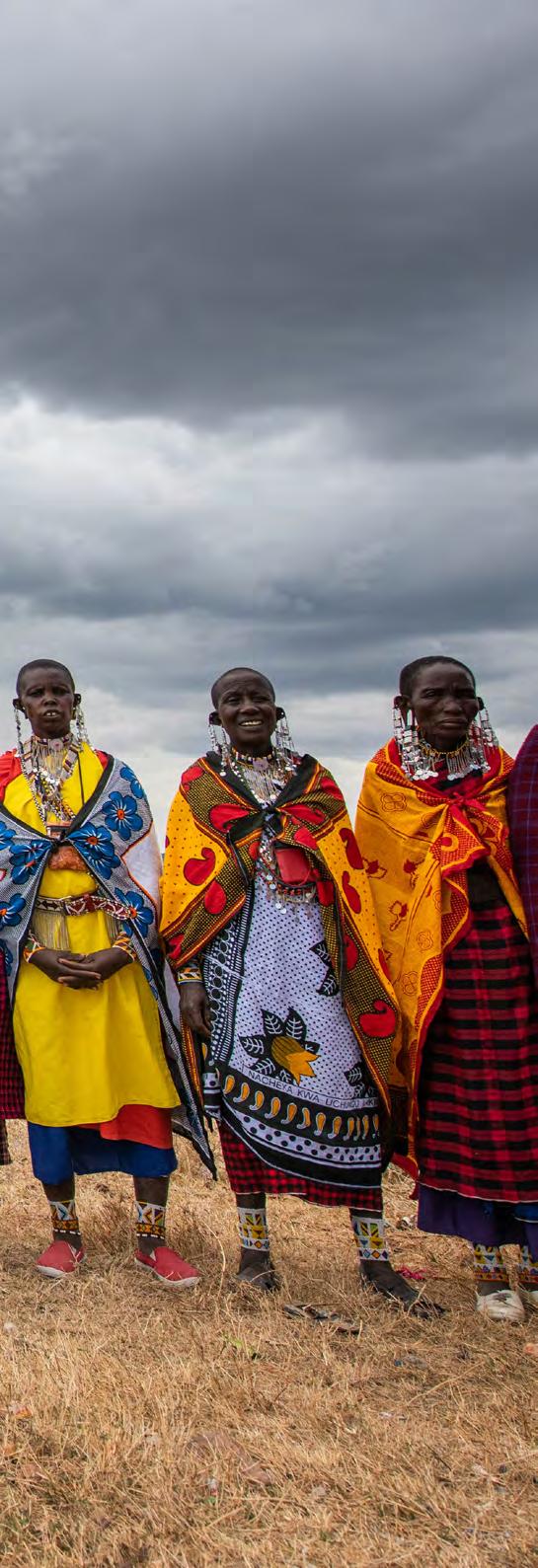
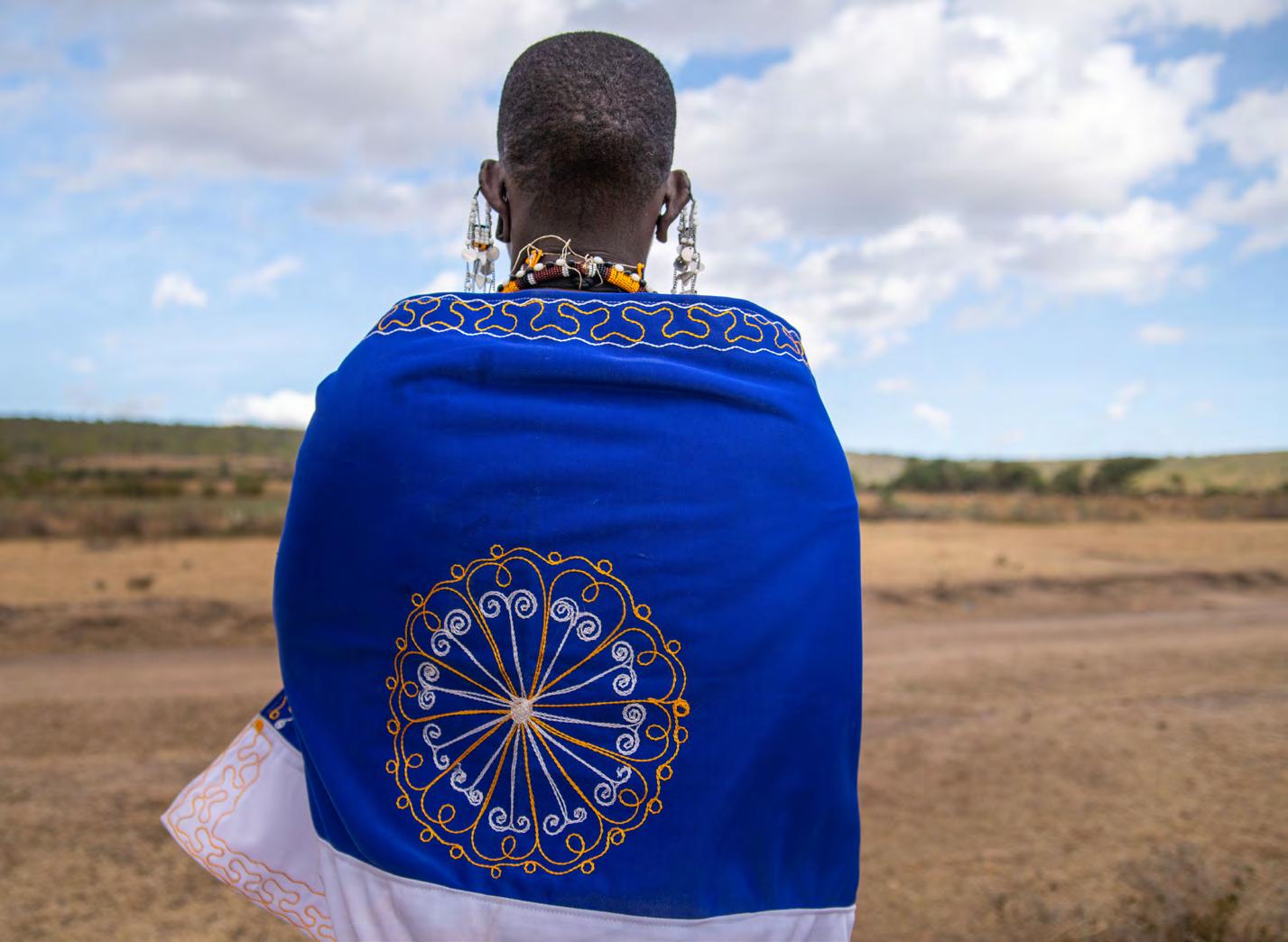



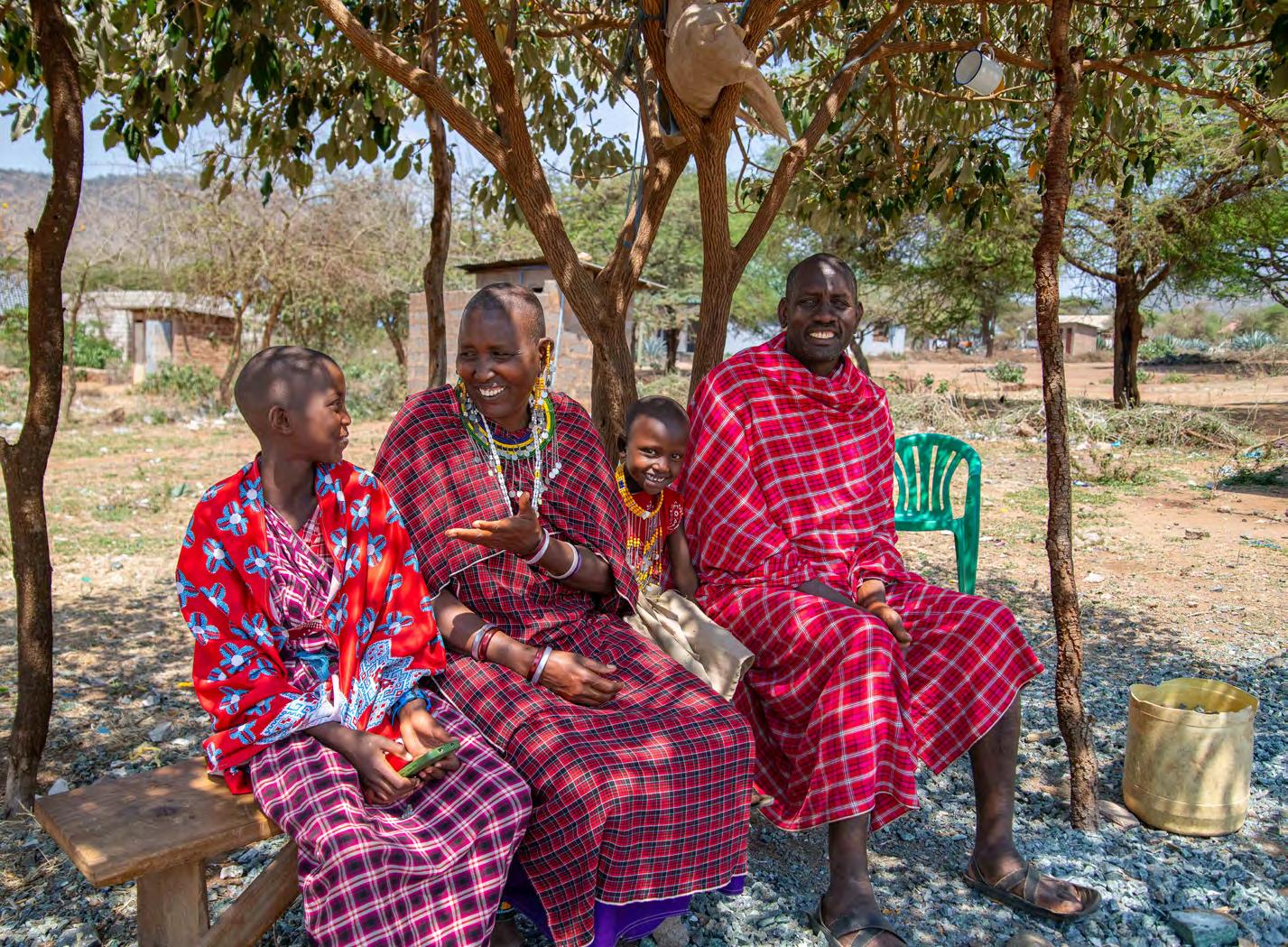
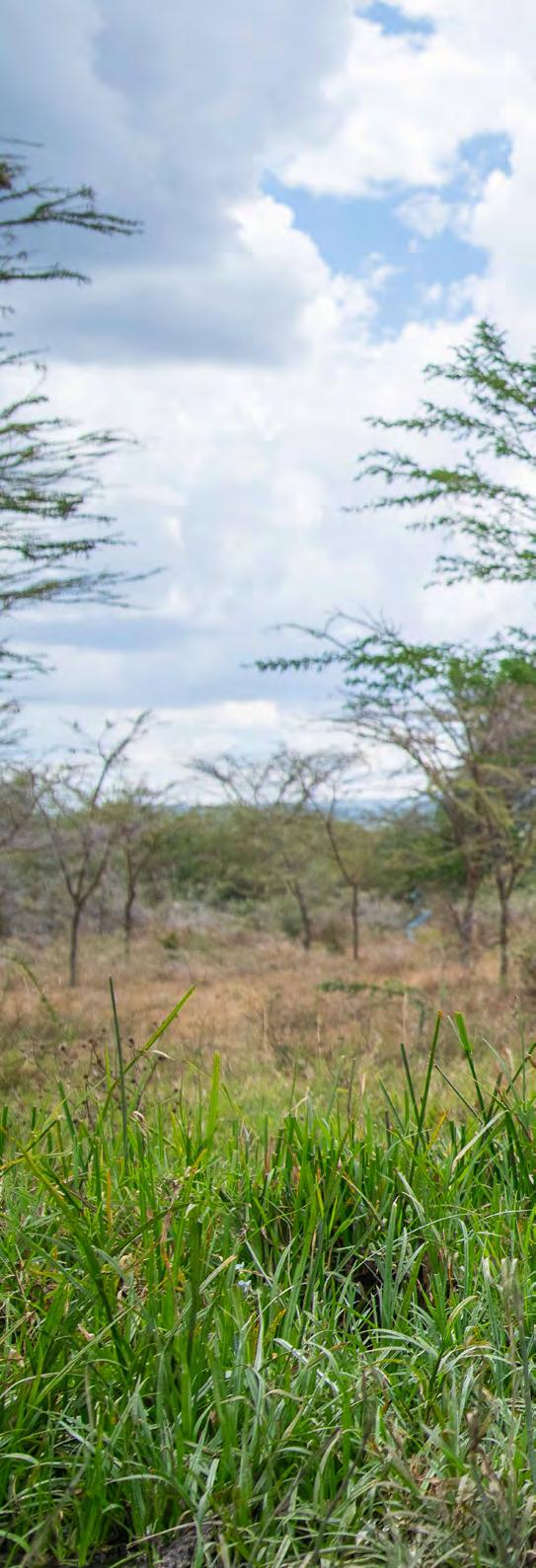
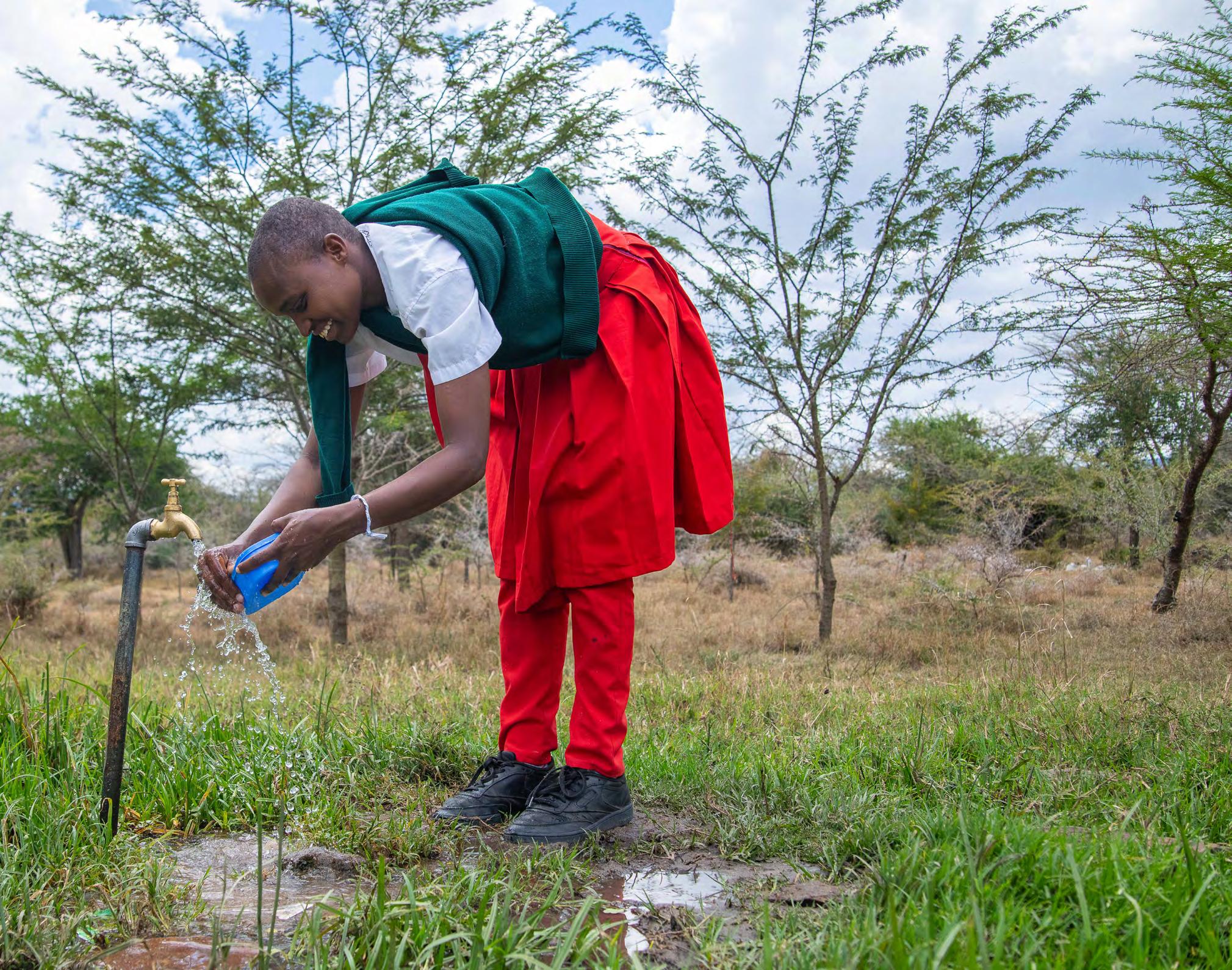
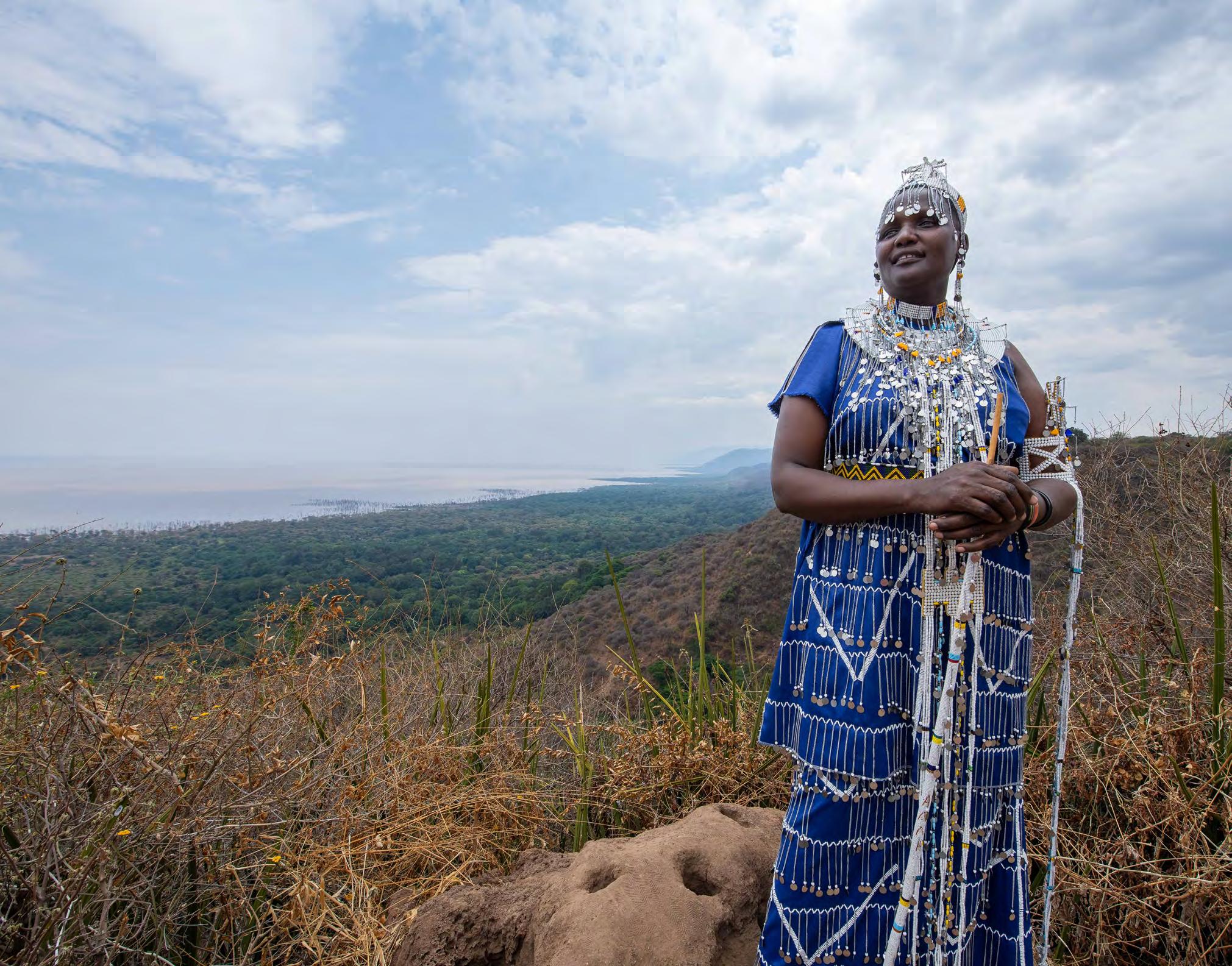

“Education is the key to success,” says Rehema Moisari Teme. As a mother of five and a primary school teacher, Rehema is breaking generational barriers—her own parents had opposed her education, believing it was unnecessary for girls. Now, she is helping women and girls in her community access education, secure employment, and gain confidence.
In 2005, Rehema began advocating for the rights of women and girls. “I started when I met a girl who excelled in her exams but was not allowed to attend secondary school. Instead, she was forced into marriage in another region. But I made sure she came back, completed her education, and pursued her dreams.”
Rehema went on to advocate for five more girls who successfully completed school and are now employed. Her efforts weren’t limited to youth, and in 2017, with support from PWC, she founded a school for elderly pastoral women, where she taught for three years. Her passion for education extended to her own learning, and in 2018, Rehema attended legal aid courses so she could advocate for women in her community who had experienced domestic violence. Today, she actively reports all domestic violence cases in her community.
Rehema’s resilience is fueled by her confidence. “I can stand up and speak out for my rights, which allows me to help other women in the community. I don’t like to see someone hurt or humiliated when she can’t stand or speak up for herself—so I will always stand with them.”
But for Rehema, the most rewarding aspect of her work is witnessing its ripple effect. “What I love most is seeing the girls I’ve helped succeed, then turn around to support other girls in the community. That is my greatest reward.”
What I love most is seeing the girls I’ve helped succeed, then turn around to support other girls in the community. That is my greatest reward. “
Straddling the border between Northern Tanzania and Southwestern Kenya lies the bustling town of Namanga. Here, travellers crossing between the two countries often find Maasai women selling intricately crafted beads and jewellery—hallmarks of their culture. There was a time when women were not allowed to work at the border and sell their beads. But thanks to women’s rights advocates like Sara Keiya, many now earn a living there.
In Maasai culture, arranged marriages are common, and Sara was unfortunate to be married to a man who struggled with alcohol and refused to work. After the birth of her child, she fainted from hunger—there was no food at home. Determined to provide for her family, she began doing laundry and washing dishes, often walking long distances from Namanga to Longido—a 25-kilometer journey—without even knowing if she would be paid.
In 1999, Sara’s life changed when she connected with PWC, which offered her leadership training. Encouraged and equipped with knowledge, she not only improved her circumstances but also became a guide for others.
Sara defines herself as a human rights activist. She frequently attends court hearings to challenge unjust rulings and advocates for victims of gender-based violence. Her efforts have brought justice and support to countless women, and her impact extends to broader community issues.
Recognizing the lack of sanitary pads for girls in her village, she organized efforts to provide them. She also counselled HIV/AIDS patients, dispelling harmful myths and ensuring they accessed life-saving medication.
In addition to her advocacy work, Sara serves as the chairperson of the Village Community Bank in Namanga. A Village Community Bank (VICOBA) is a group-based microfinance model designed to support income-generating activities and provide access to loans. Under her leadership, women have gained financial independence, securing substantial loans at low interest rates to support their families and businesses. Her work has even gained government recognition, leading to the construction of a community house for their activities.
Sara’s advocacy has taken her as far as South Africa, where she spoke about the rights of pastoral women. Looking ahead, she dreams of Maasai girls accessing quality education, choosing their own paths, and living in a society that respects women’s decisions. Her advice to other women:

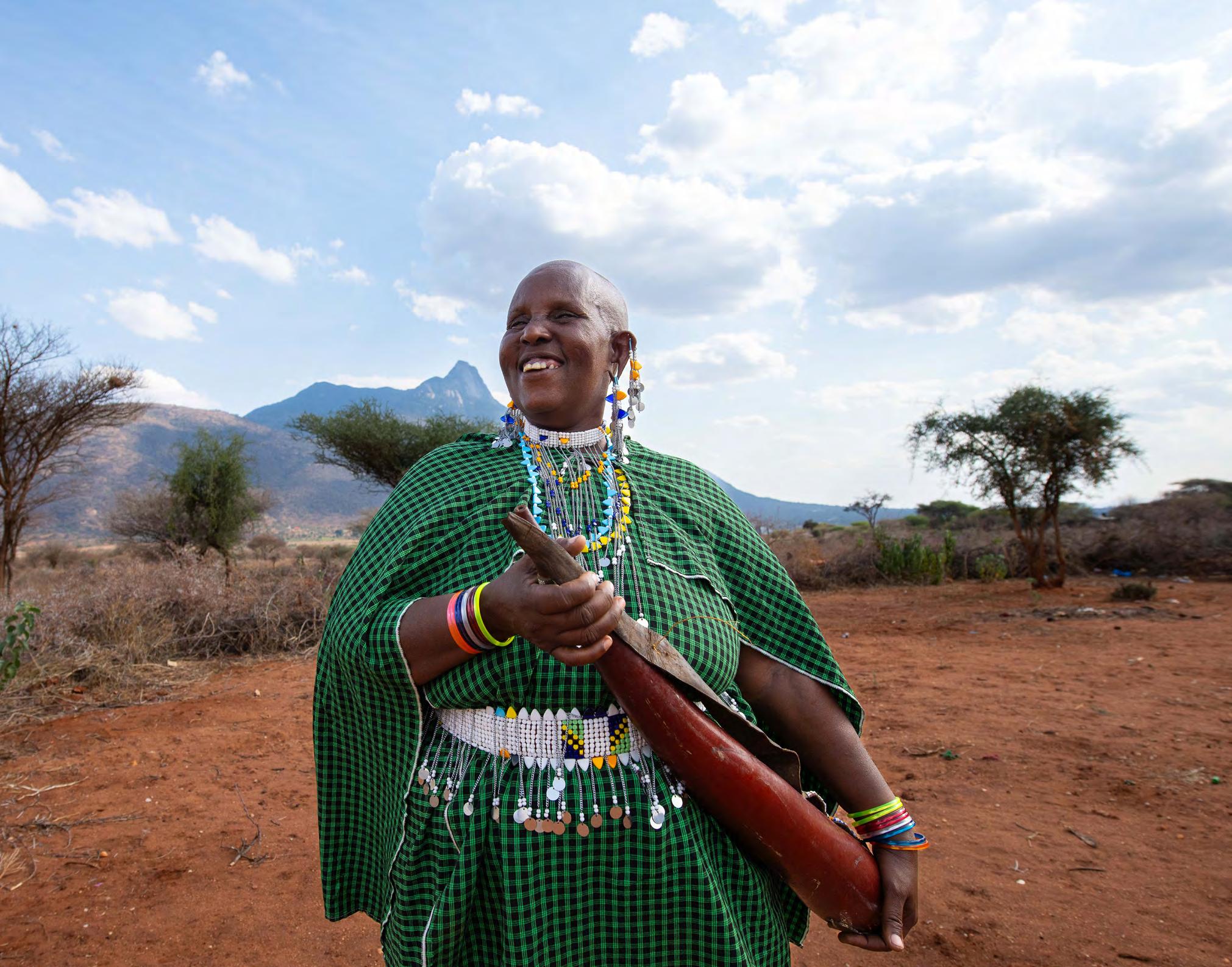
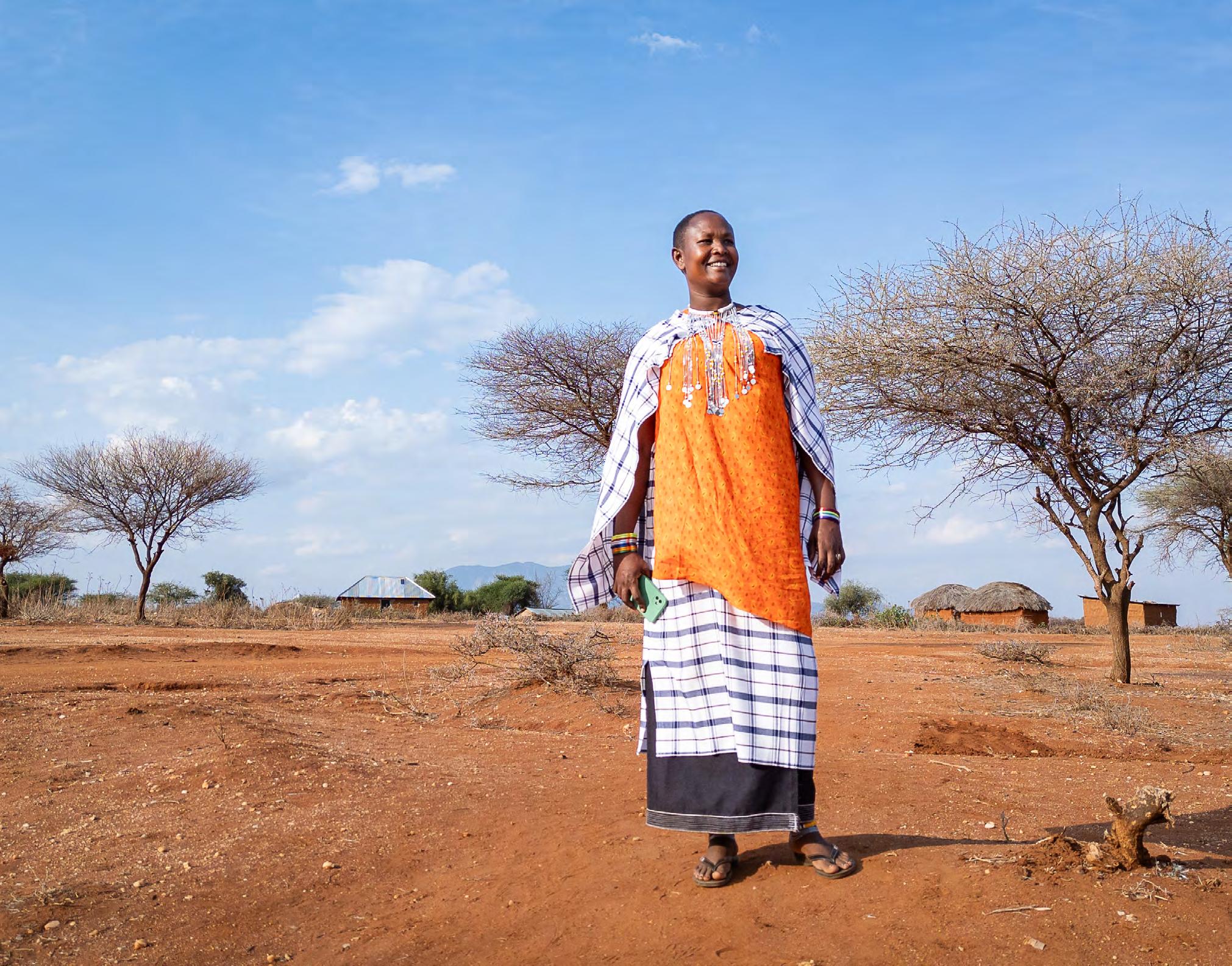

Sara Lazaro, a mother of four, starts her day with morning prayers as a family before attending to household chores. When she is not helping her children with their studies, she serves as the Chairperson of the Kimokowa Women’s Rights and Leadership Forum (WRLF) in Longido. Since assuming the role in 2023, Sara has championed women’s savings groups, advocated for girls’ education, worked to secure land rights and advance economic empowerment for Maasai women.
Through a partnership with PWC, the WRLF was established in her village, providing women with a space to unite, learn, and advocate together. Reflecting on its impact, she says, “The WRLF and the training we’ve received allow us to advocate for issues that benefit not just women but our entire families.”
In Tanzania, when a woman’s husband passes away, it is common for her land to be confiscated due to a mix of customary laws, patriarchal inheritance practices, and systemic gender inequalities. Many women are unaware that they have a legal right to their land, leaving them vulnerable and displaced during moments of loss.
Sara recalls a recent success that reaffirms the power of collective action. When a widow in her community had her land taken from her after her husband’s passing, the WRLF stood together to fight for her right to reclaim it.
“We stood as one, and we fought for her,” Sara says. “Seeing justice served wasn’t just about one woman—it was about showing our entire community what is possible when women stand together.”
Such victories inspire Sara’s vision for the future of Maasai communities. She aims to continue leading women’s rights efforts while ensuring children in her community have access to quality education and opportunities.
“
In the coming years, I hope to see Maasai communities where women and girls know their rights, thriving womenled businesses, and families that support their daughters. My dream is for every woman to feel empowered to raise her voice.
Beginning in 2015, Sara served as a councillor, addressing critical challenges faced by Maasai women, including barriers to education, financial independence, and healthcare. As a councillor, Sara represented her local district as a spokesperson on the district council. She believes that progress in these key areas has the power to uplift women and strengthen the entire community.
With support from PWC, Sara championed girls’ education, participated in financial literacy training, and advocated for mobile health services to reach under-served areas.
Reflecting on her journey, Sara shares, “When my family faced hard times, I had to leave school. But my mother reminded me that it wasn’t the end. I found the courage to speak up for my dreams, and that struggle became my purpose—to help other women and girls.”
Though retired from her official role, Sara’s work hasn’t stopped. She continues to guide women and youth, support community initiatives, and protect Maasai cultural traditions. For Sara, true progress means seeing women and children thrive, knowing that the opportunities available today far exceed those of the past.
“Resilience comes from community support, faith, and the belief that our cultural strength will lead to lasting change,” she says.
Sara is determined to ensure that women and girls in her community always have access to education and healthcare. “My dream is to strengthen our community, making it resilient and united, so my family and others can have better lives. I want to pass on the wisdom of our culture and teach future generations how to stand tall and take pride in it.”
To the younger generation of Maasai girls, Sara’s message is clear: “Believe in yourselves and never be afraid to chase your dreams. Education is your greatest tool—use it to empower yourselves and your community. Always remember our culture and values, but don’t hesitate to reach for opportunities beyond what we know. Together, we can create a future where you lead with strength and wisdom. Be proud of who you are, support one another, and know that you can make a difference. Your voice matters, and with determination, you can change the world around you.”
I found the courage to speak up for my dreams, and that struggle became my purpose—to help other women and girls. “

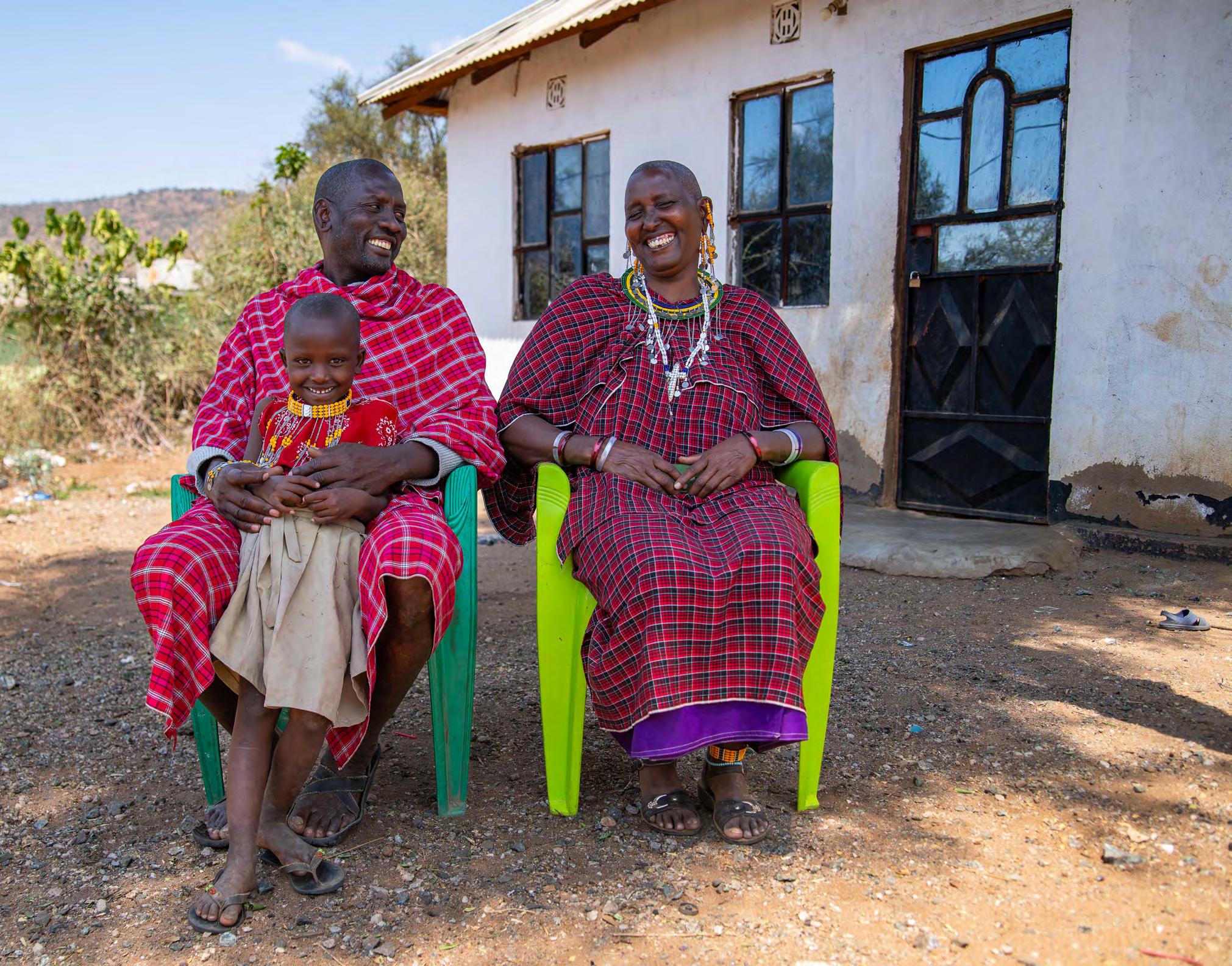


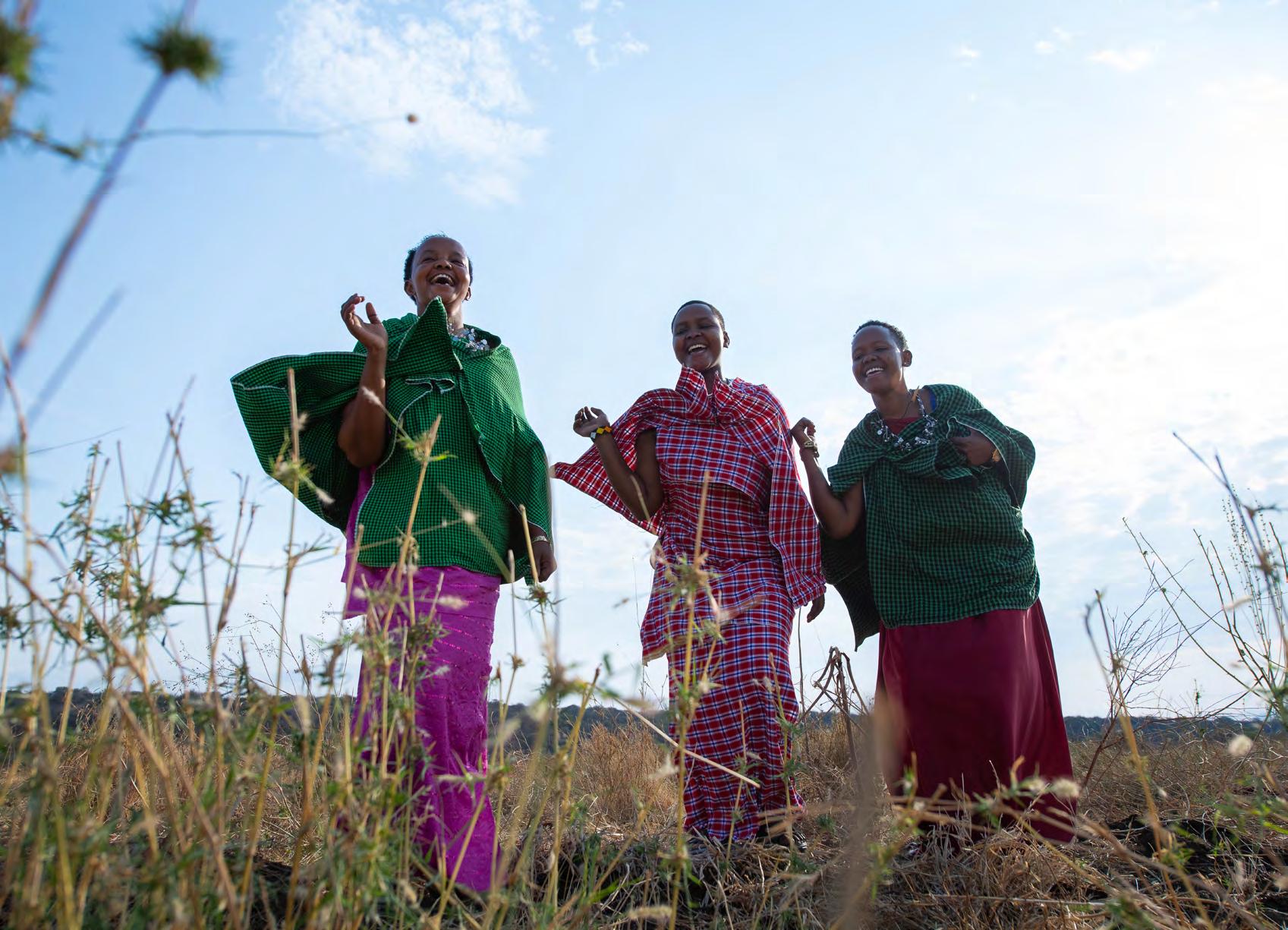




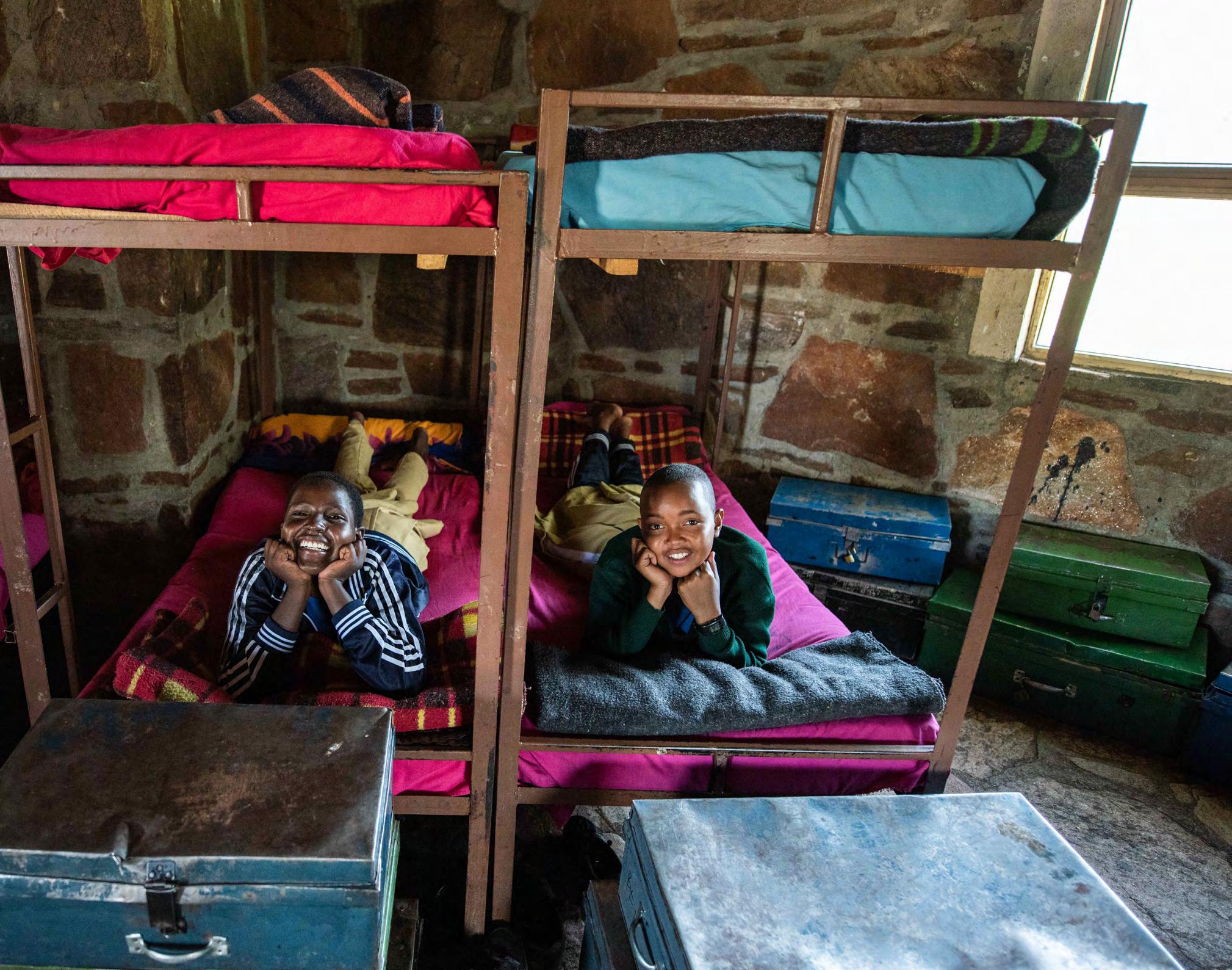
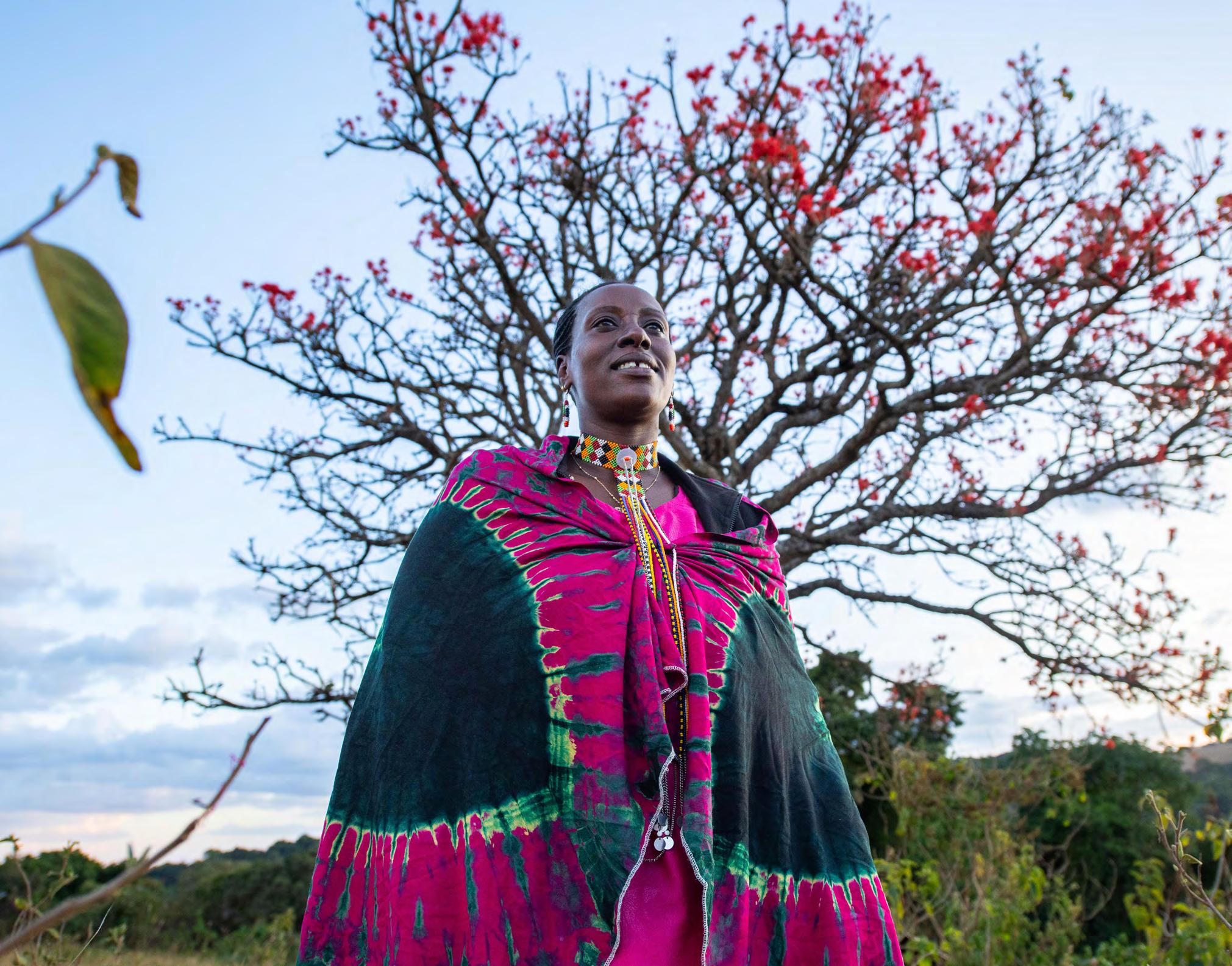

After losing three close friends during childbirth—deaths that could have been prevented—Sarah Toroge Ngai turned a deeply personal loss into a commitment to improving women’s health in her community. These women had given birth at home without proper medical care and had not received the attention they needed. In the past, women in labor needed their husband’s permission to go to the hospital, and if he wasn’t present, they could not seek help. Determined to change this, Sarah has spent the past 17 years working as a community health volunteer, ensuring that no woman in her community needlessly risks her life during childbirth.
A significant part of Sarah’s work is mobilization—educating and encouraging women to attend clinics, use family planning methods, and get vaccinations. Her role requires building trust within a community that has historically been skeptical of medical interventions.
“Our community is so far from health facilities,” Sarah explains. “It’s my responsibility to convince my people to go to the hospital and get the care they need. I have received extensive health training from PWC and District Health Officials, and I use that knowledge to educate women—whether it’s about attending regular check-ups during pregnancy, ensuring good nutrition, or taking children to clinics for vaccinations. It’s my duty to make sure my community is healthy.”
Today, more women in Sarah’s community attend clinics and give birth in hospitals, men accompany their wives to medical appointments, and both men and women use family planning methods. These shifts reflect her tireless efforts and the growing understanding of the importance of health care.
To young girls, Sarah offers a powerful message: “You may find that some in your community don’t see value in women. They believe a girl’s role is only to marry after school, as dictated by tradition. But I tell girls to challenge this belief and recognize their potential. You can achieve great things when you study and pursue your talents—just look at the President of Tanzania. There is so much more beyond marriage.”
Reflecting on her own journey, Sarah notes, “My life today as a pastoralist woman is very different from what it was. I once lived in darkness, confined by traditional practices. But through education and training from PWC, I realized I have a voice, and I can use it to bring change. Today, my position and life are entirely transformed.”
It’s my duty to make sure my community is healthy. “
“I never want to see another woman humiliated because she can’t earn money,” says Sijakida Nanida. “It’s my mission to provide them with the financial education they need to start businesses and take the lead.”
Sijakida has always stood firm in the face of adversity. After completing primary school, she dreamed of continuing to secondary school, but her parents refused to support her. In her village, it was expected for girls to get married as soon as they hit puberty.
Fortunately, a local community forum sponsored five students from her area, and Sijakida was among the few selected. However, the financial aid fell short of covering all of her school expenses. At just 13 years old, with courage beyond her years, she took it upon herself to work as a housegirl during school breaks and holidays, determined to earn enough money to stay in school.
When she finished Form 4, the challenges intensified. Following traditional expectations, her parents tried to marry her off. But Siijakida refused and with unwavering defiance, rejected their repeated attempts and even threatened to involve the police if they continued. Her resolve forced her parents to back down, sparing her and her siblings from early marriage.
“I chose education over marriage, and everyone in my community hated me for it. I was seen as a bad influence, and other children weren’t allowed to be around me,”
Sijakida recalls. Now 33 years old, a mother of three, and married to the partner of her choice, Sijakida works as an entrepreneur, empowering women in her community to achieve financial independence and leadership through the Village Community Bank (VICOBA). She teaches women practical ways to save money and start businesses, encouraging them to break free from dependency and actively contribute to their families and communities. Sijakida motivates women to move beyond traditional roles, pursue professional opportunities, and take on leadership positions. Her efforts are transforming her community; fostering a culture of empowerment and progress.
It’s my mission to provide them with the financial education they need to start businesses and take the lead. “

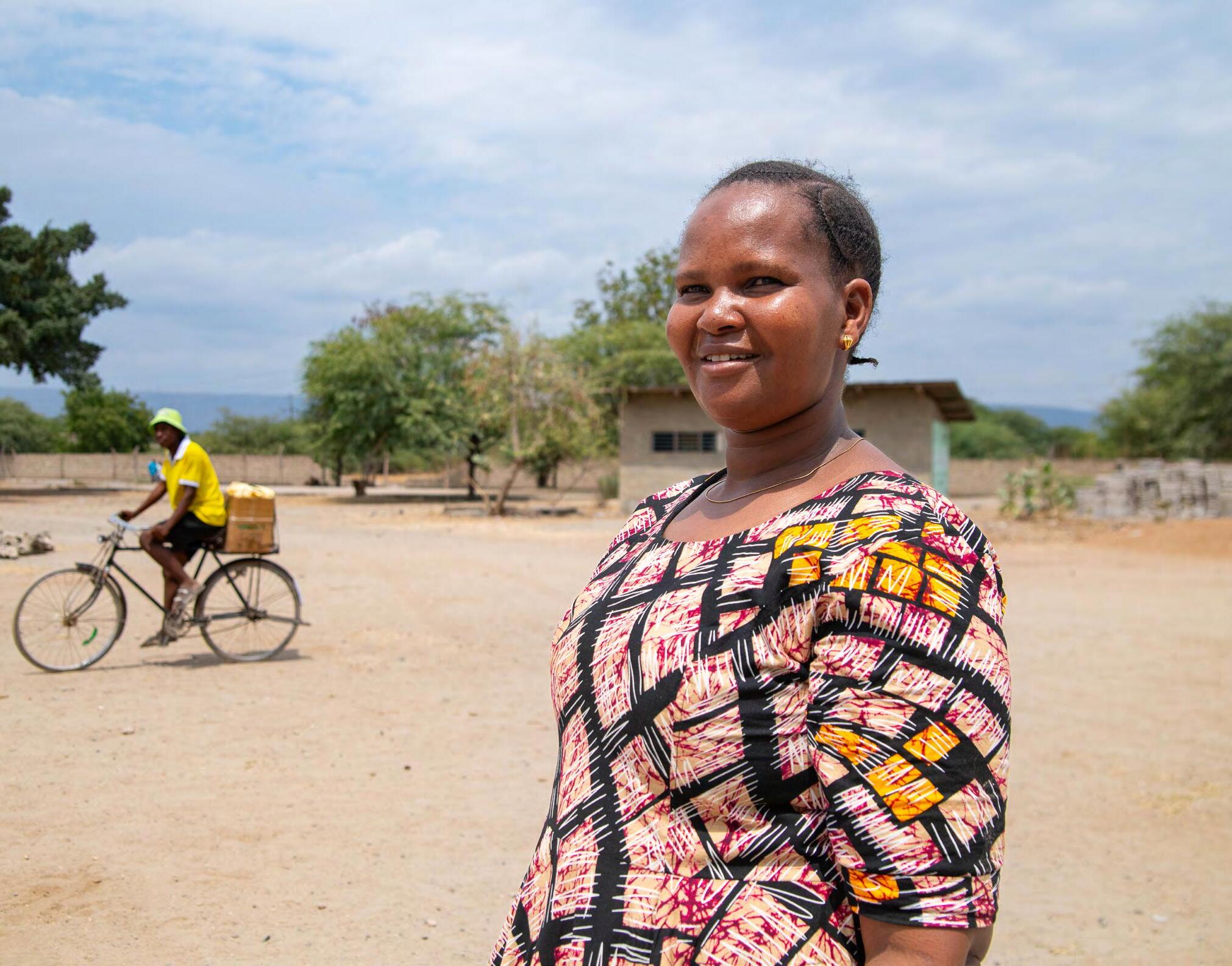
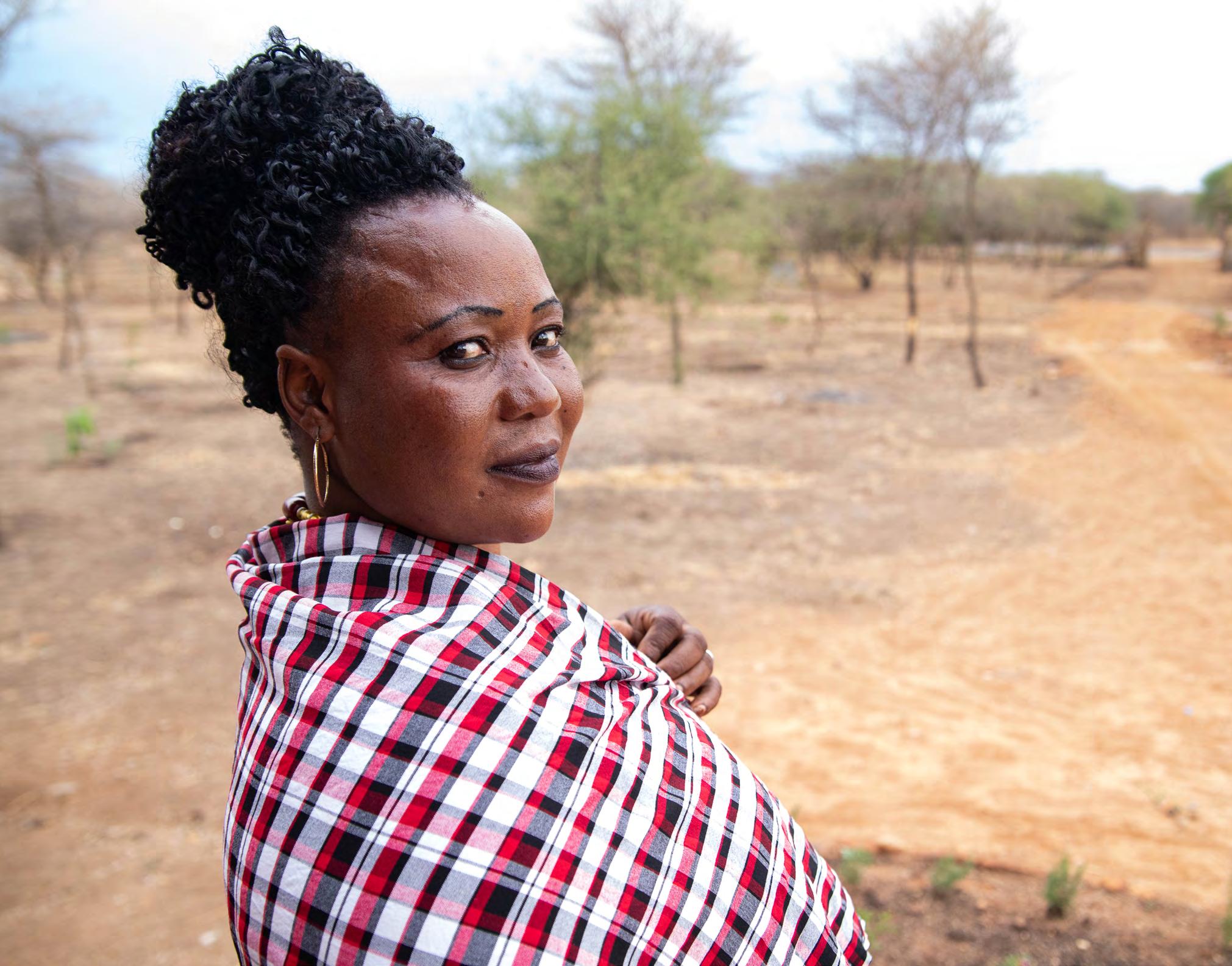

Vaileth Elias proudly stands as the first female chairperson of Mswakini Village, a role she took on in 2020 despite significant opposition from men in her community who resisted the idea of a woman in leadership. Unfazed, Vaileth has proven herself as a capable and decisive leader. “I ensure that council laws are upheld and that every villager receives their rights, regardless of gender,” she explains. Her leadership has already brought tangible progress to Mswakini, a village surrounded by open savannahs and acacia woodlands.
One defining moment for Vaileth was when she intervened to prevent a young girl from being forced into marriage, ensuring she could continue her education. “It was then that I realized how a single action can change the course of a young woman’s life,” Vaileth recalls. “I saw the impact I could have by inspiring change and hope—it became clear to me.”
Vaileth partnered with PWC to support Maasai women through health education and improve girls’ access to schooling. “I find strength and resilience in the support of our village elders and the unity among the women here,” she says, crediting her community as a driving force behind her efforts.
At 40 years old and a mother of five, Vaileth has no plans to slow down. “Looking ahead, I see myself becoming a councillor and leading more initiatives to create opportunities for women and youth in Mswakini,” she shares. Vaileth envisions a future where Maasai women and girls in Mswakini—and across Tanzania—have equal opportunities, leadership roles, improved healthcare, and economic independence. Through her work, Vaileth continues to inspire hope and empower others to dream of a better future.
I ensure that council laws are upheld and that every villager receives their rights, regardless of gender. “
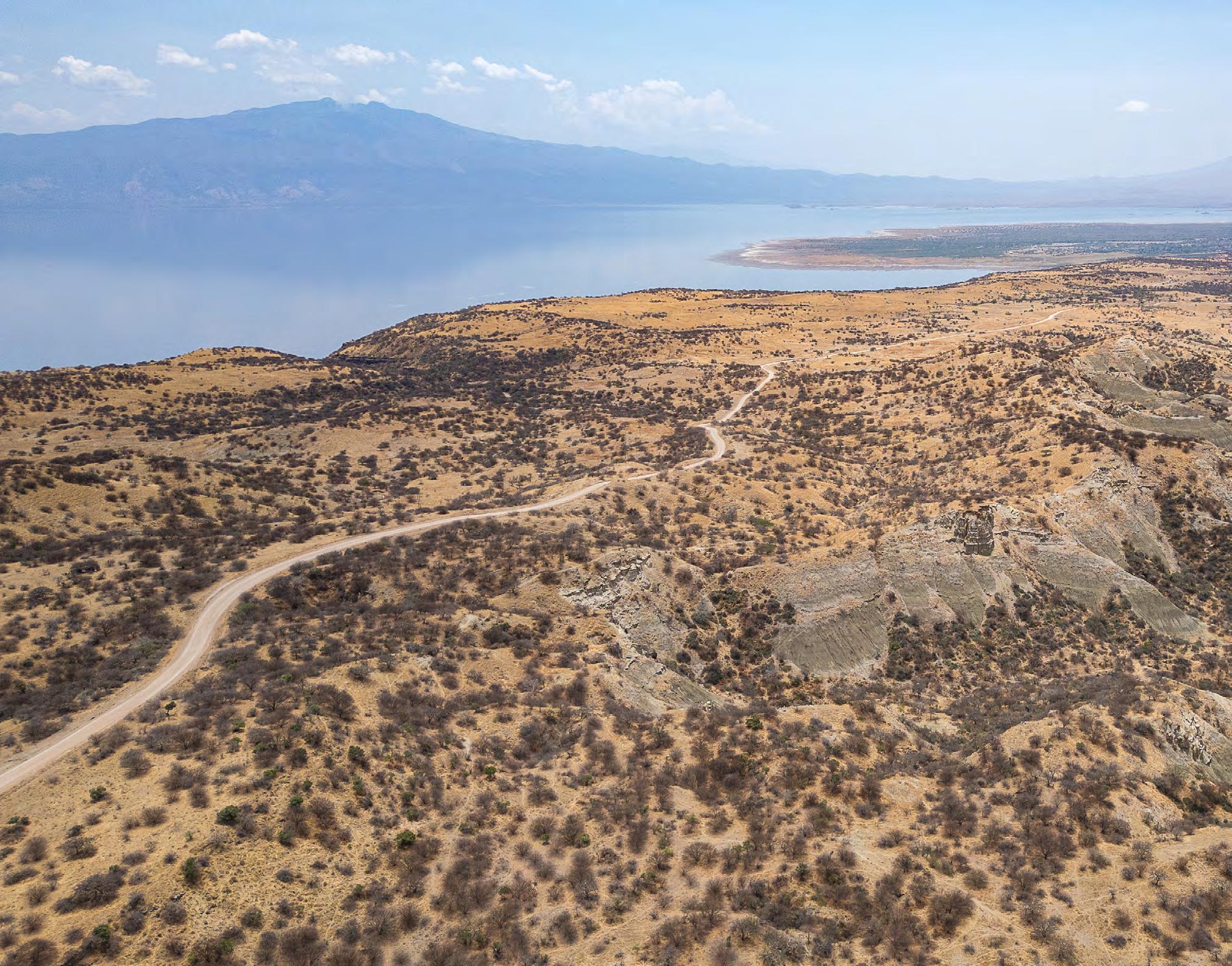

Thank you to the women who shared their stories—your voices and experiences are the heart of this work and the reason we do what we do.
A special thank you to the Wellspring Philanthropic Fund for providing the funding that made this project possible. We are also grateful to all our donors, friends, and supporters whose belief in our mission fuels our work every day.
We extend our gratitude to the creative team who brought this book to life - Roshni Lodhia (Photographer), Emma Barber (Editor), and Nikita L. Pakhare (Designer).
Finally, we acknowledge the unwavering commitment of PWC’s members, staff, and board, whose efforts continue to create opportunities and drive lasting change for women and girls in our communities.

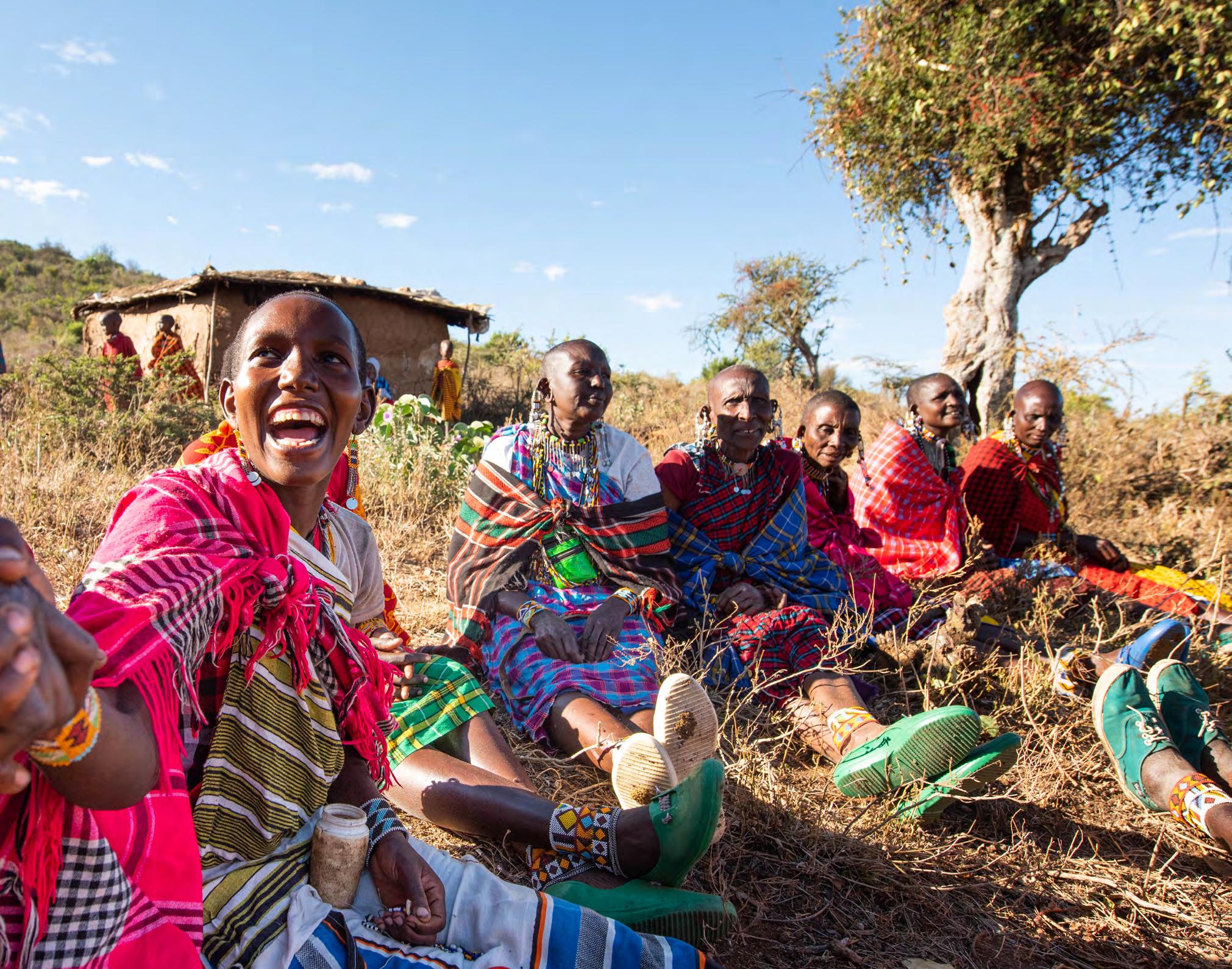
pastoralwomenscouncil
p.w.c_tanzania
@pastoralwomenscounciltanzania
pastoralwomenscouncil.org